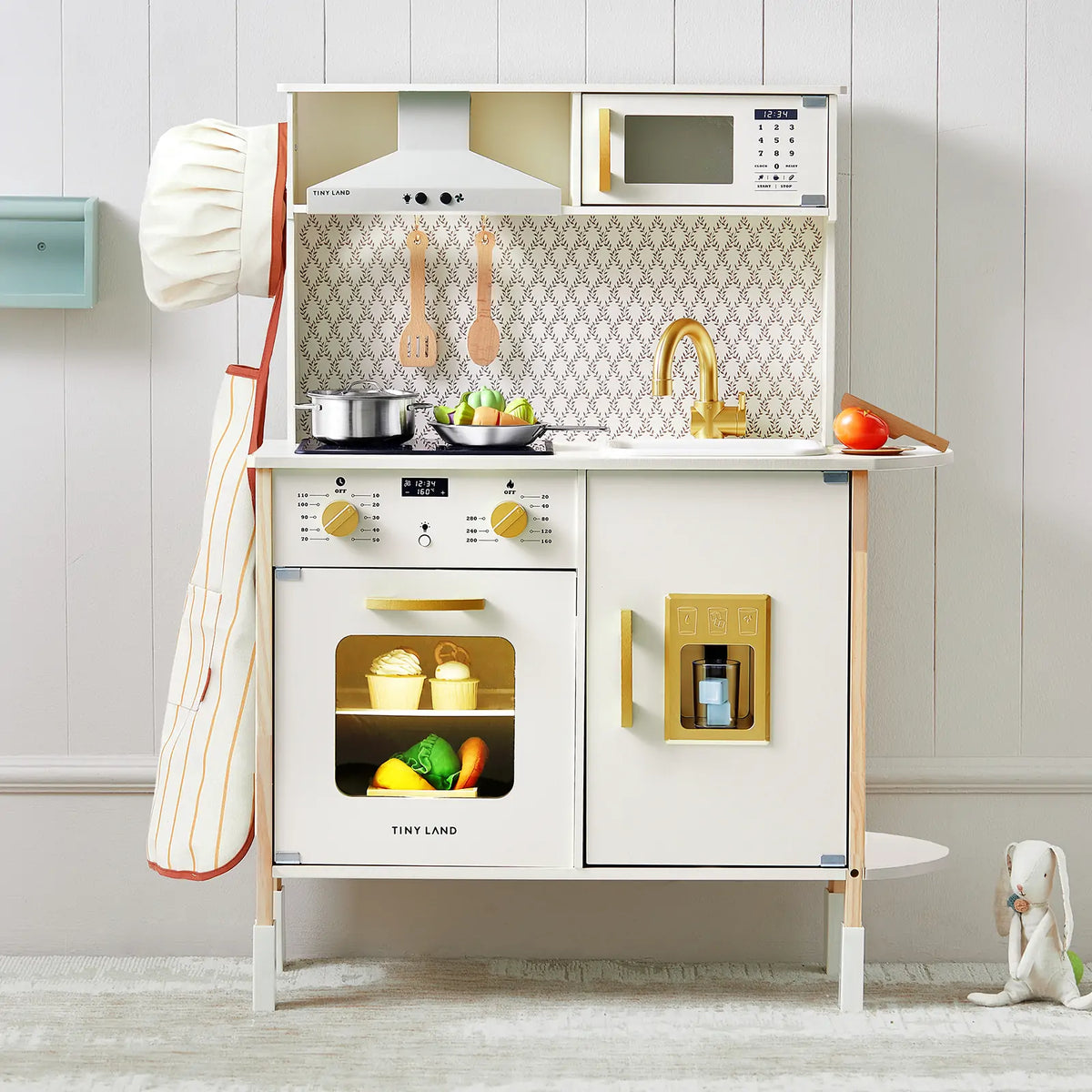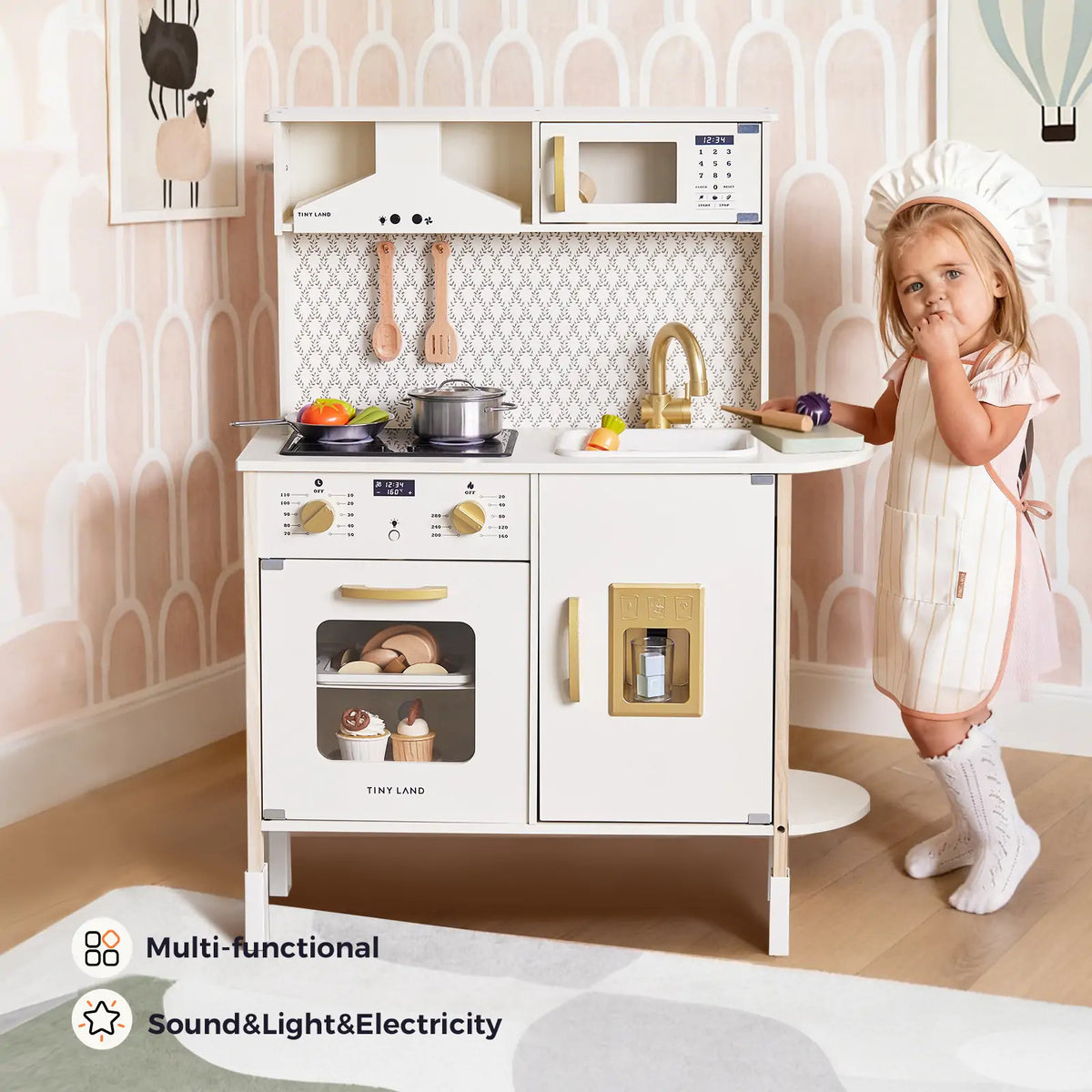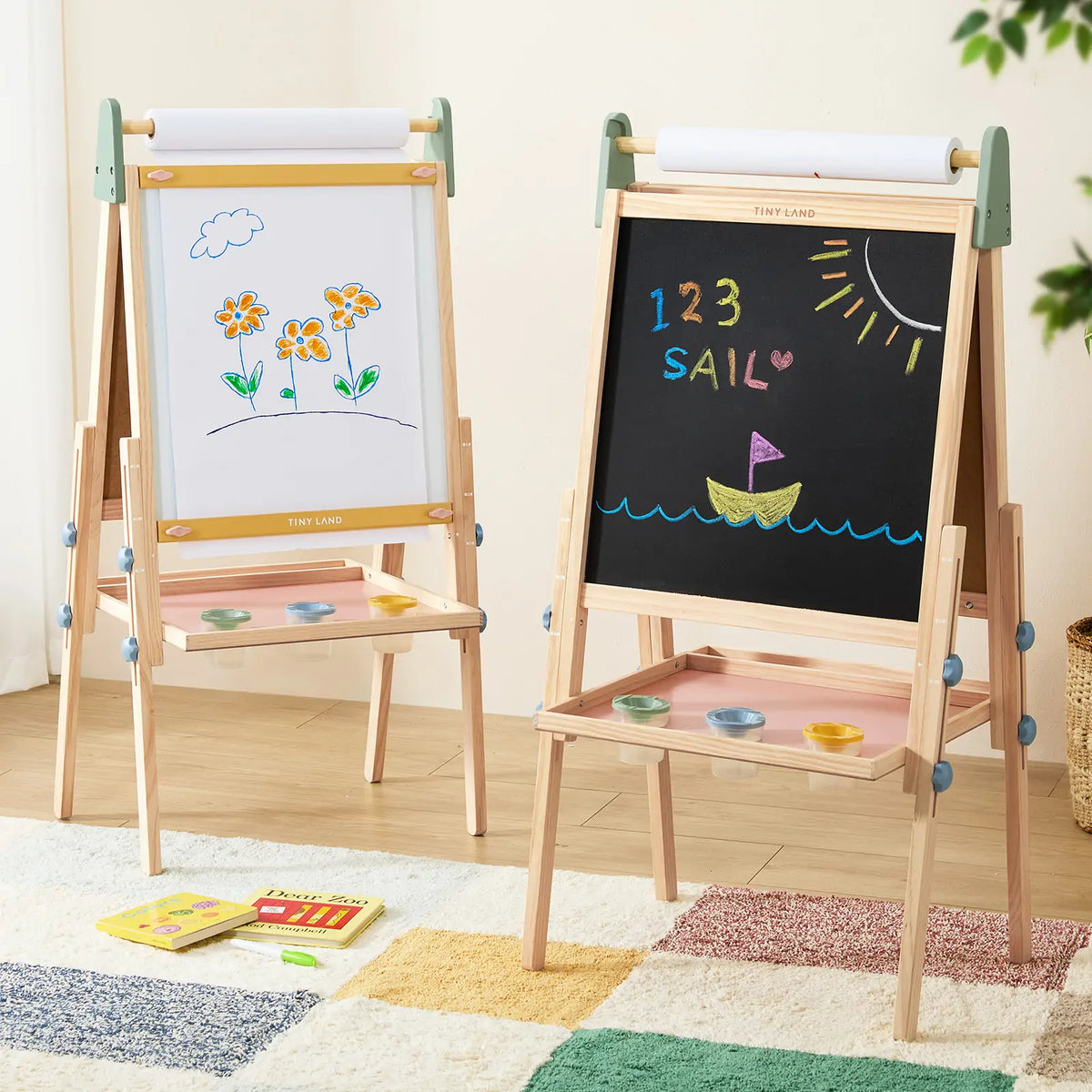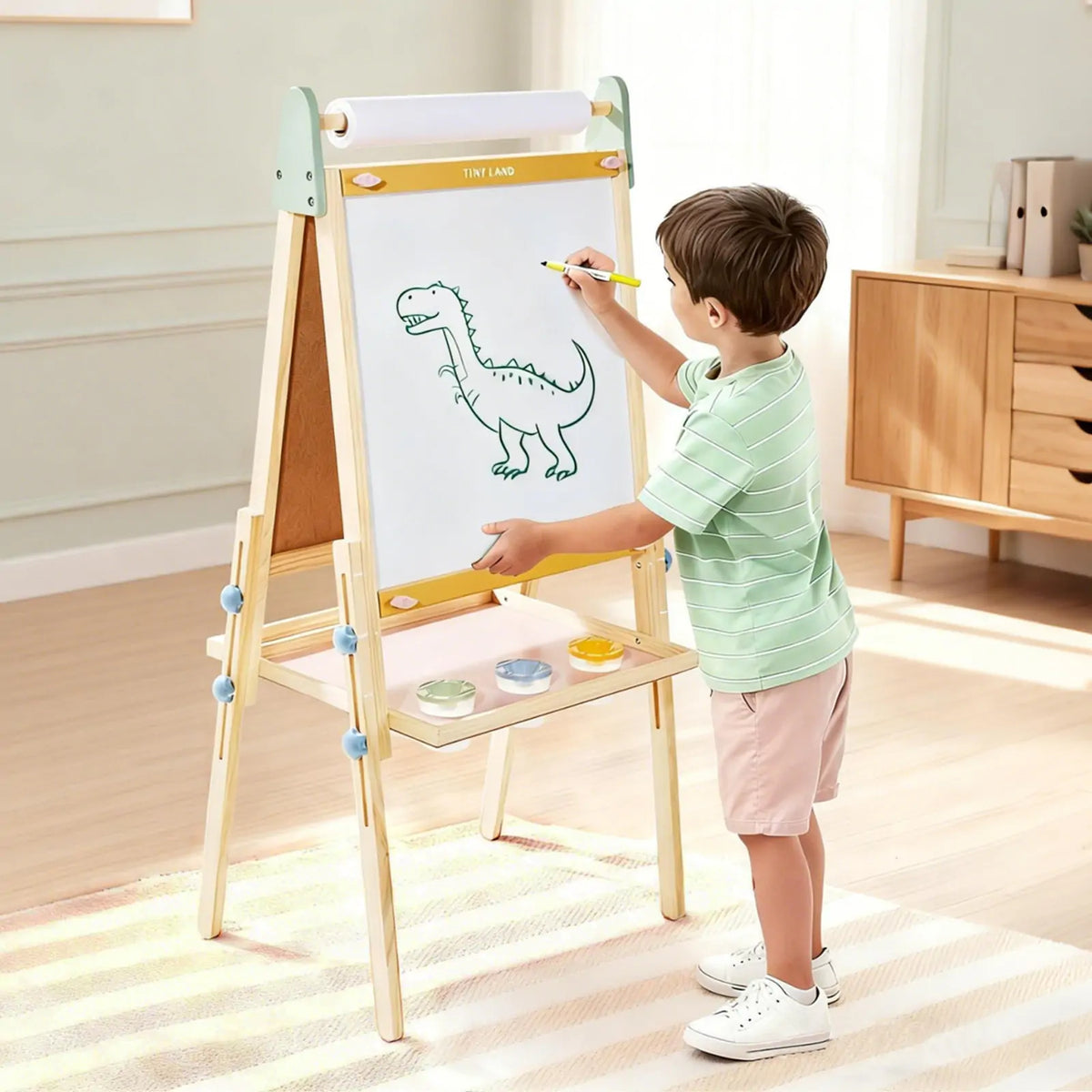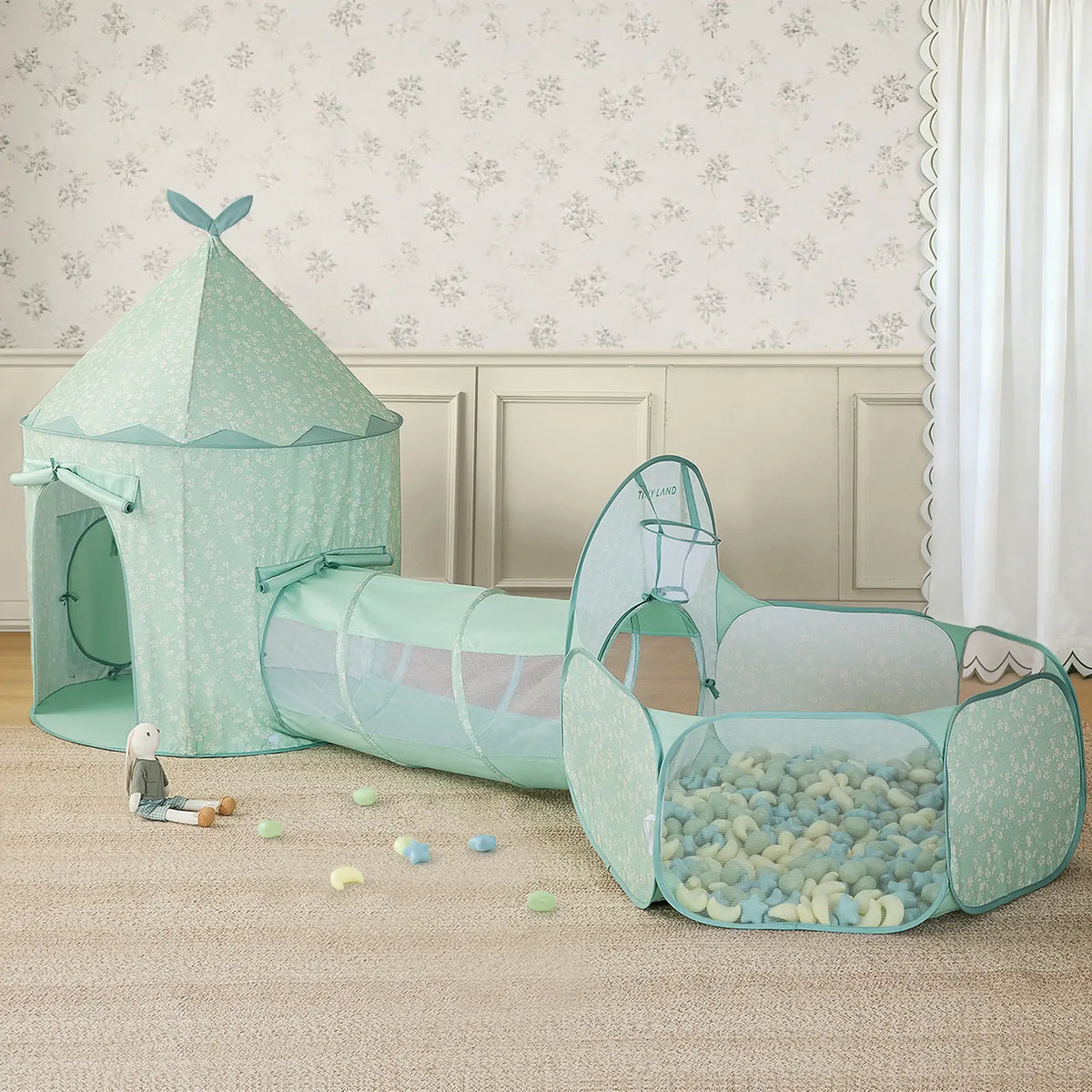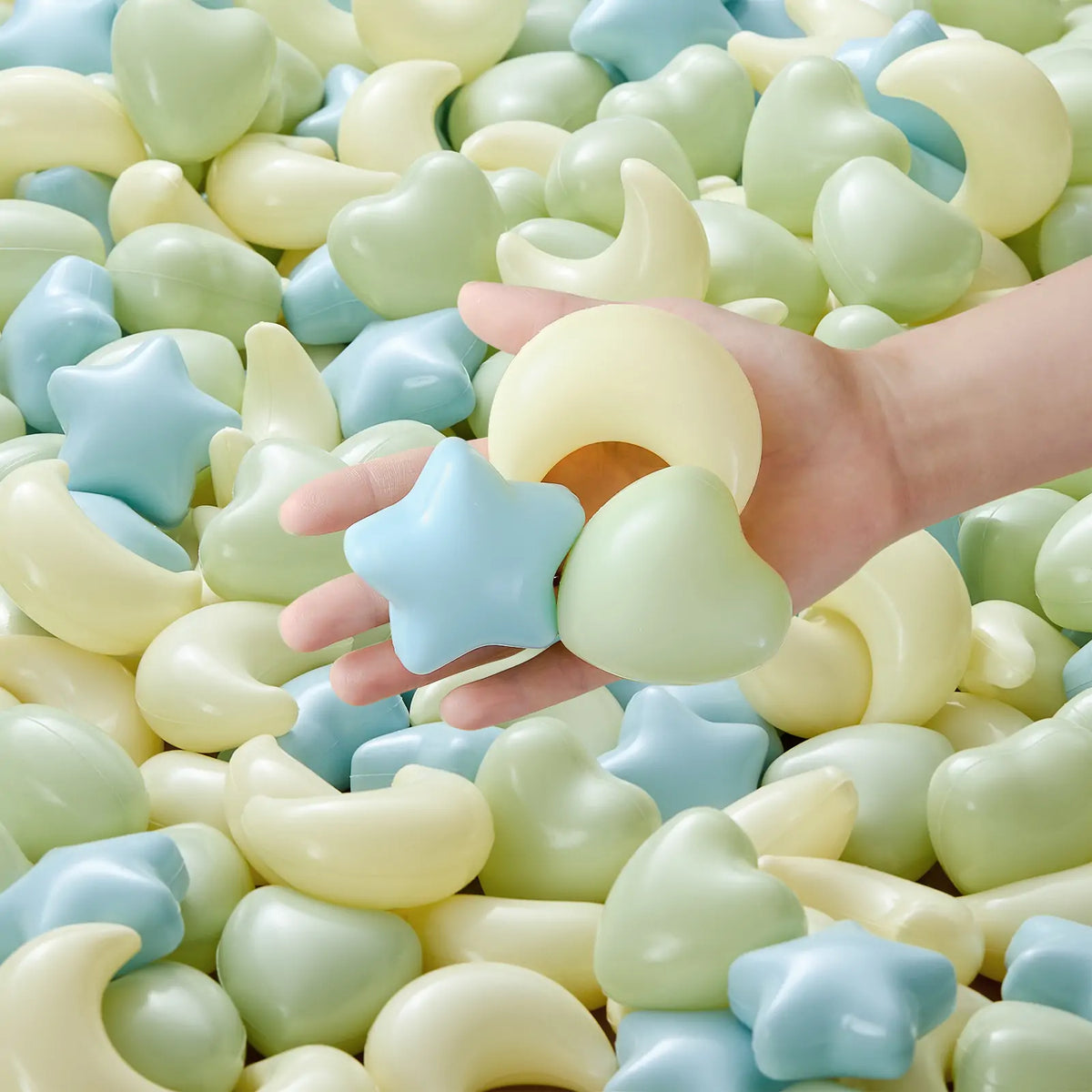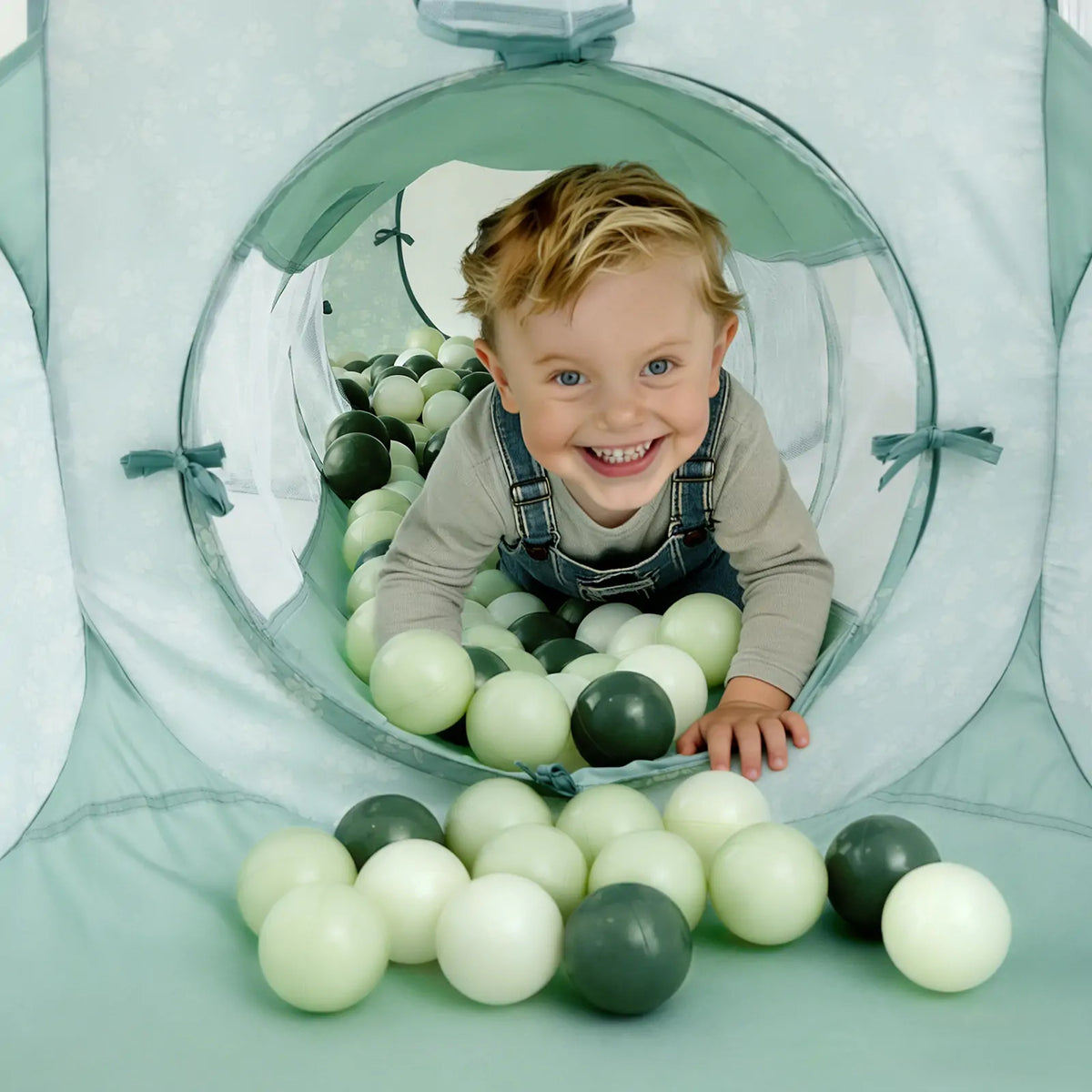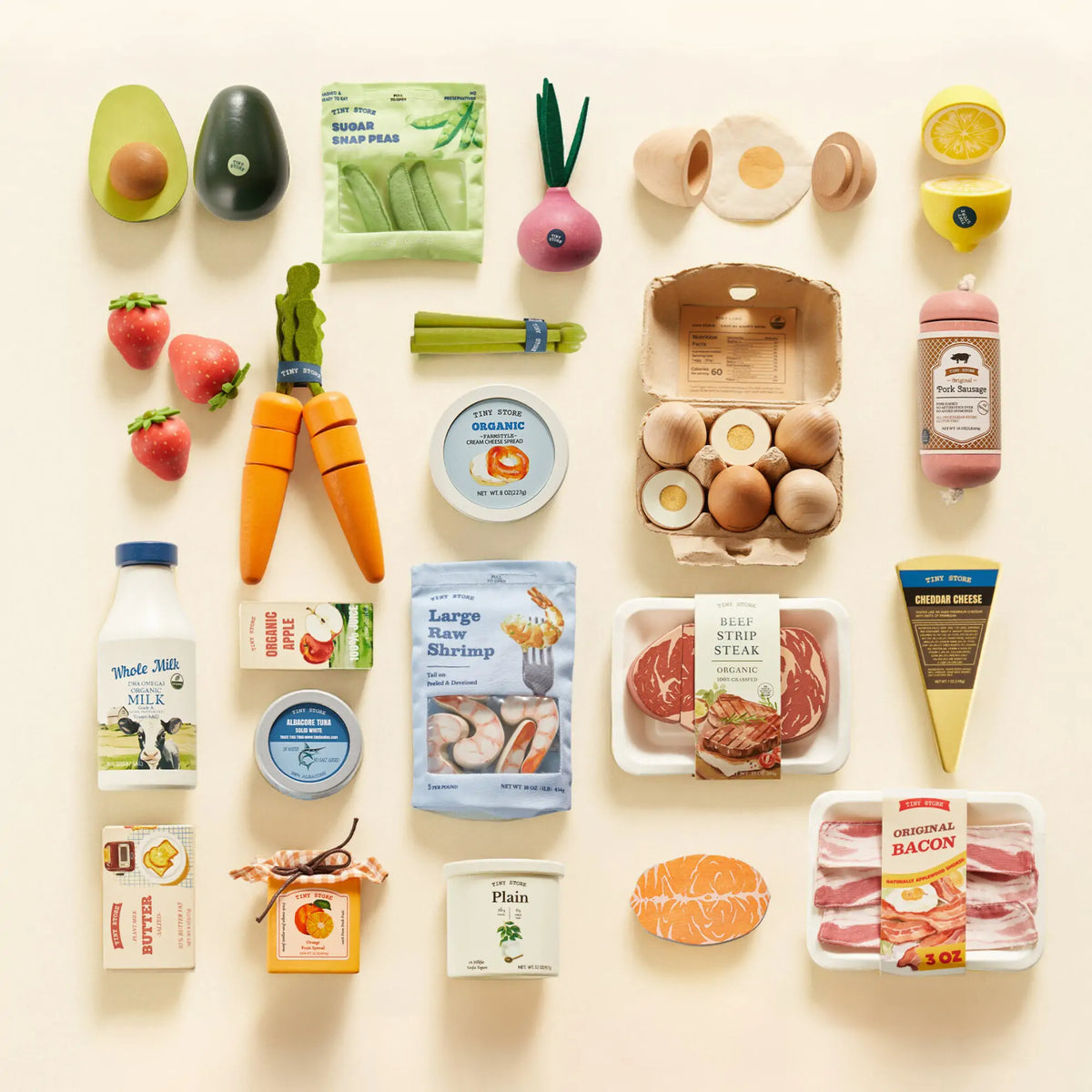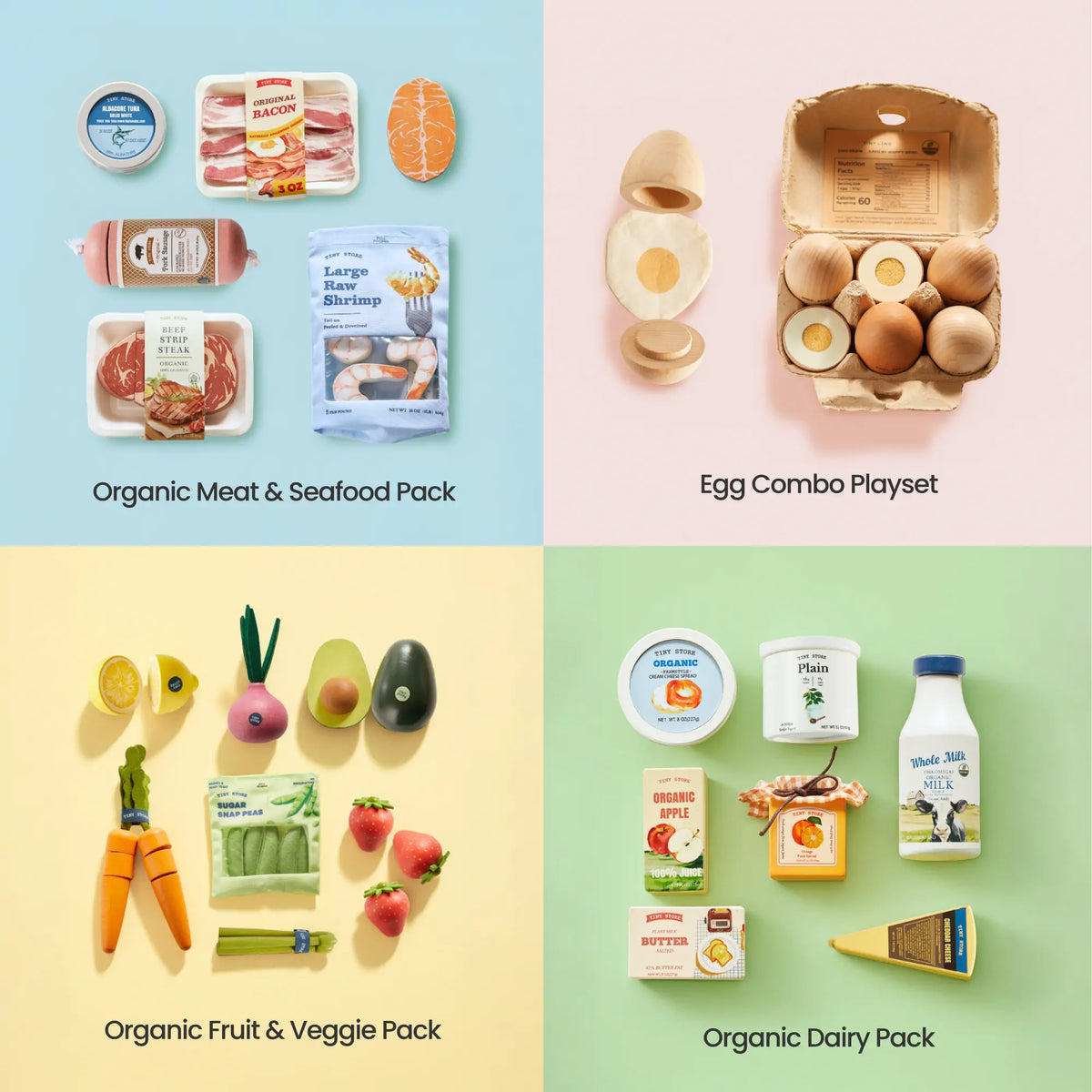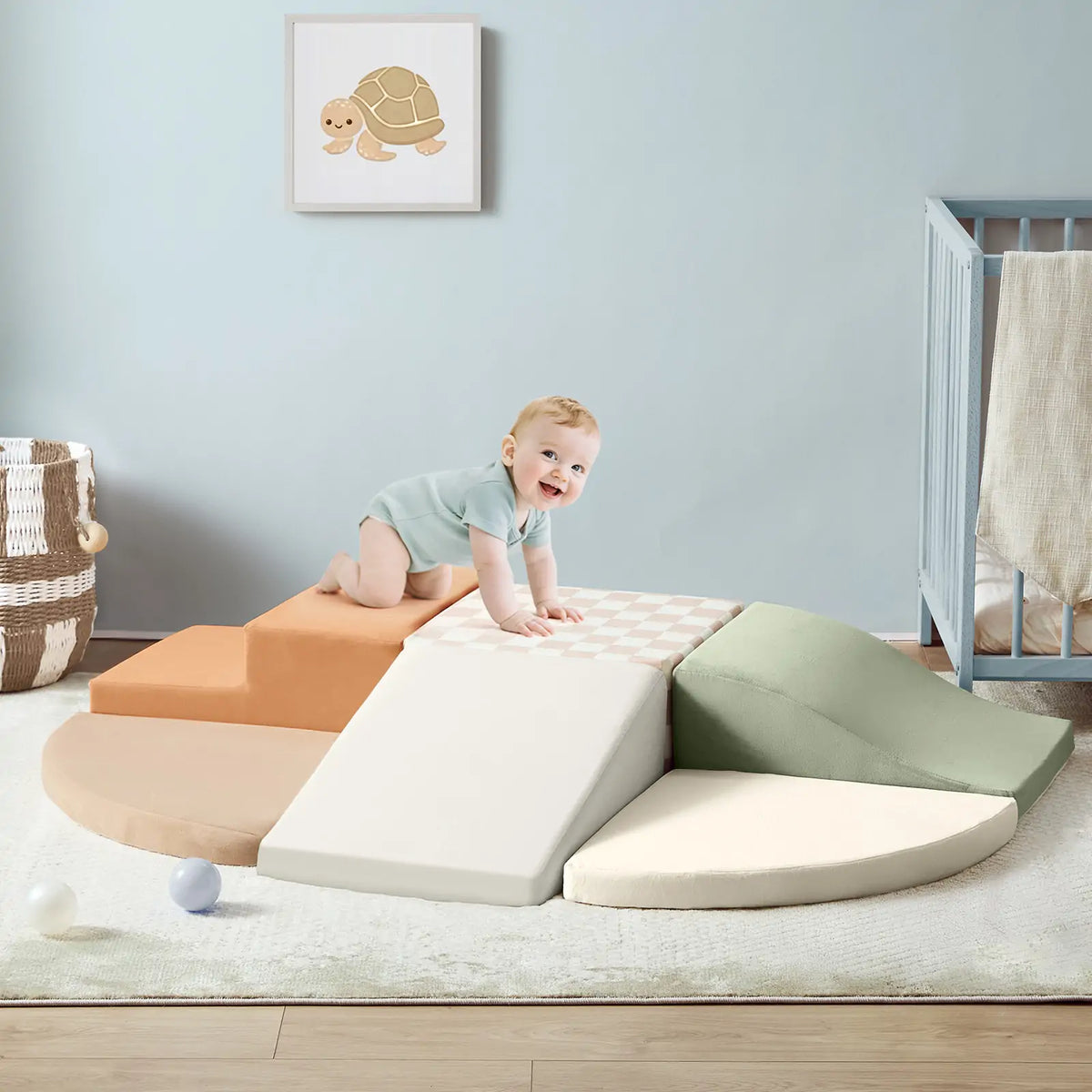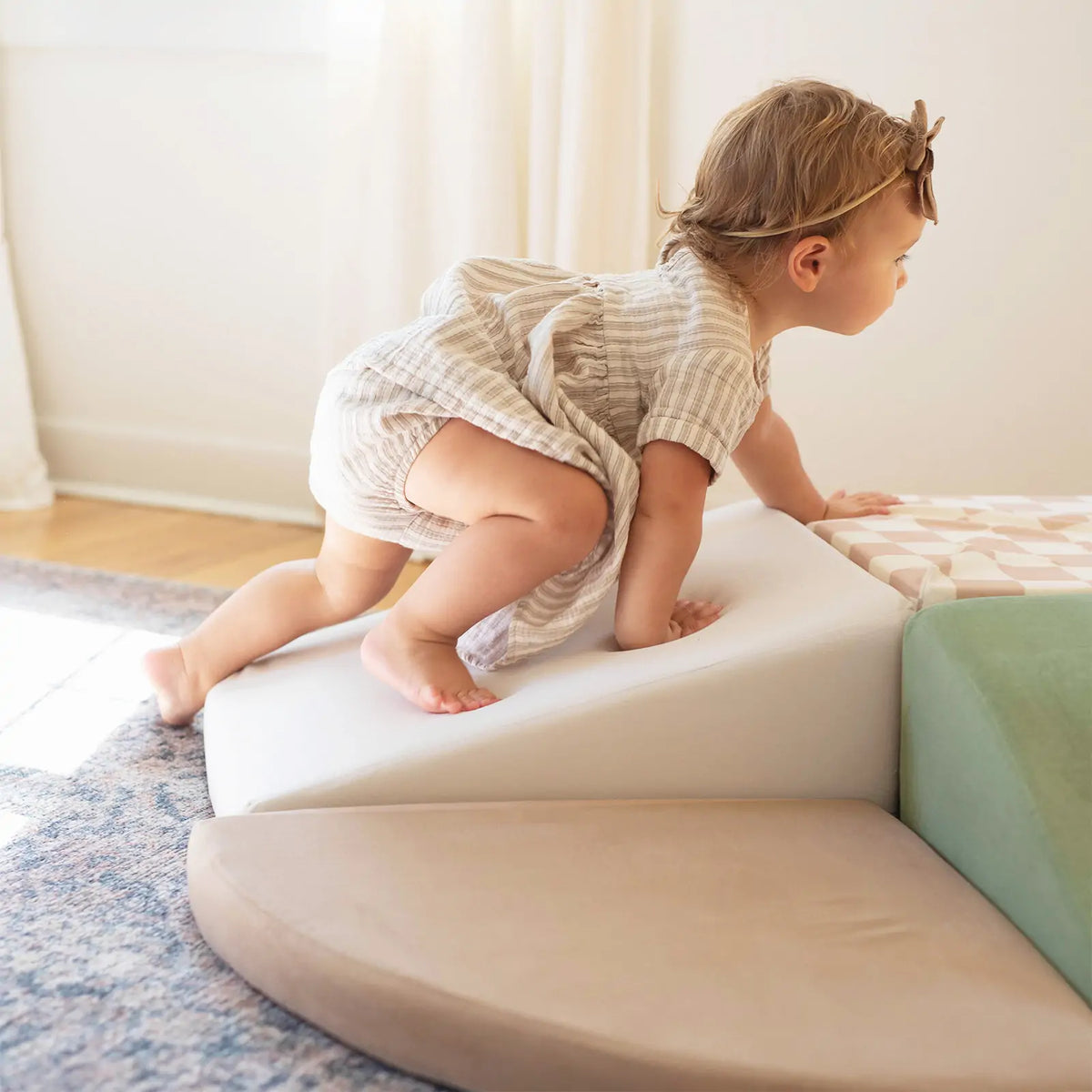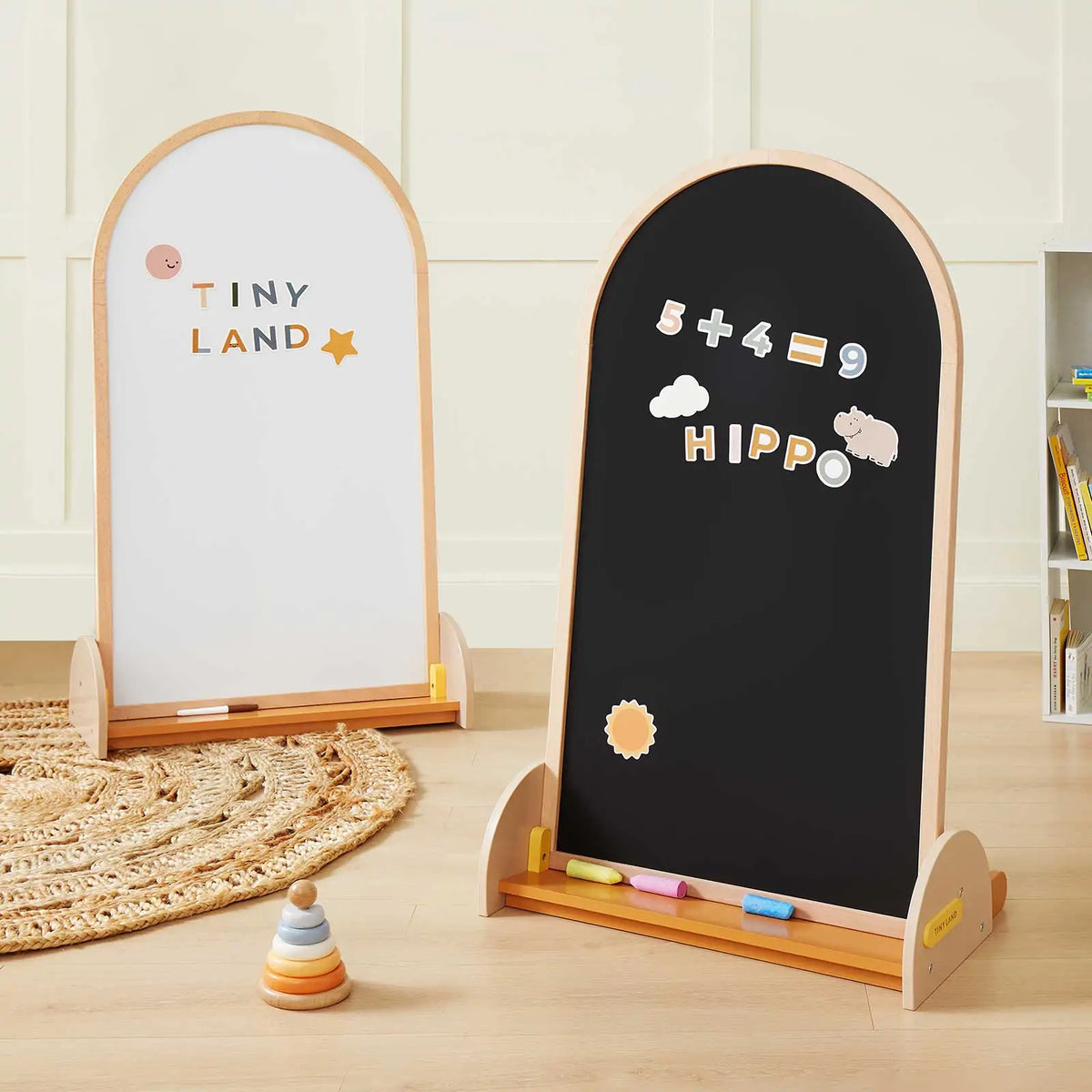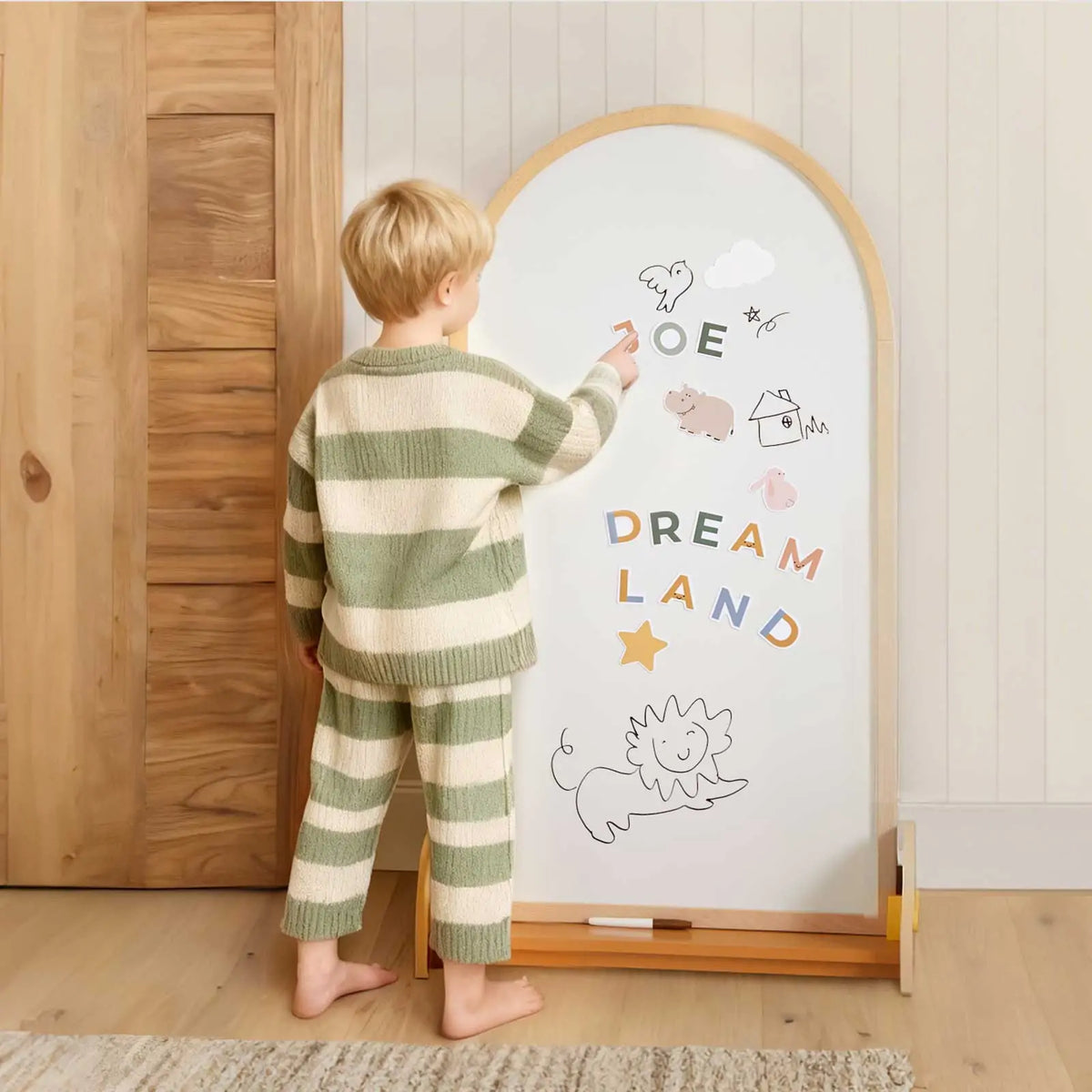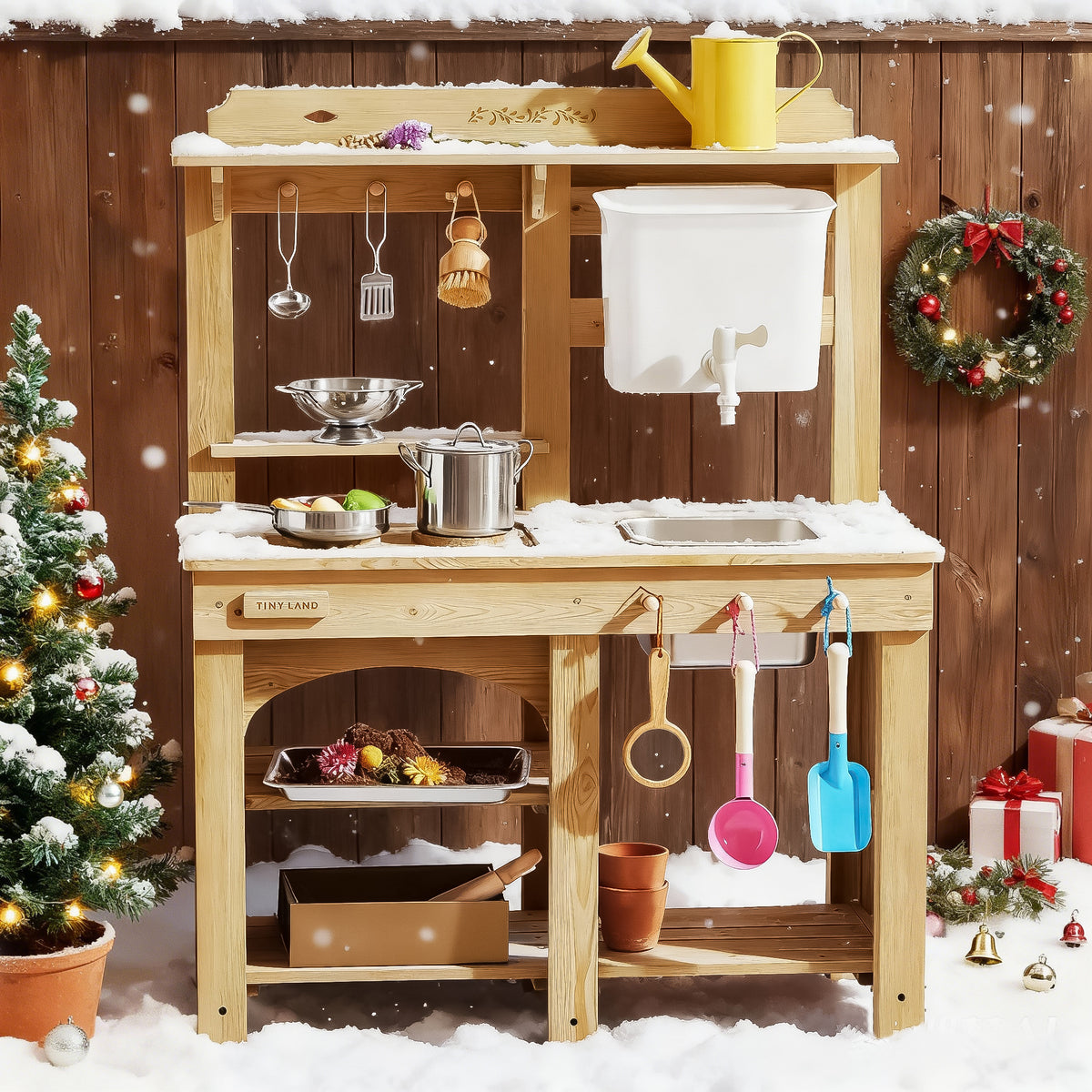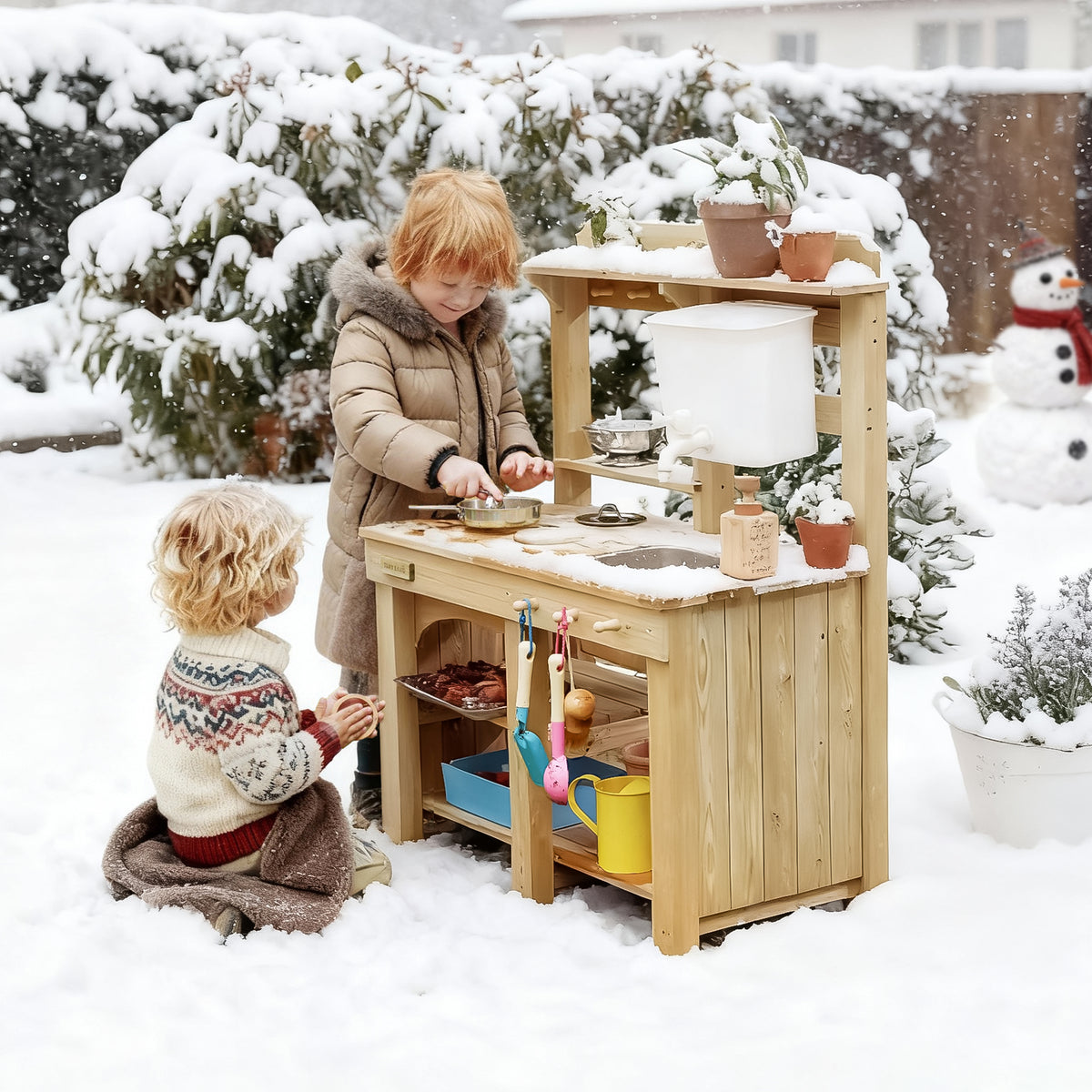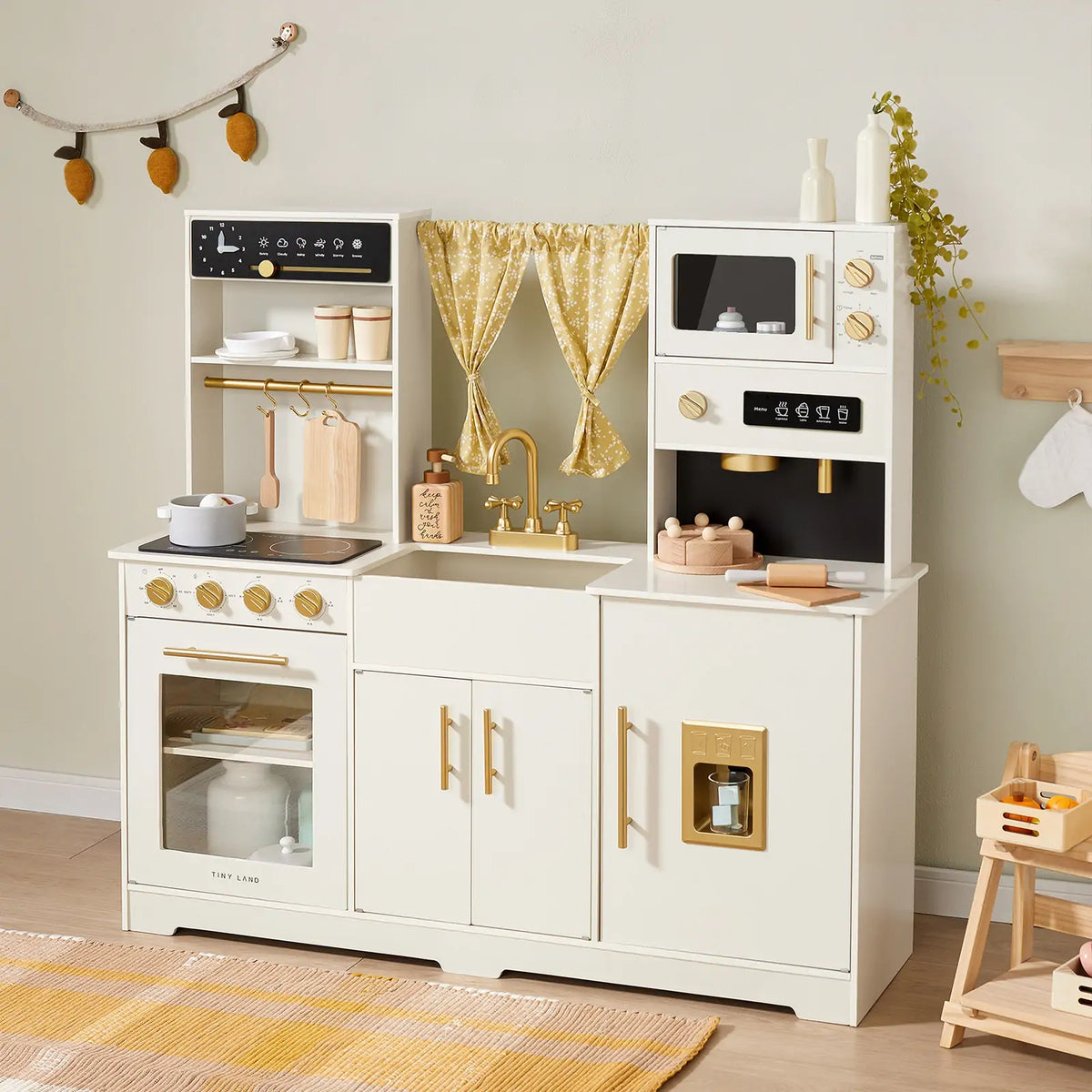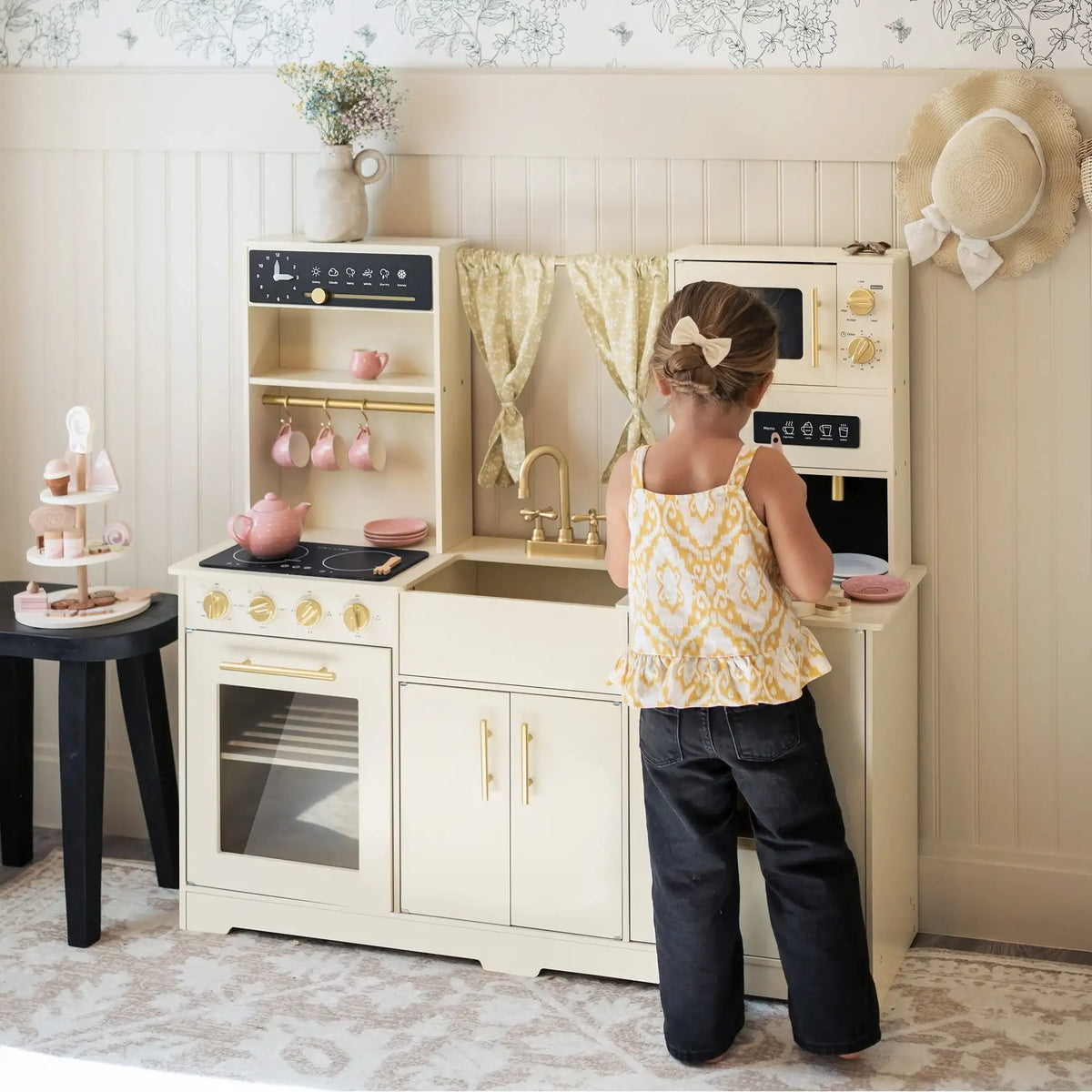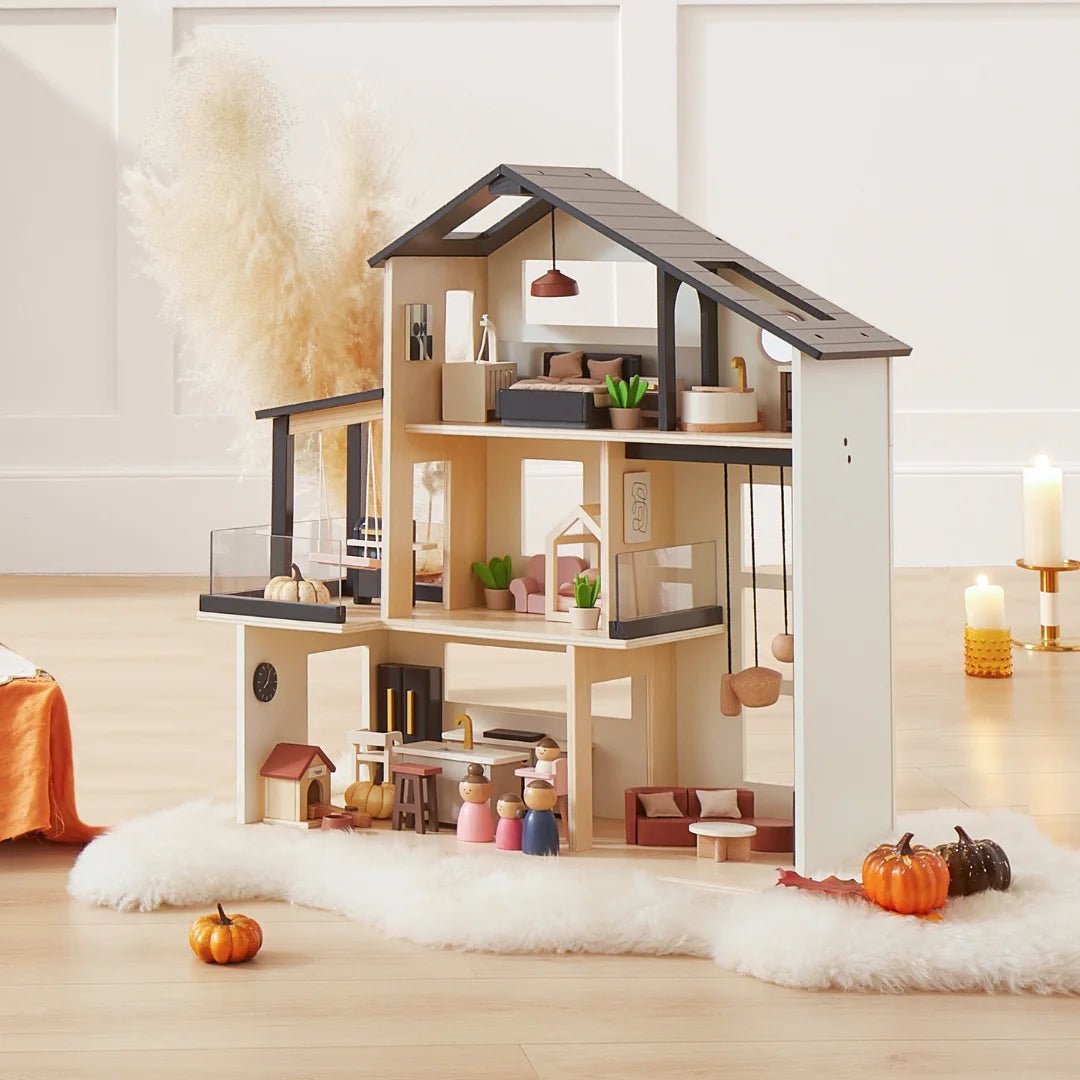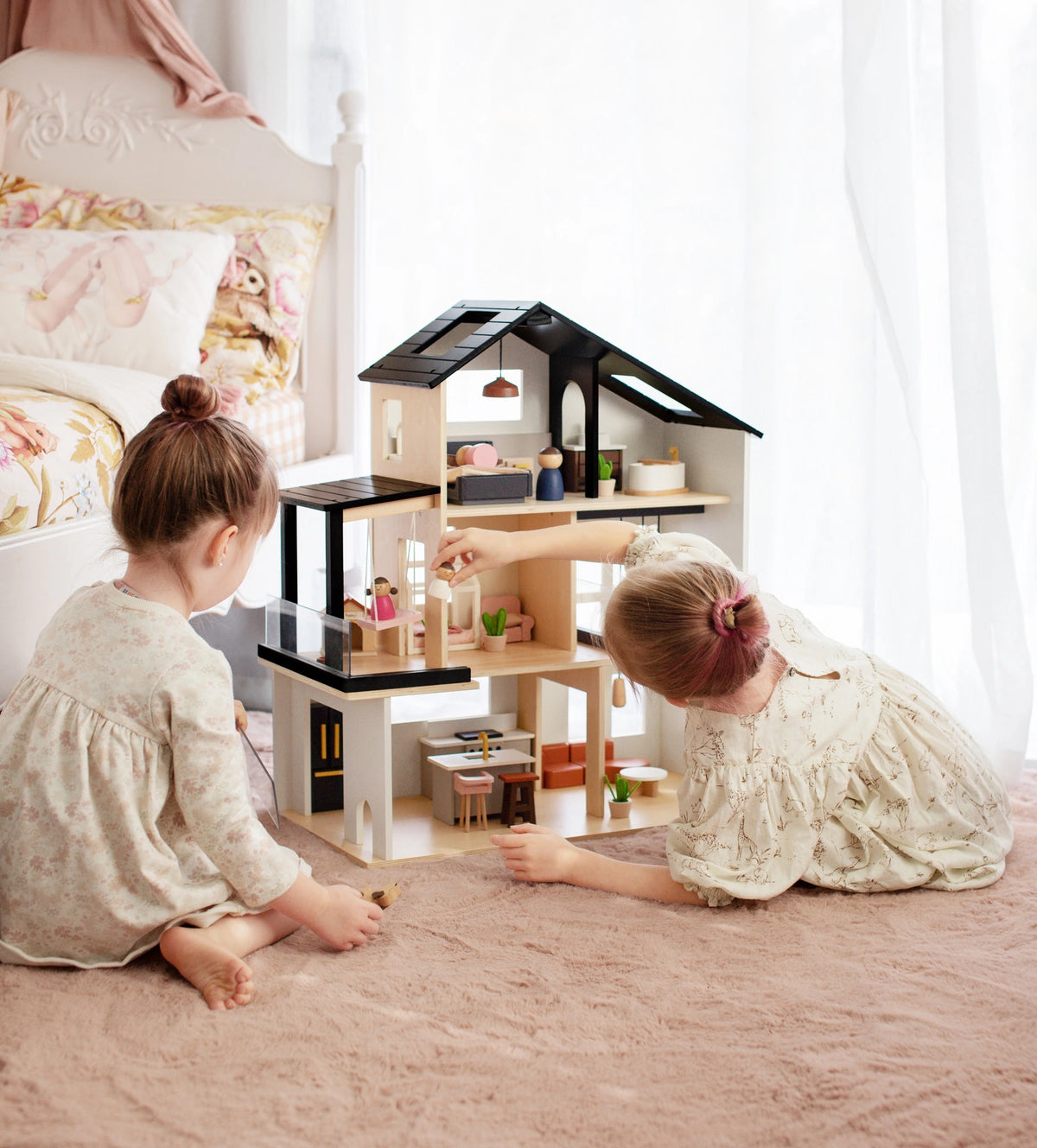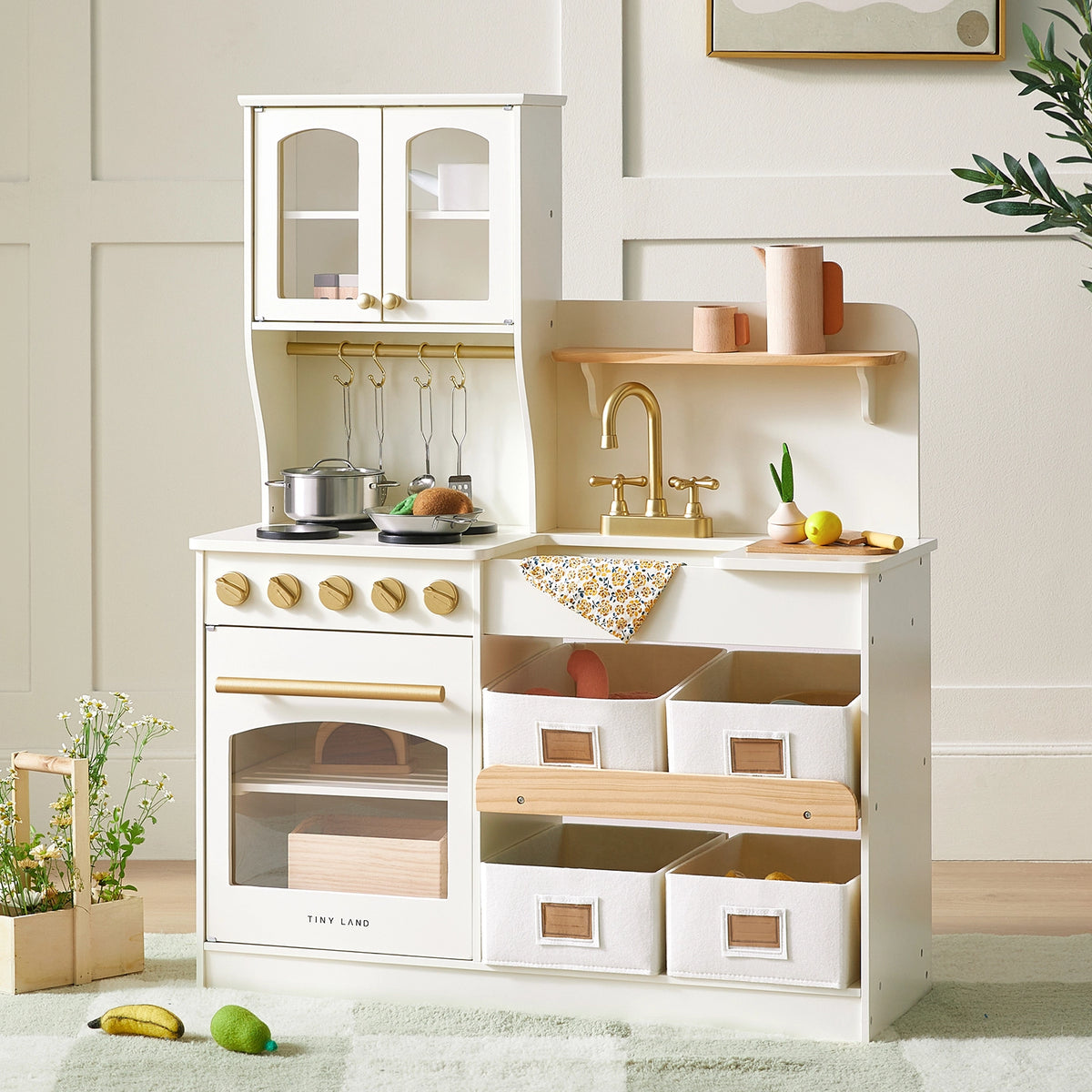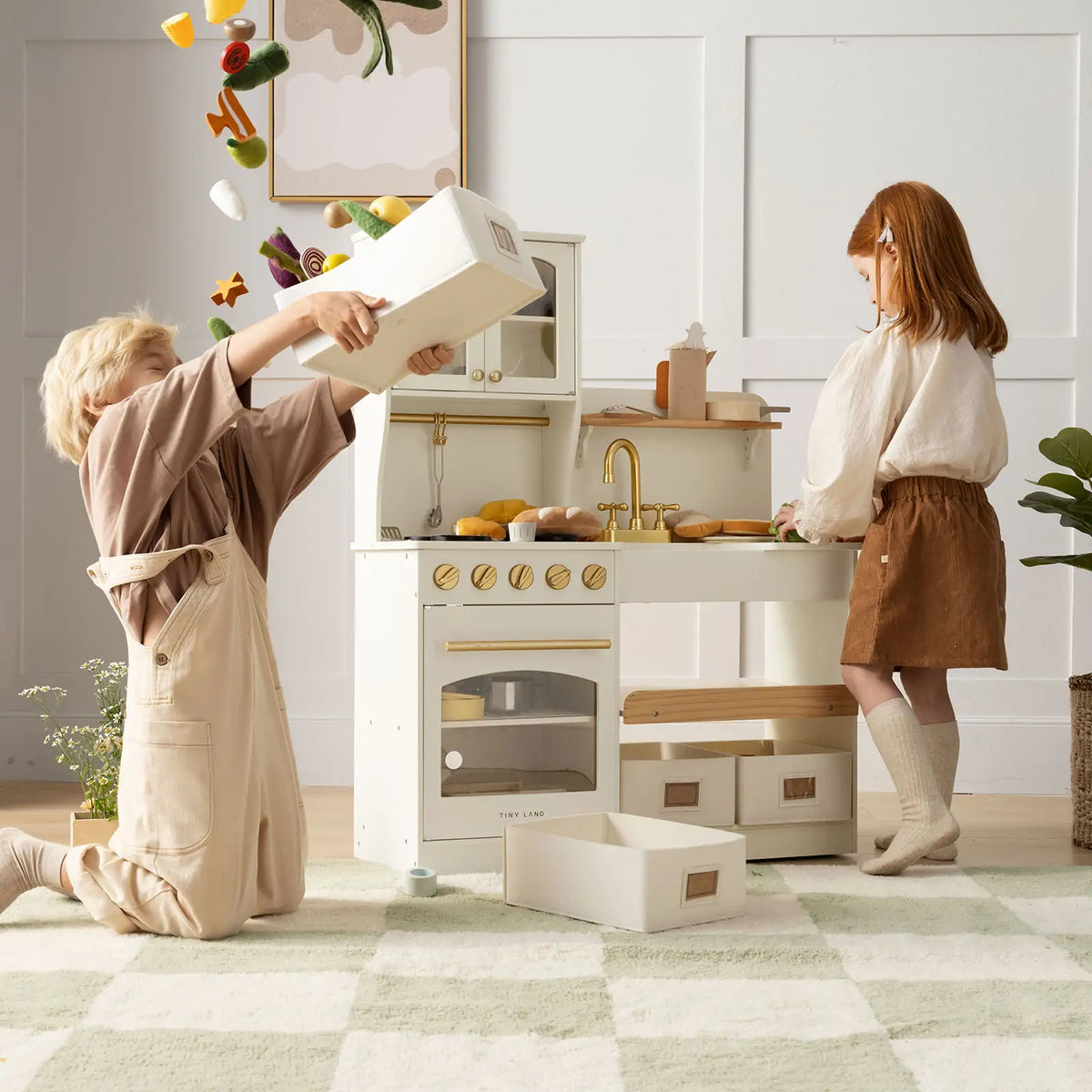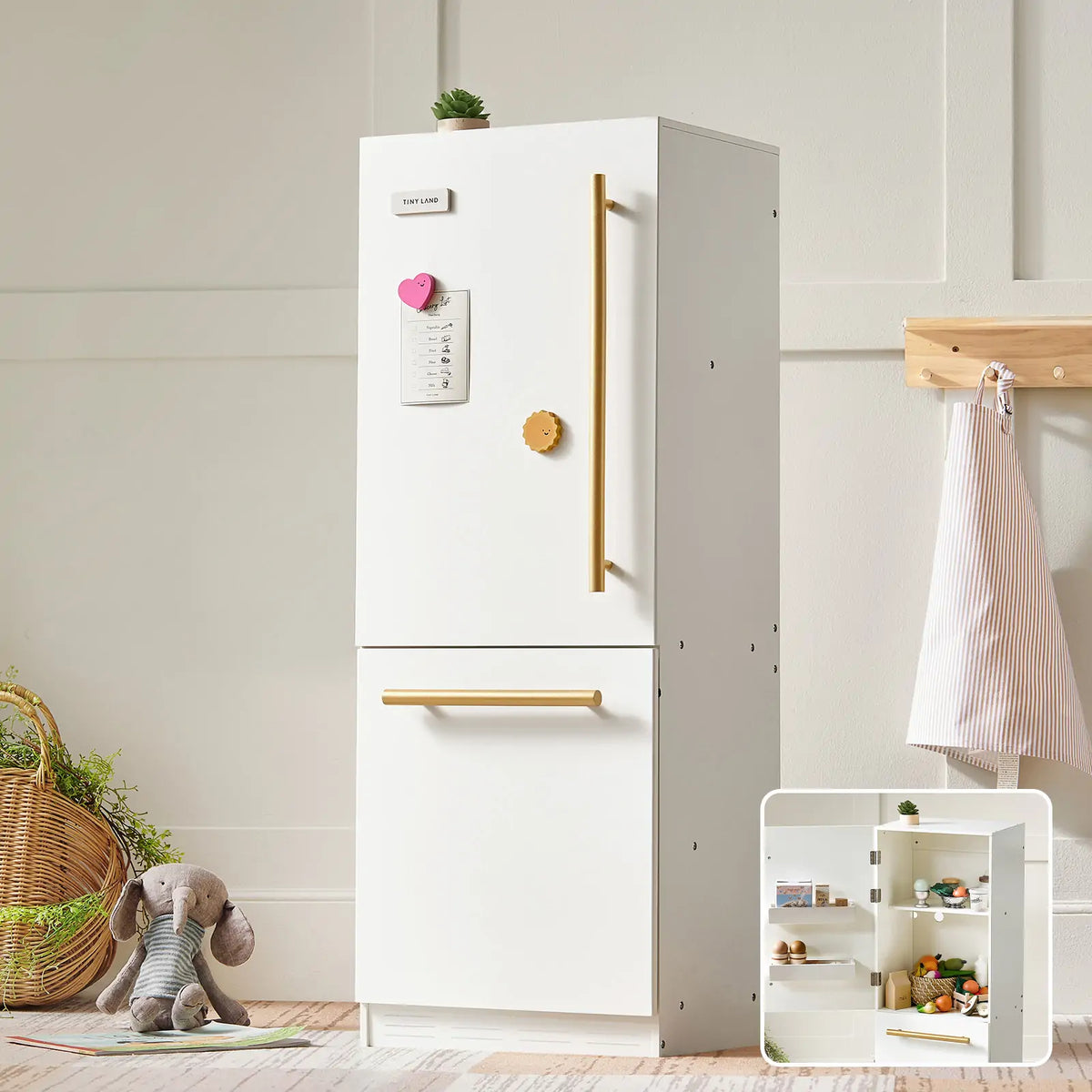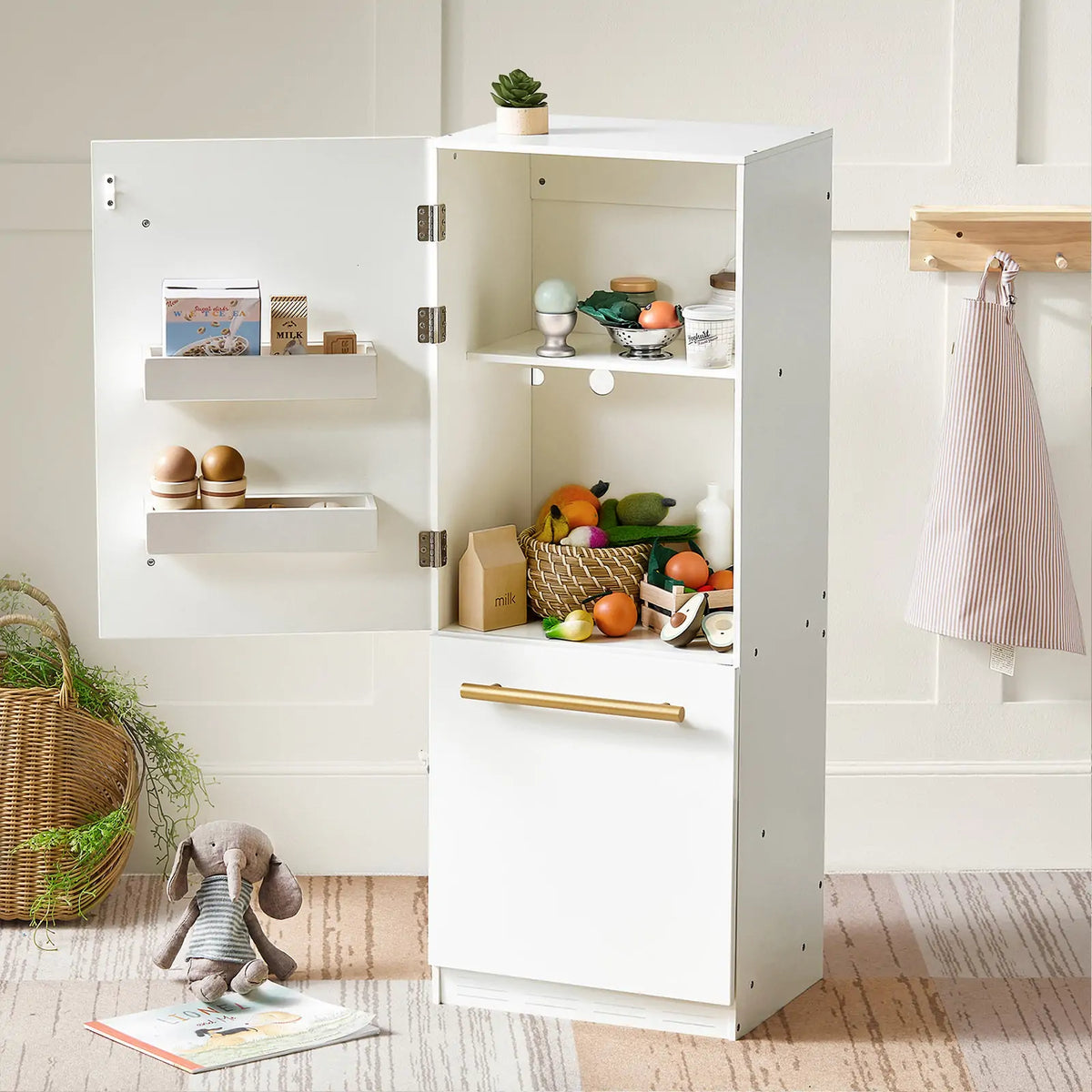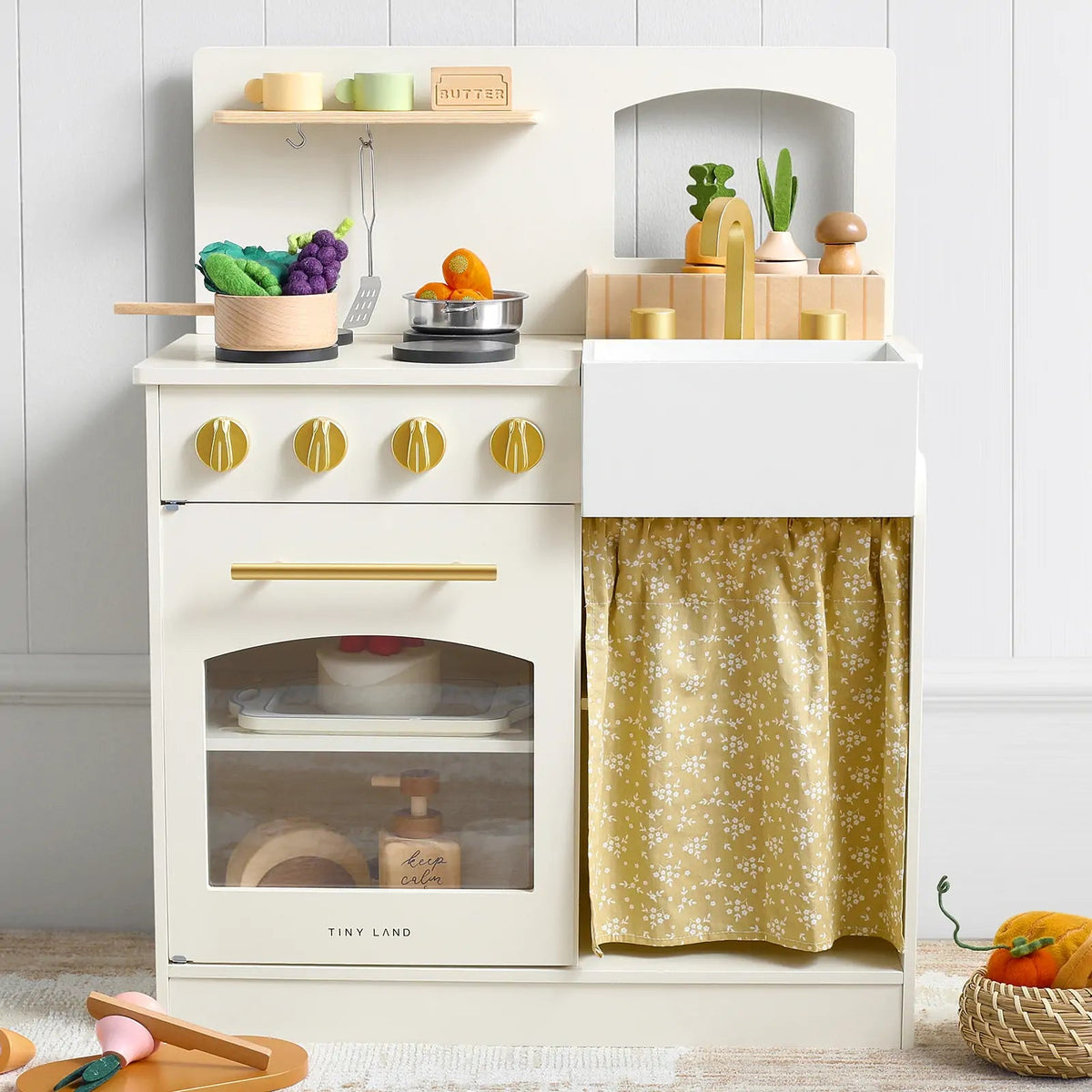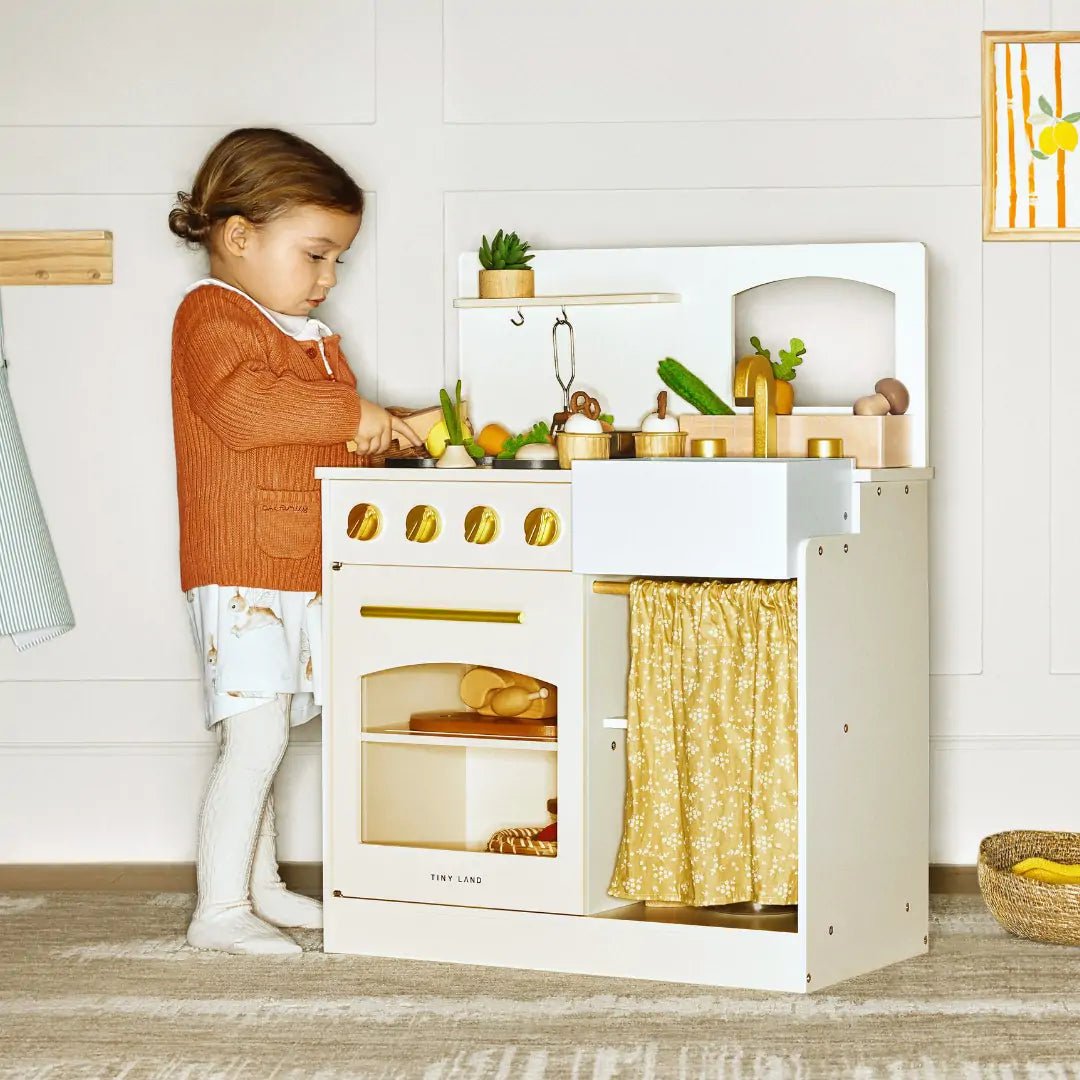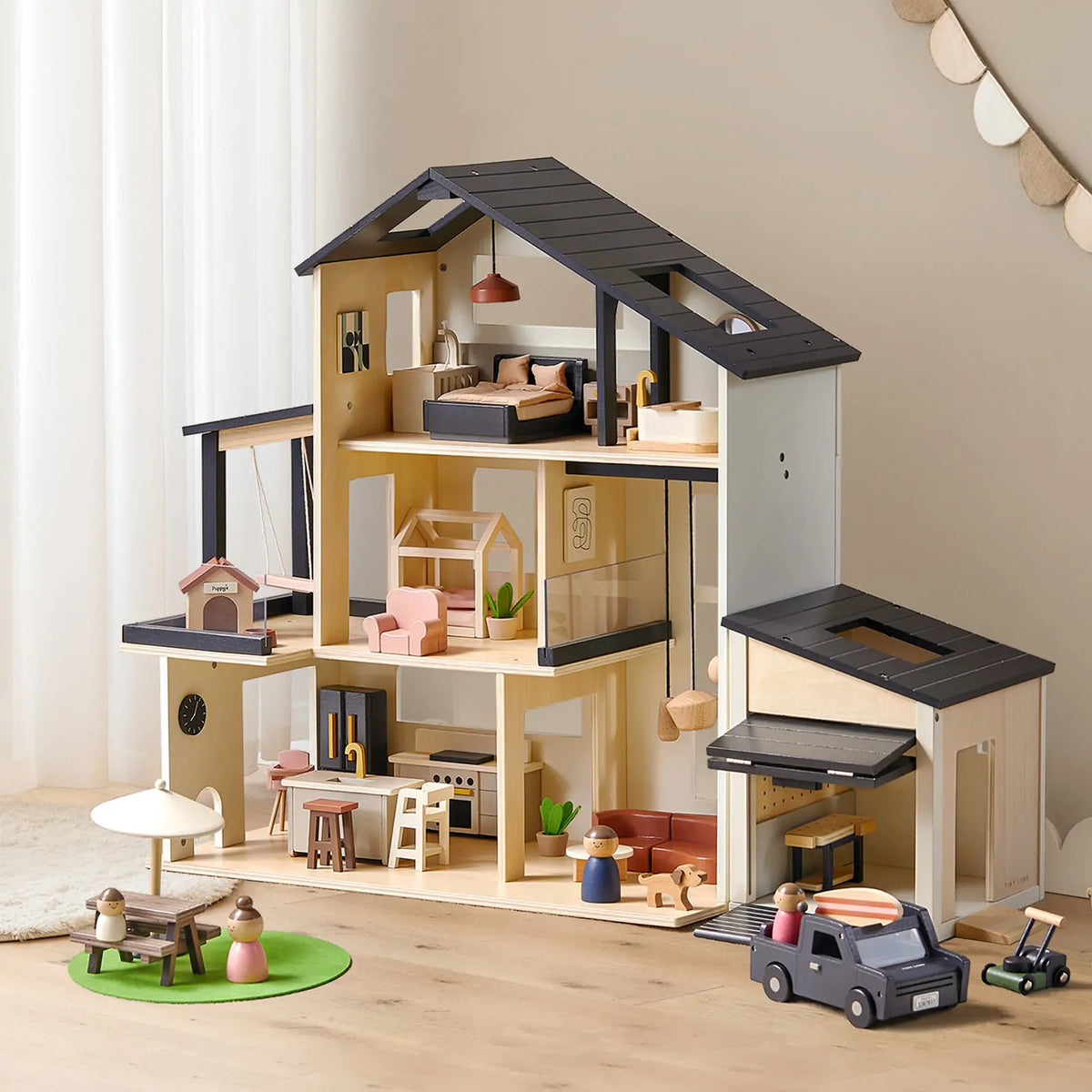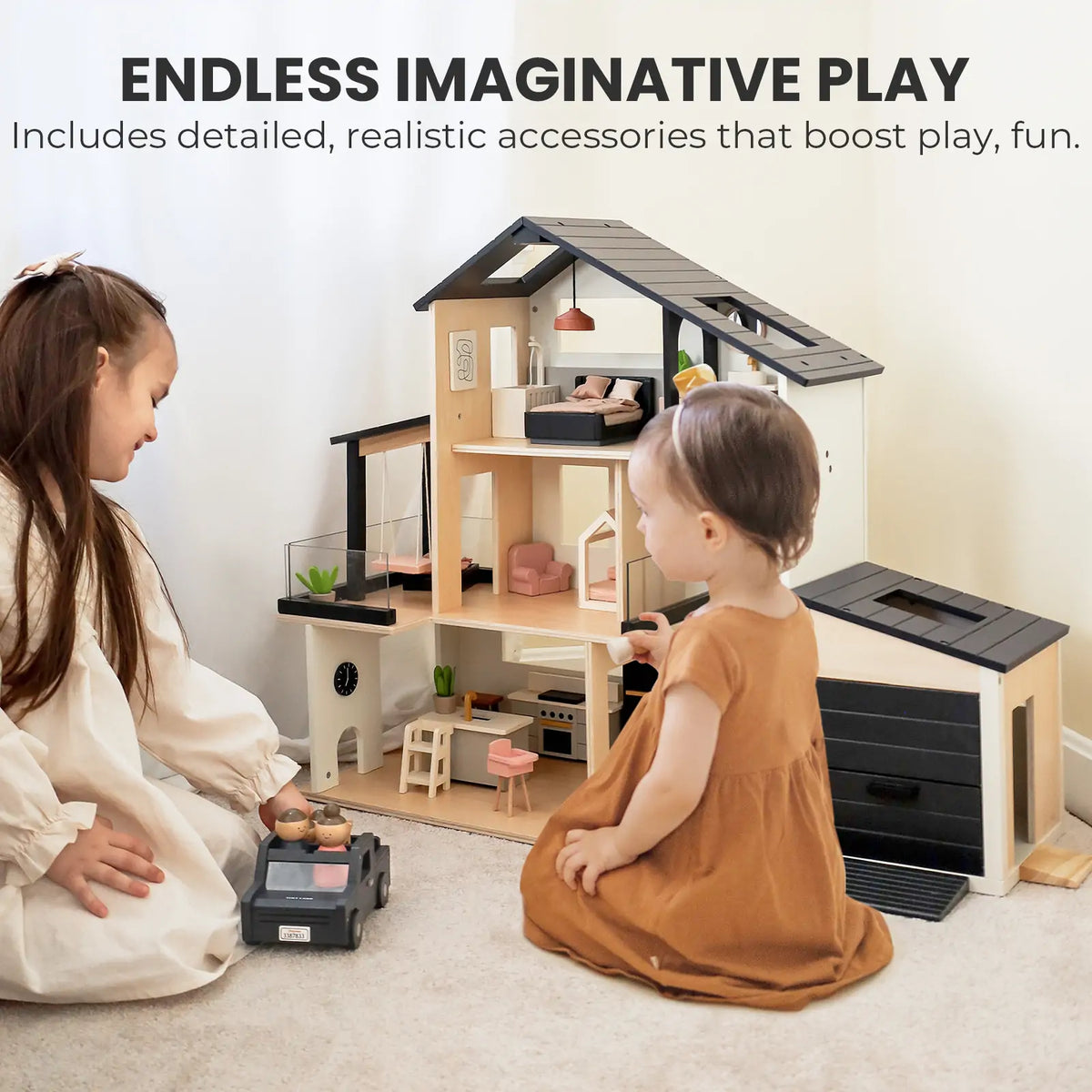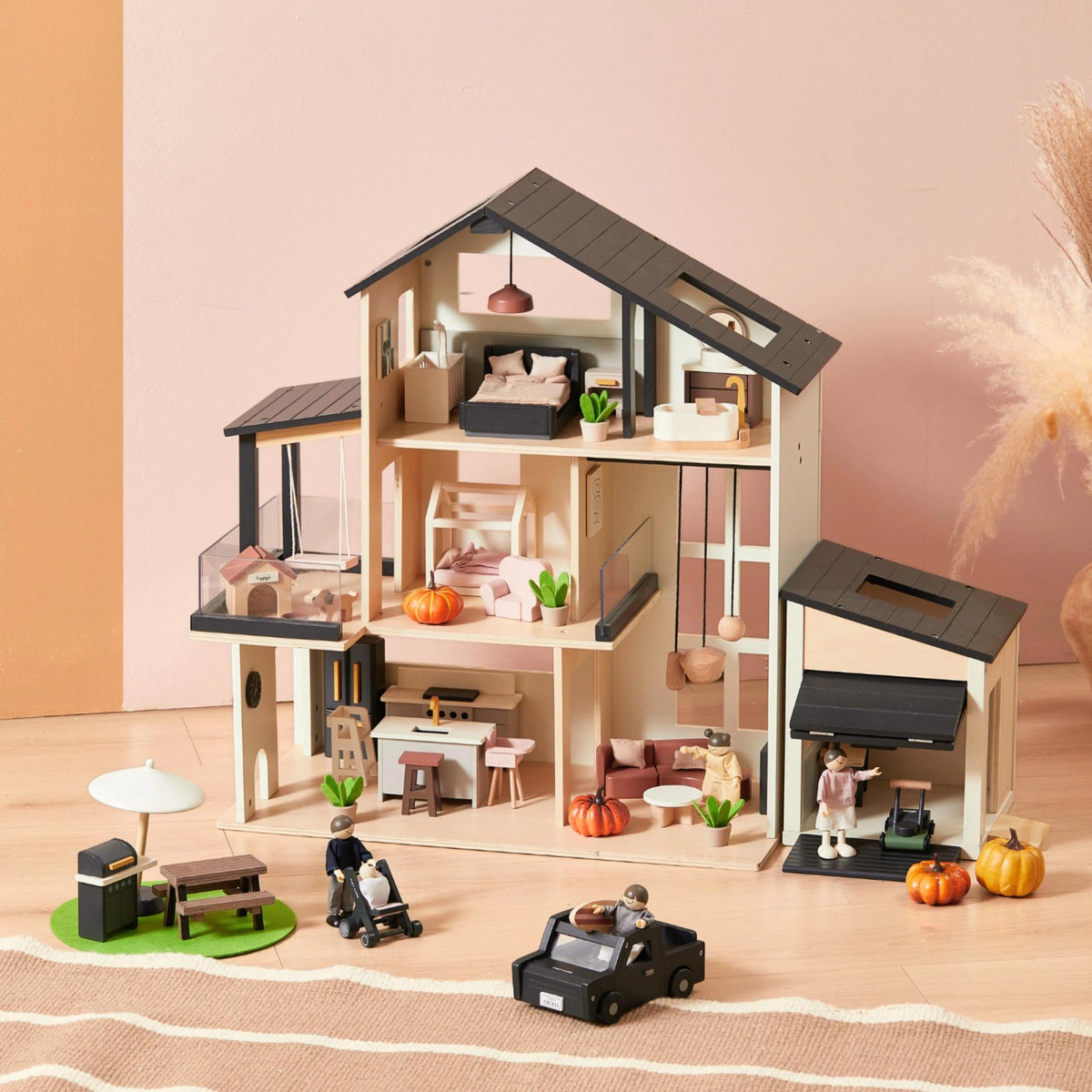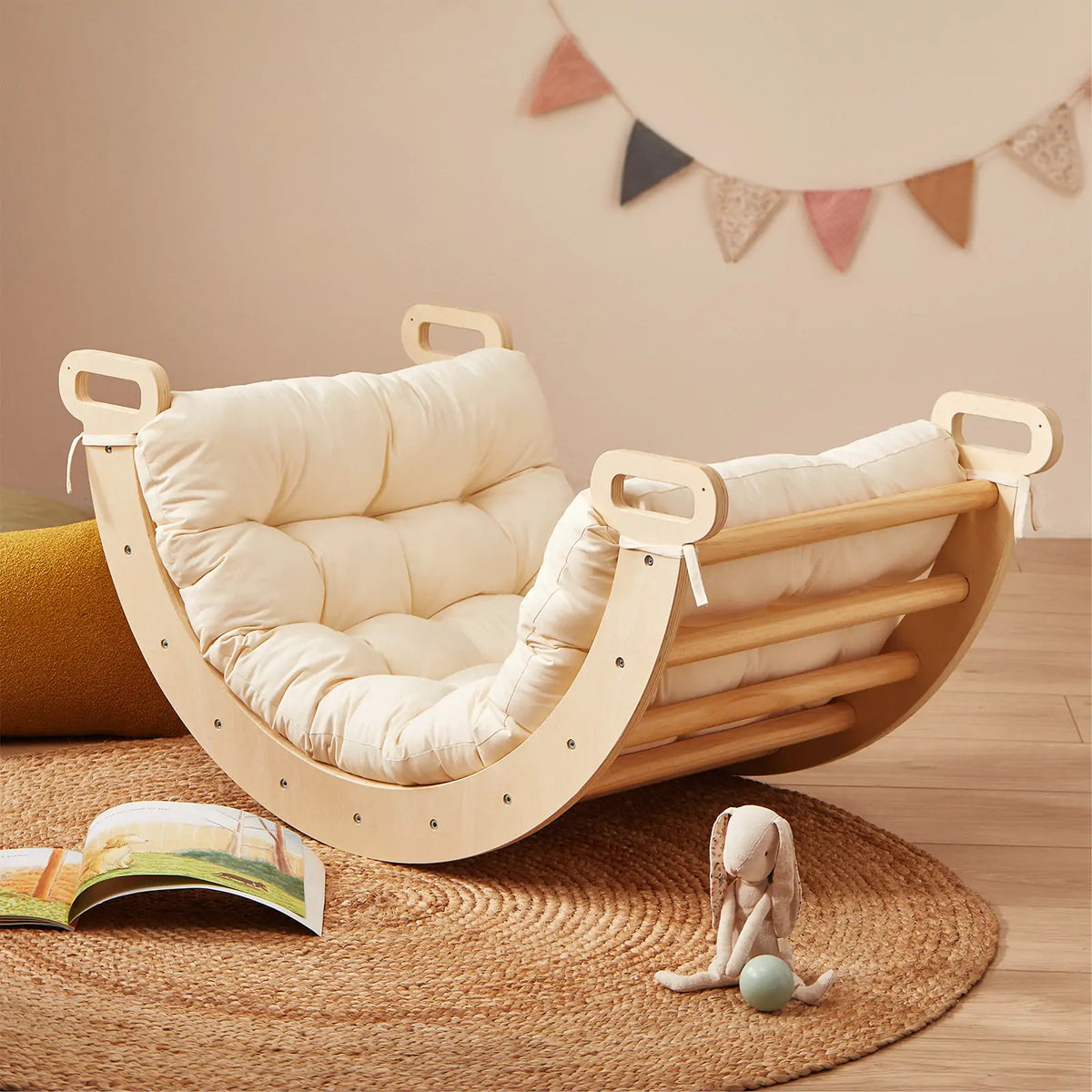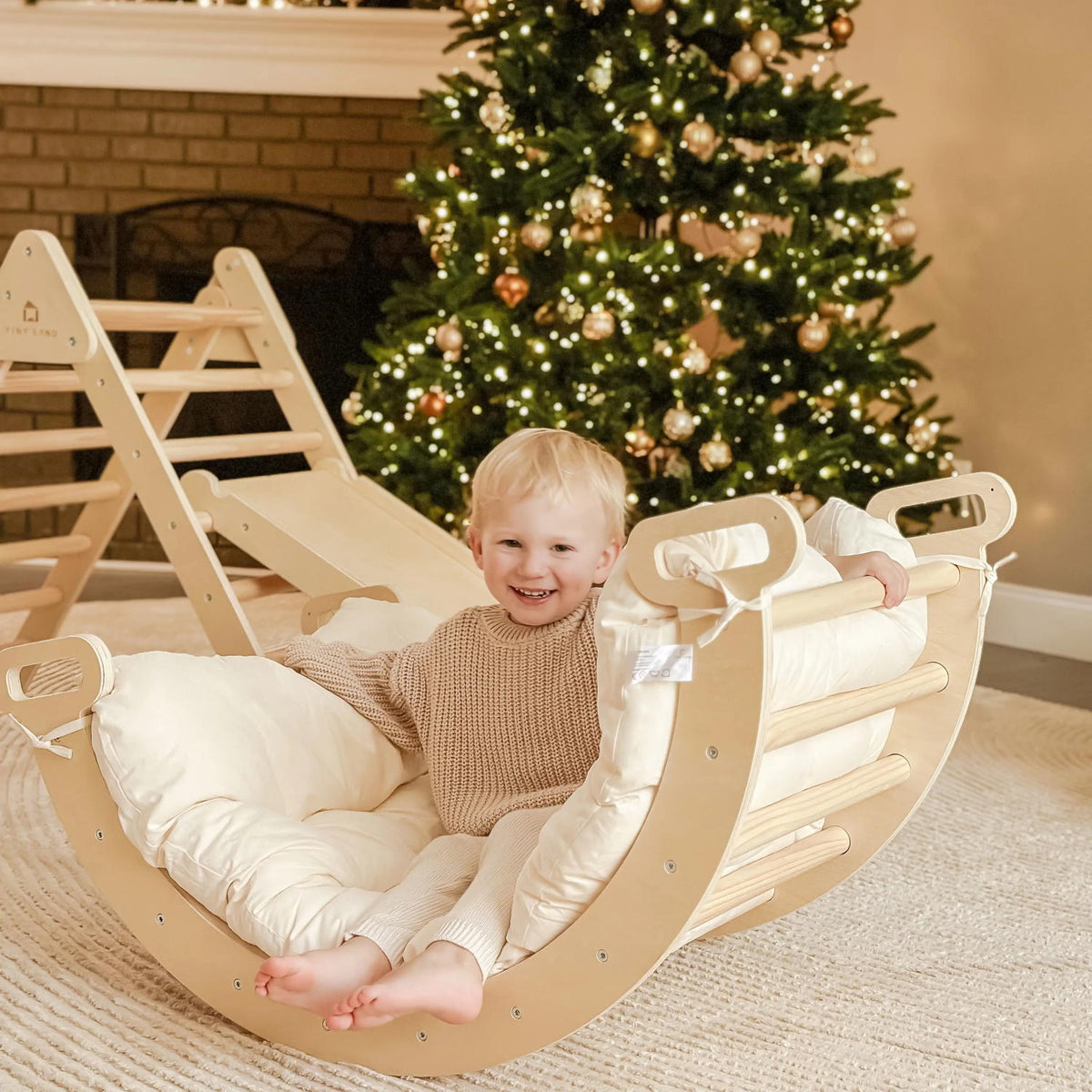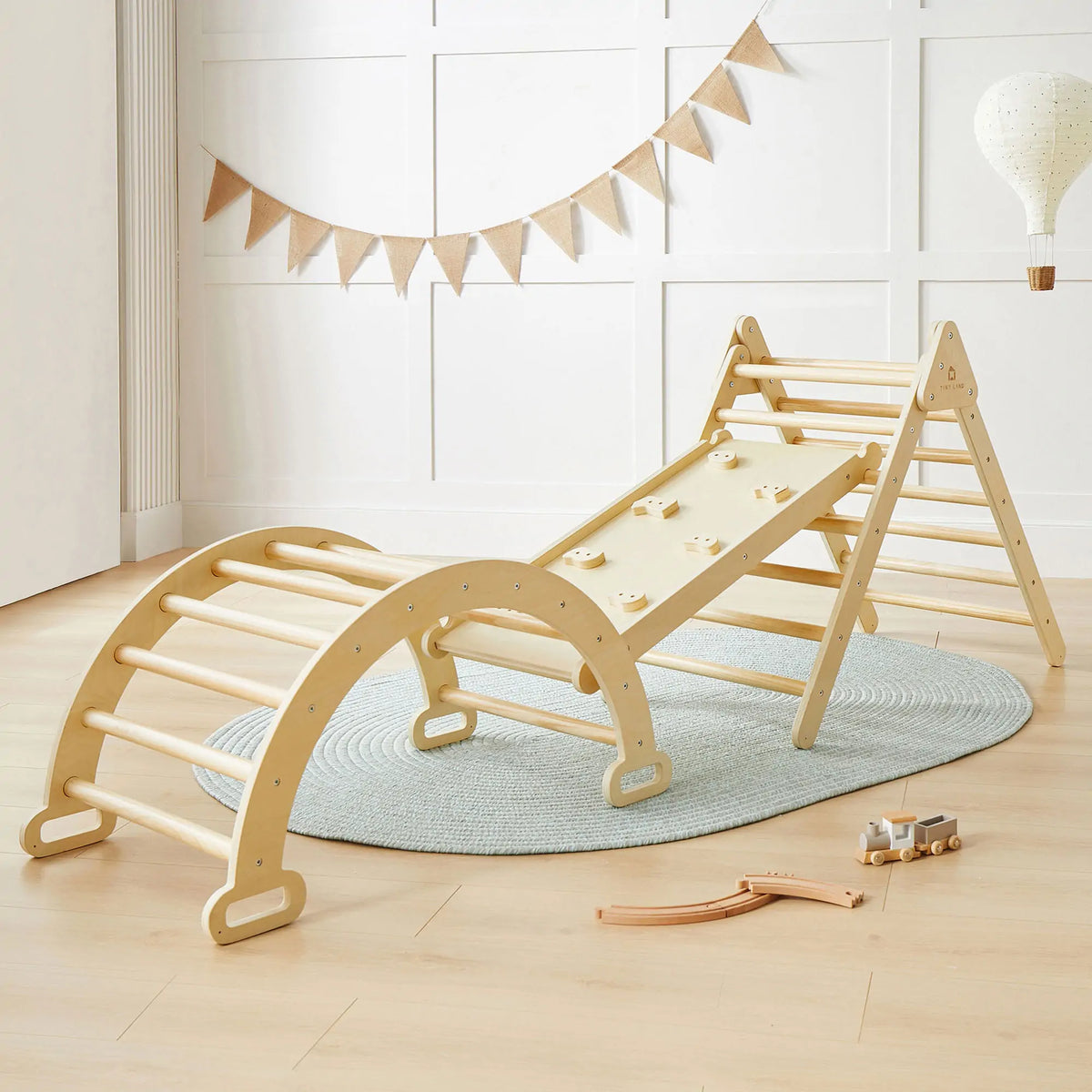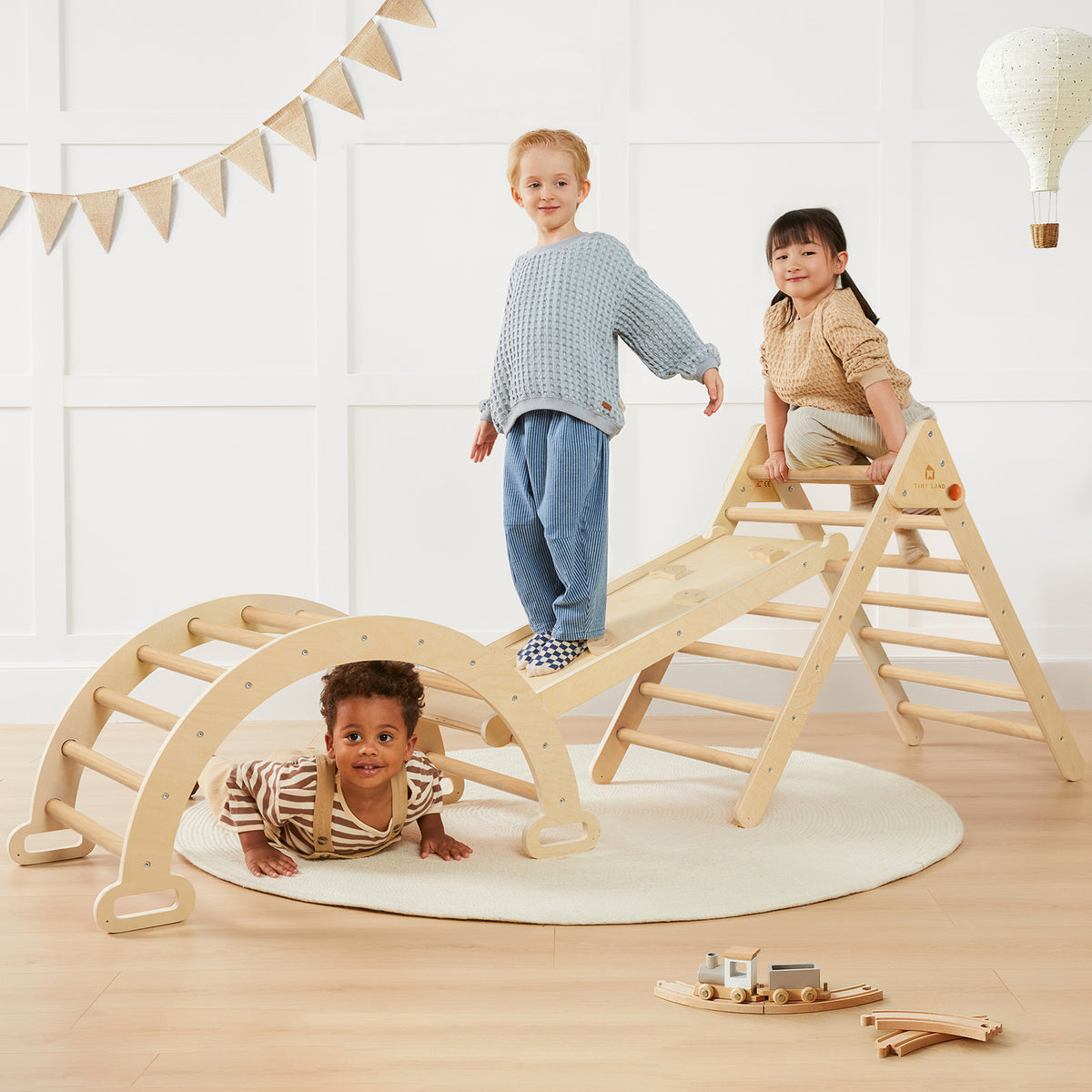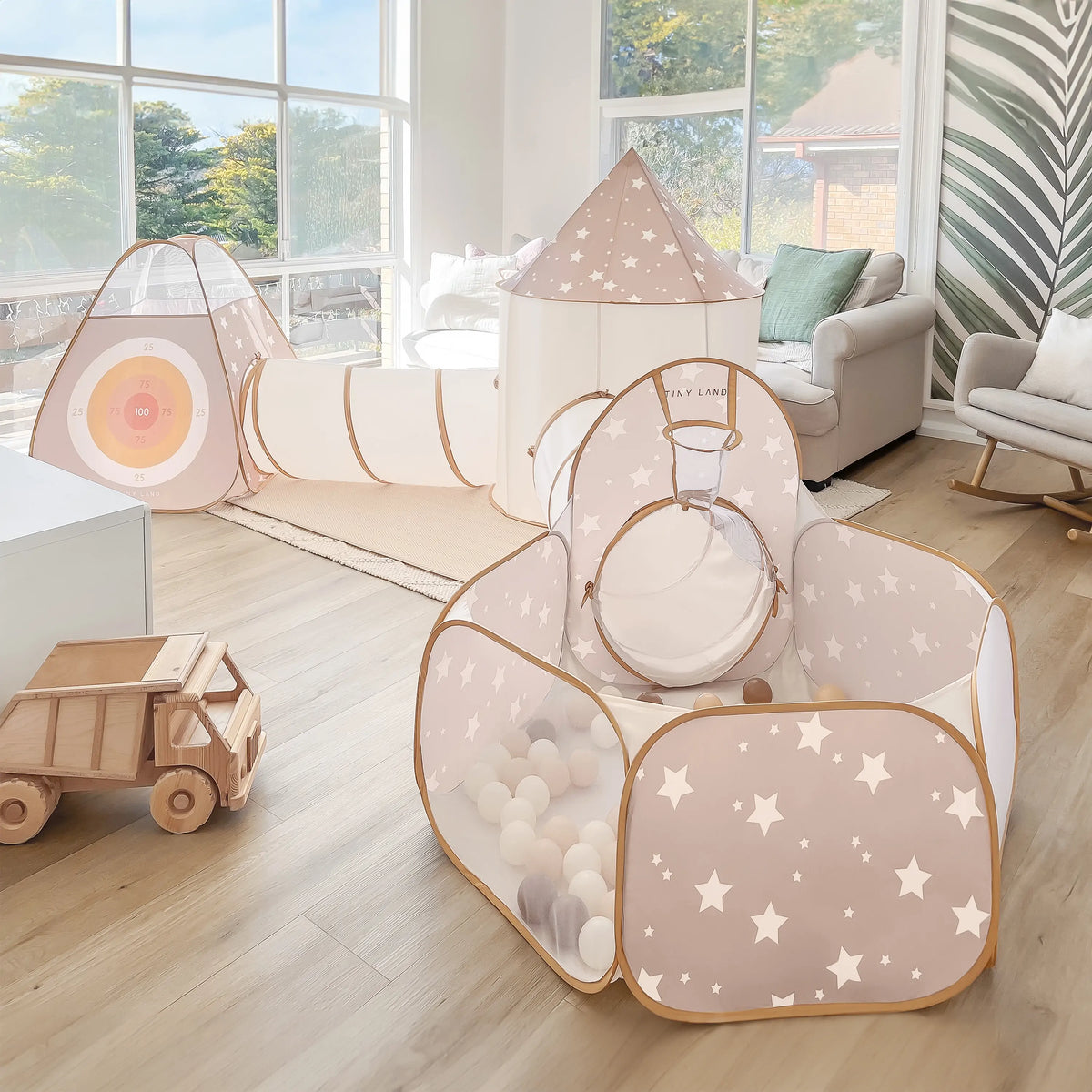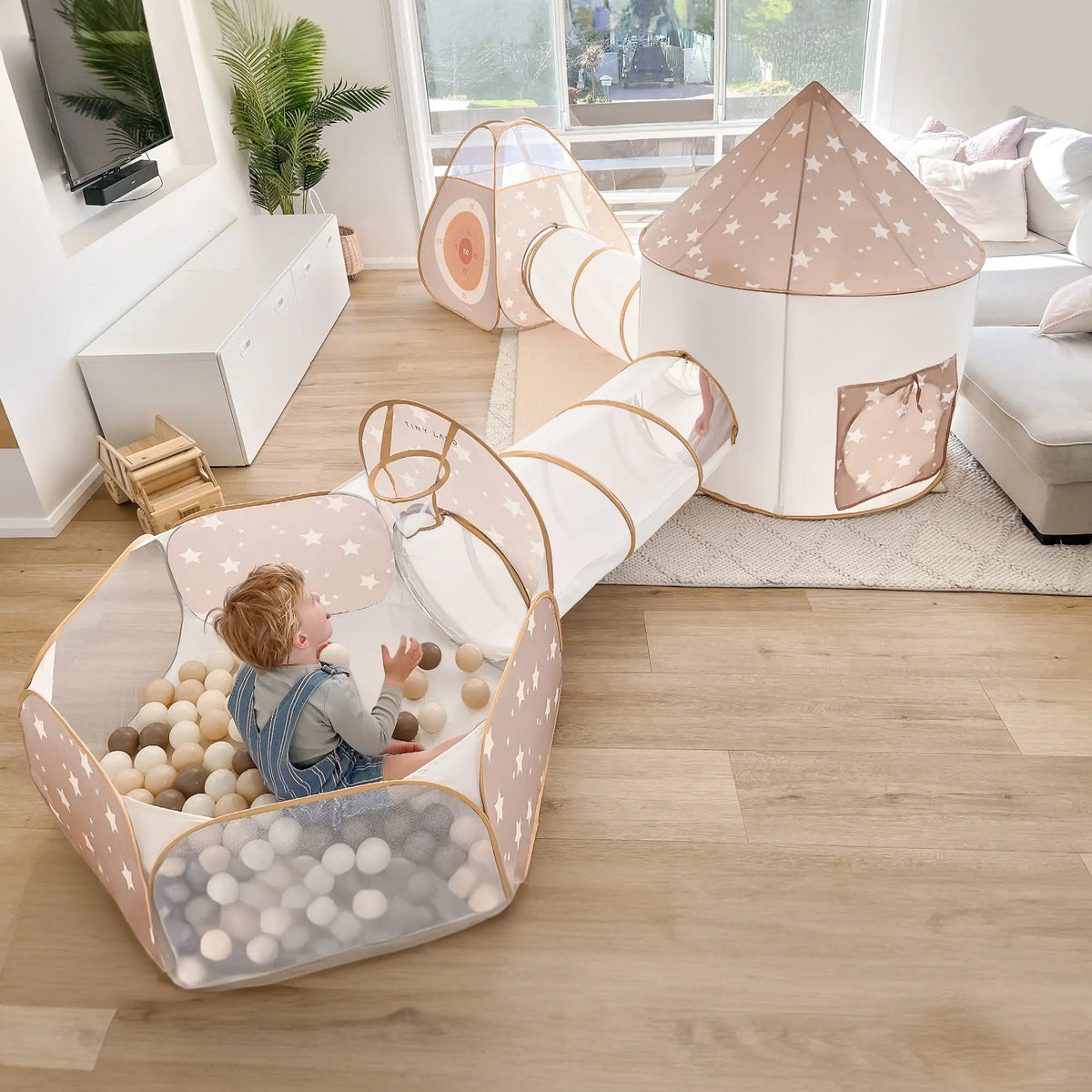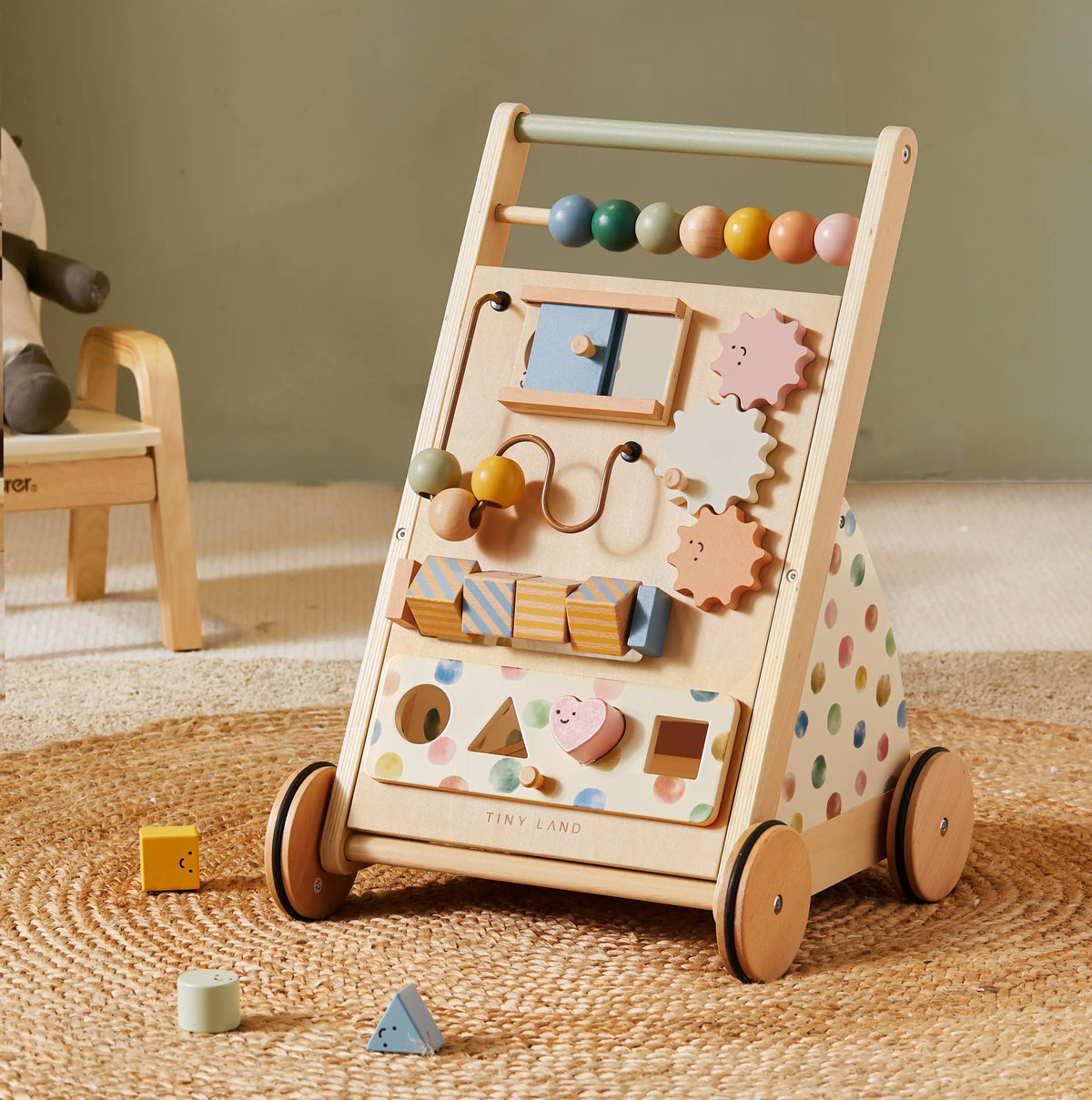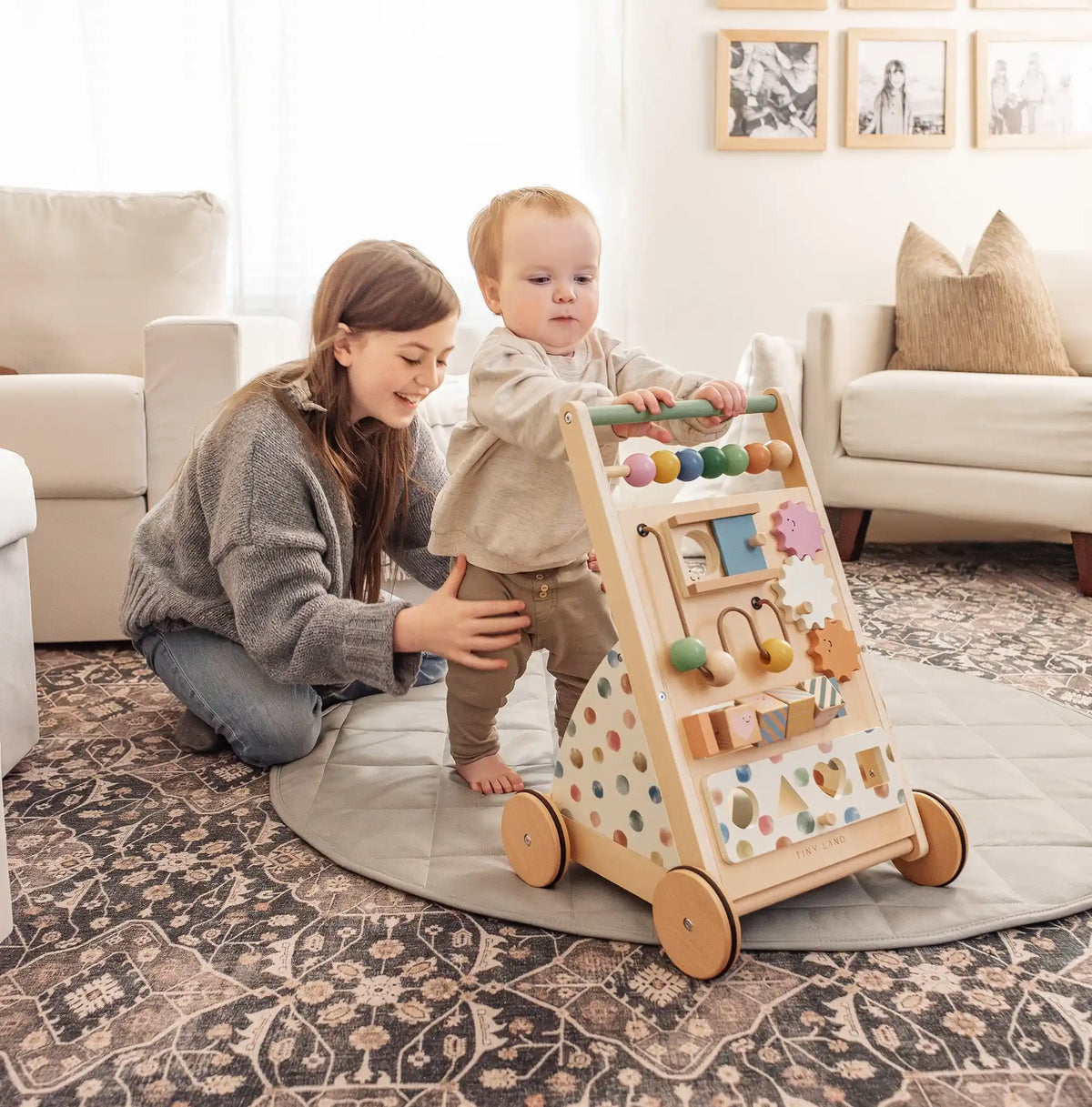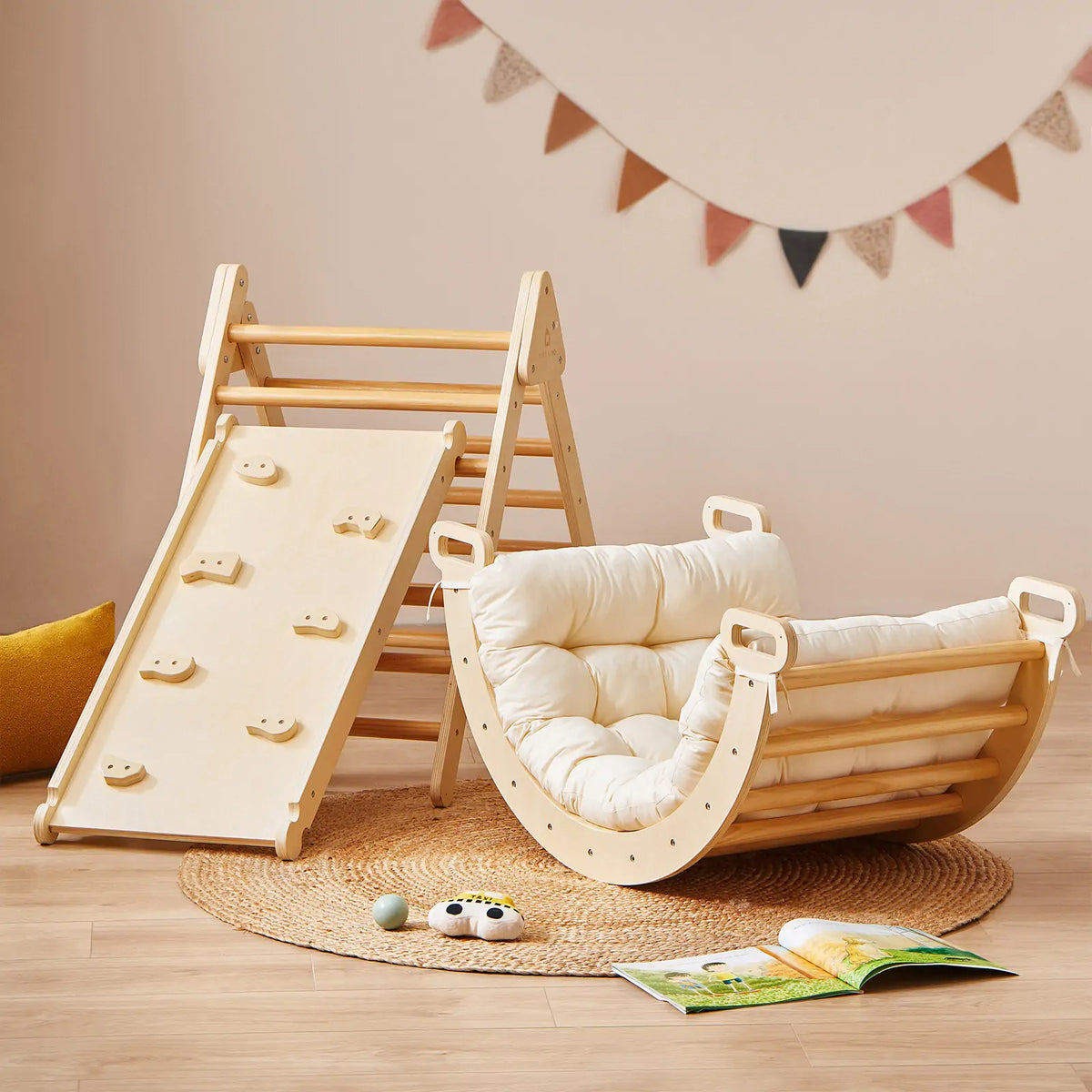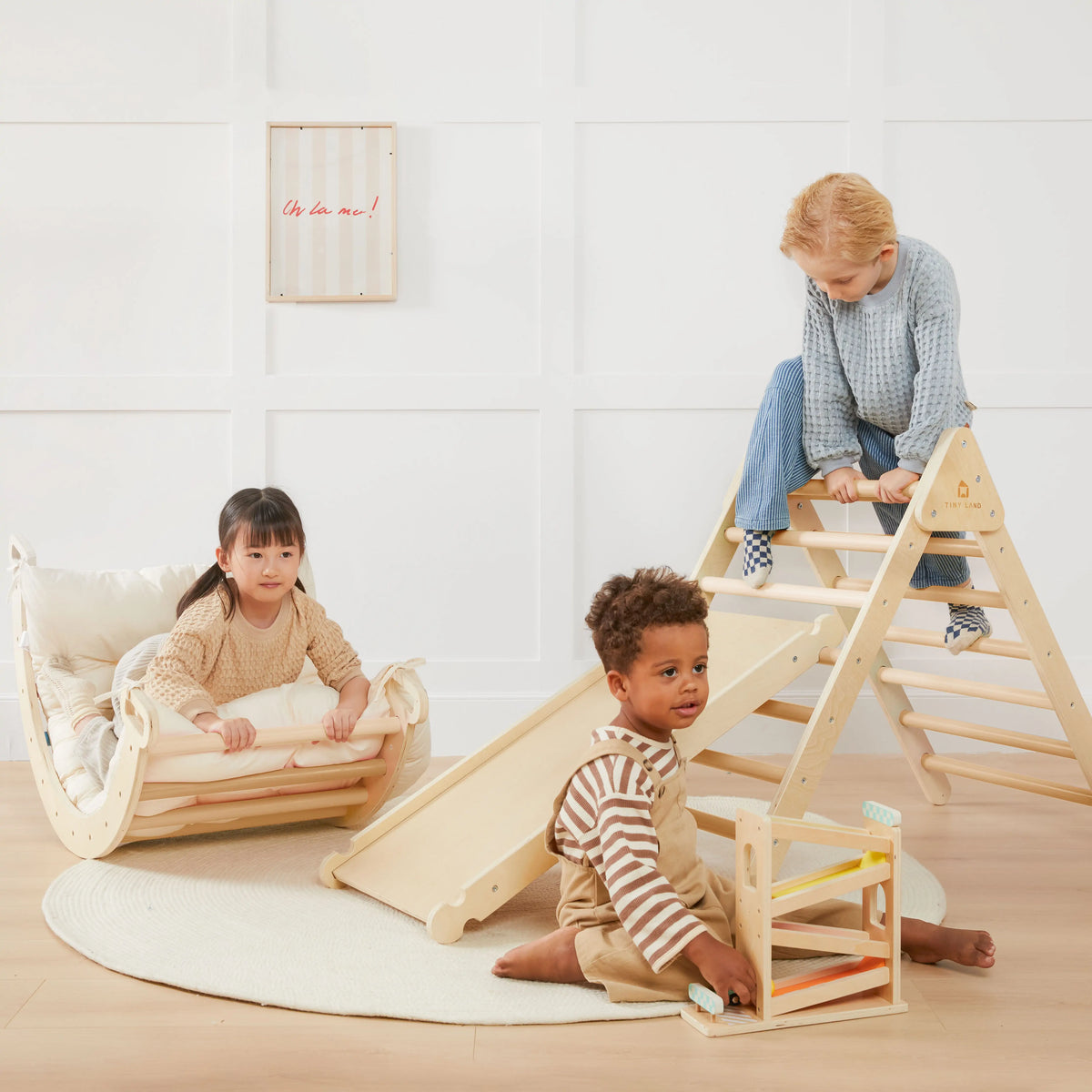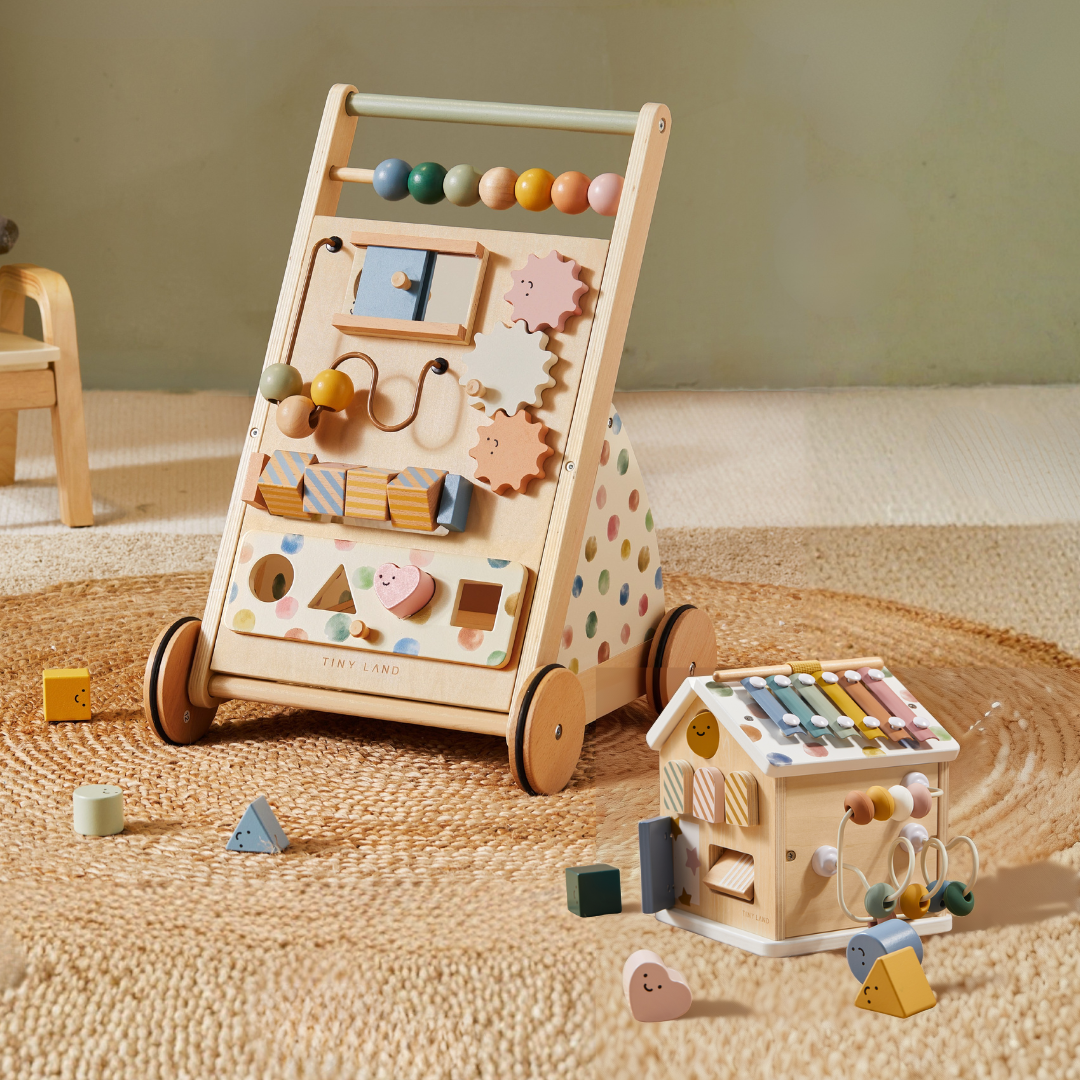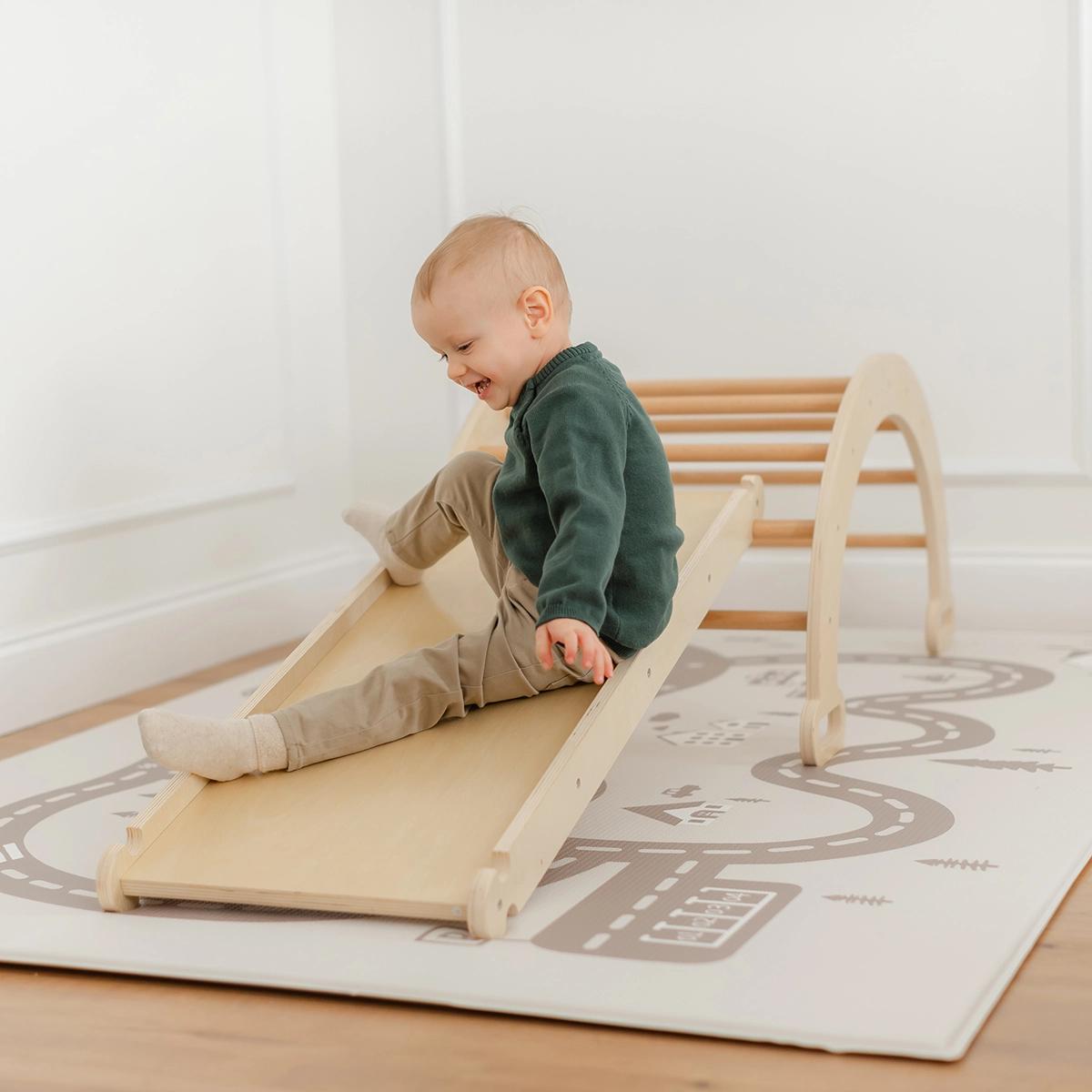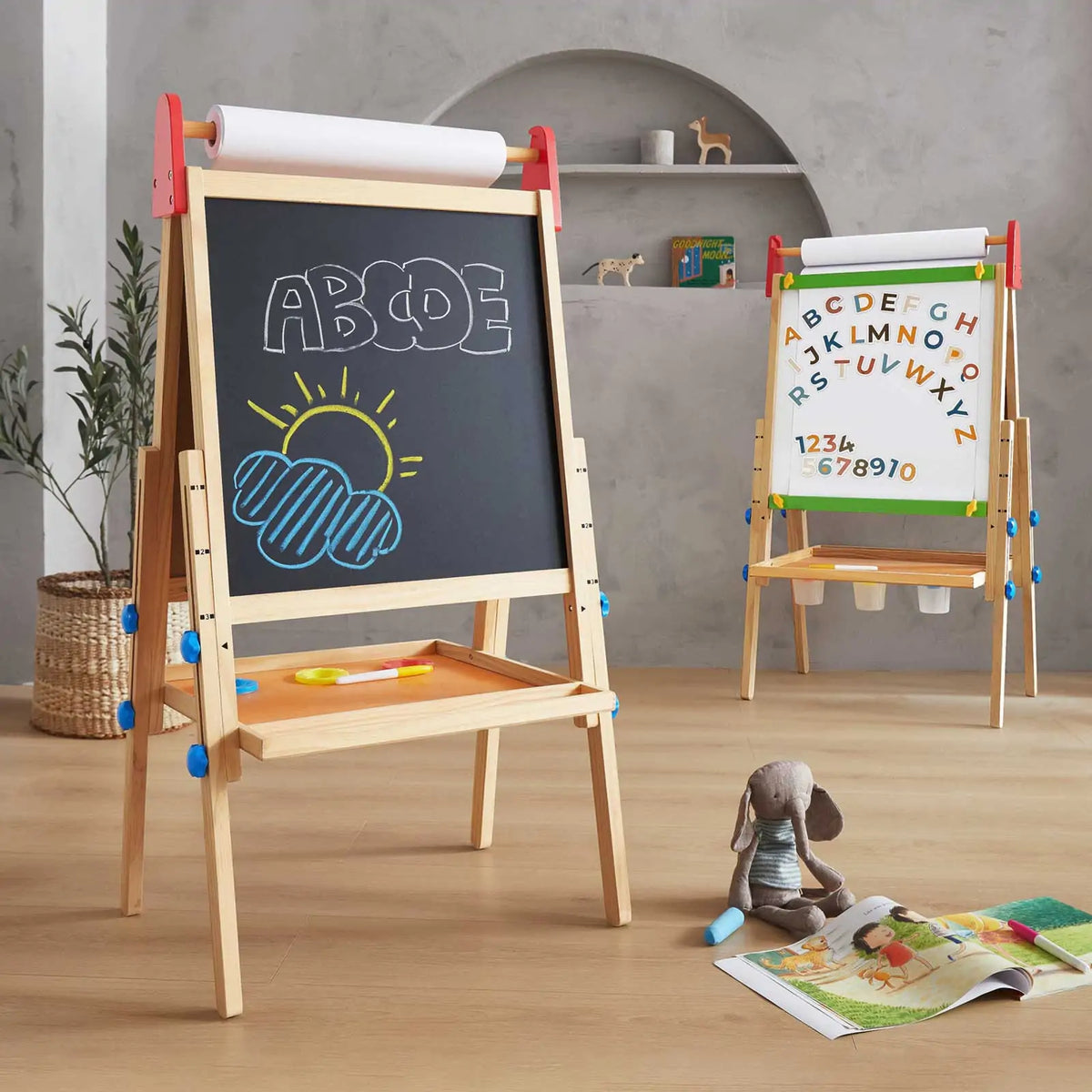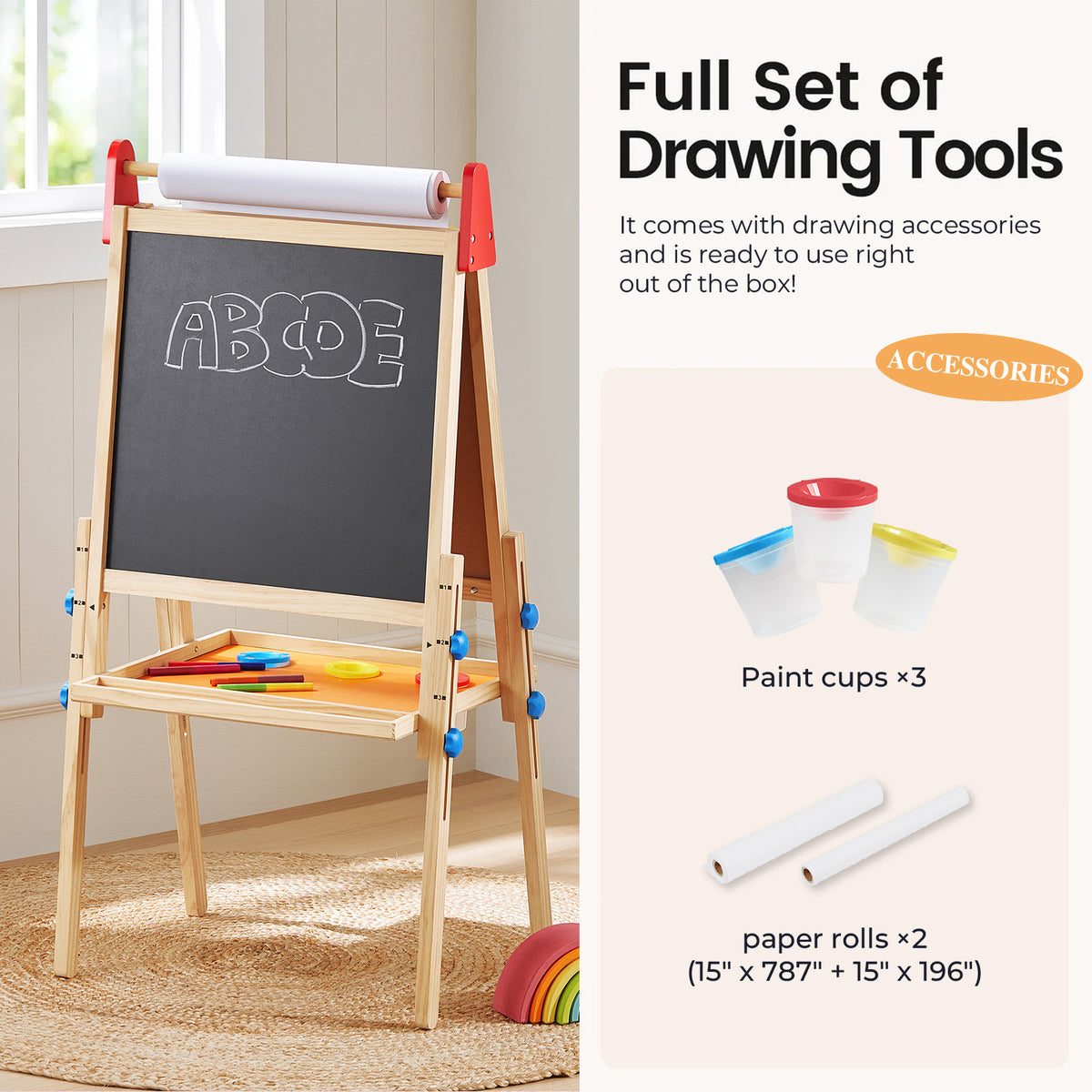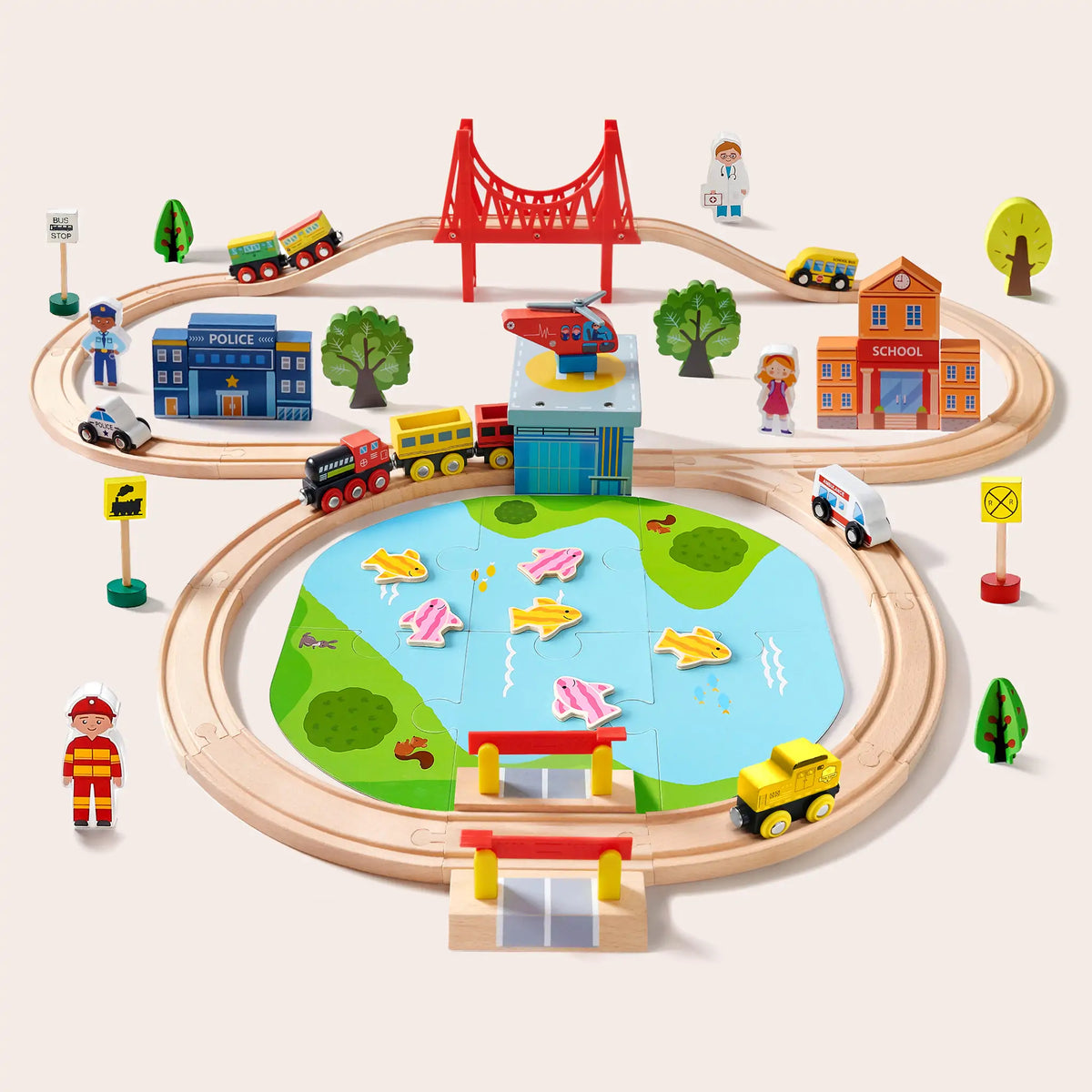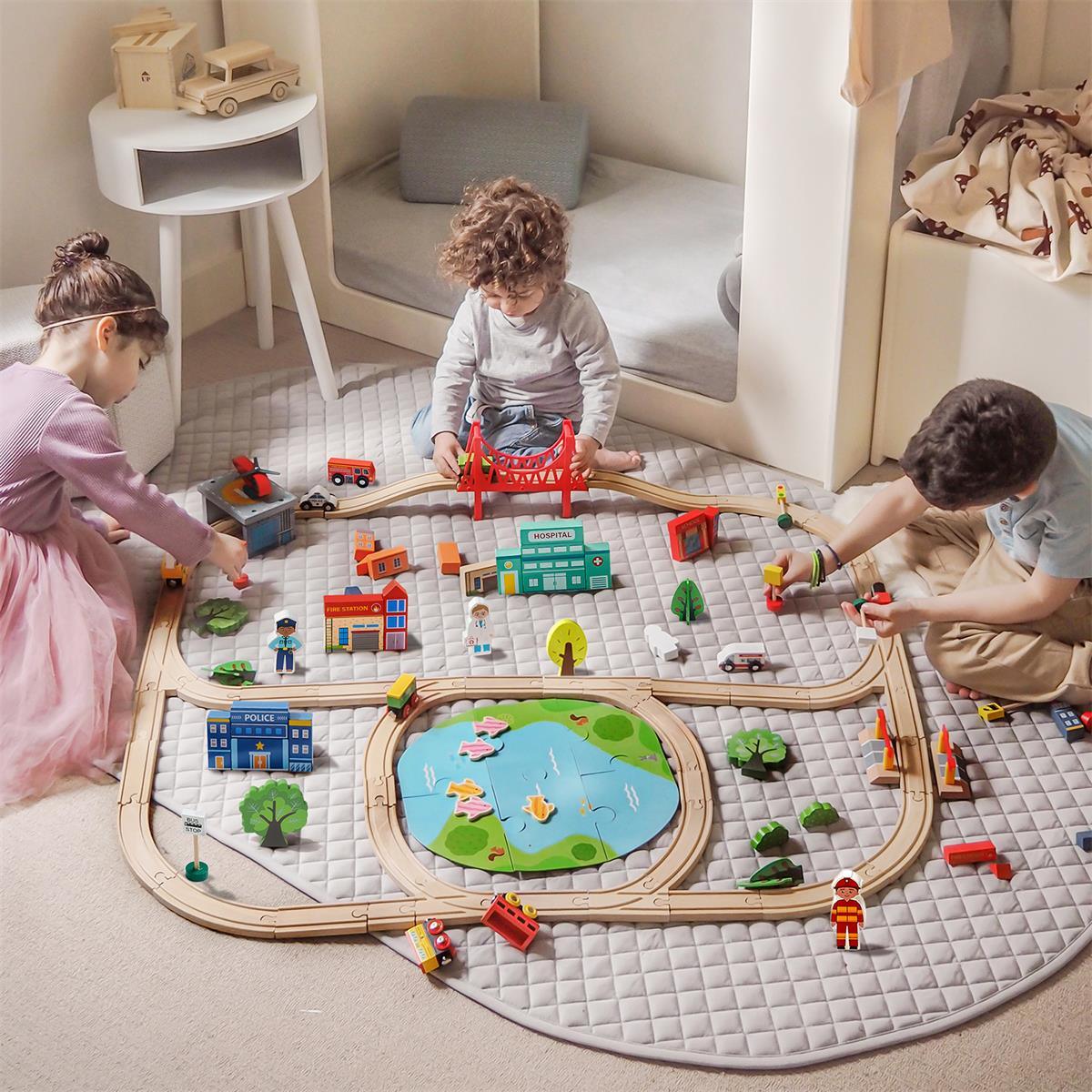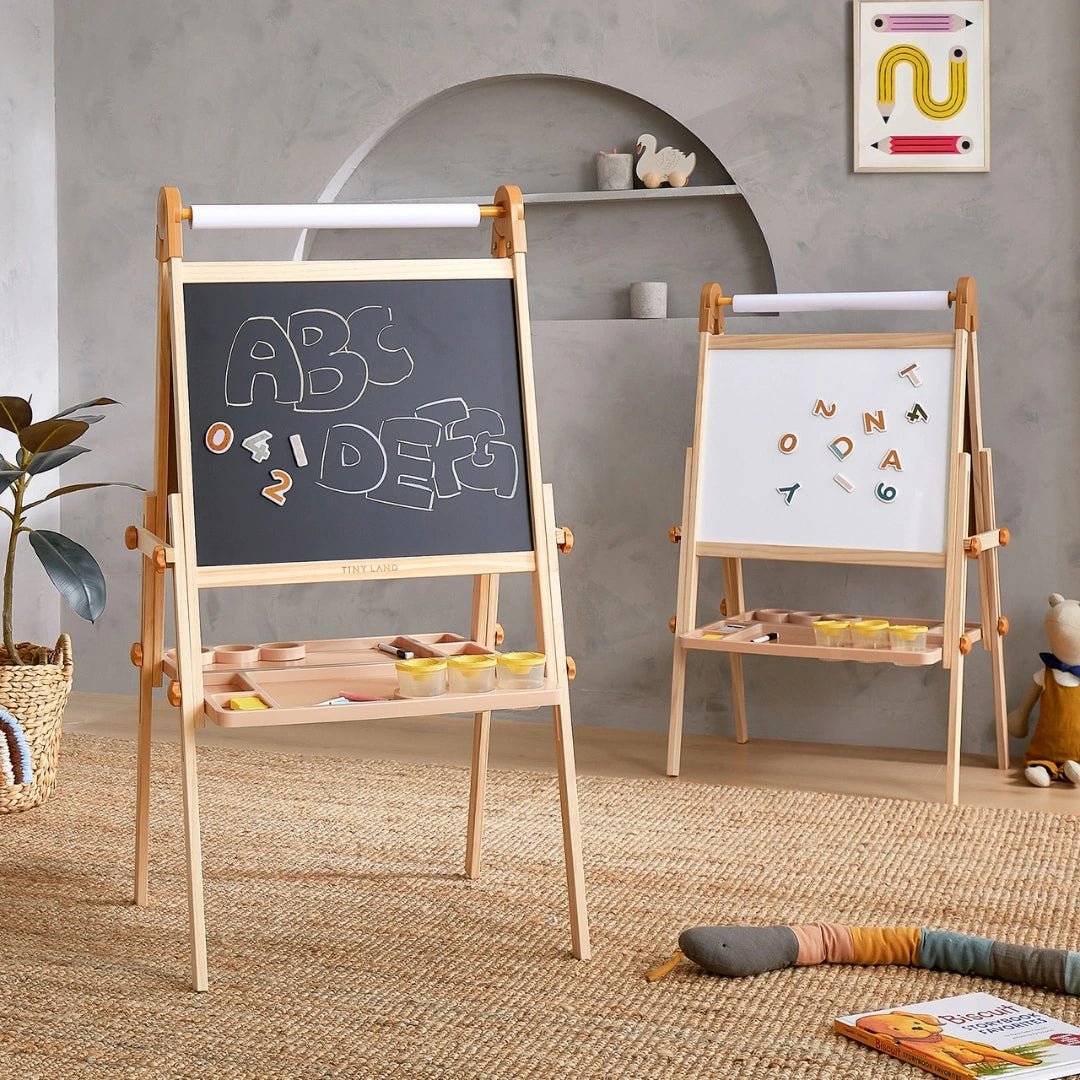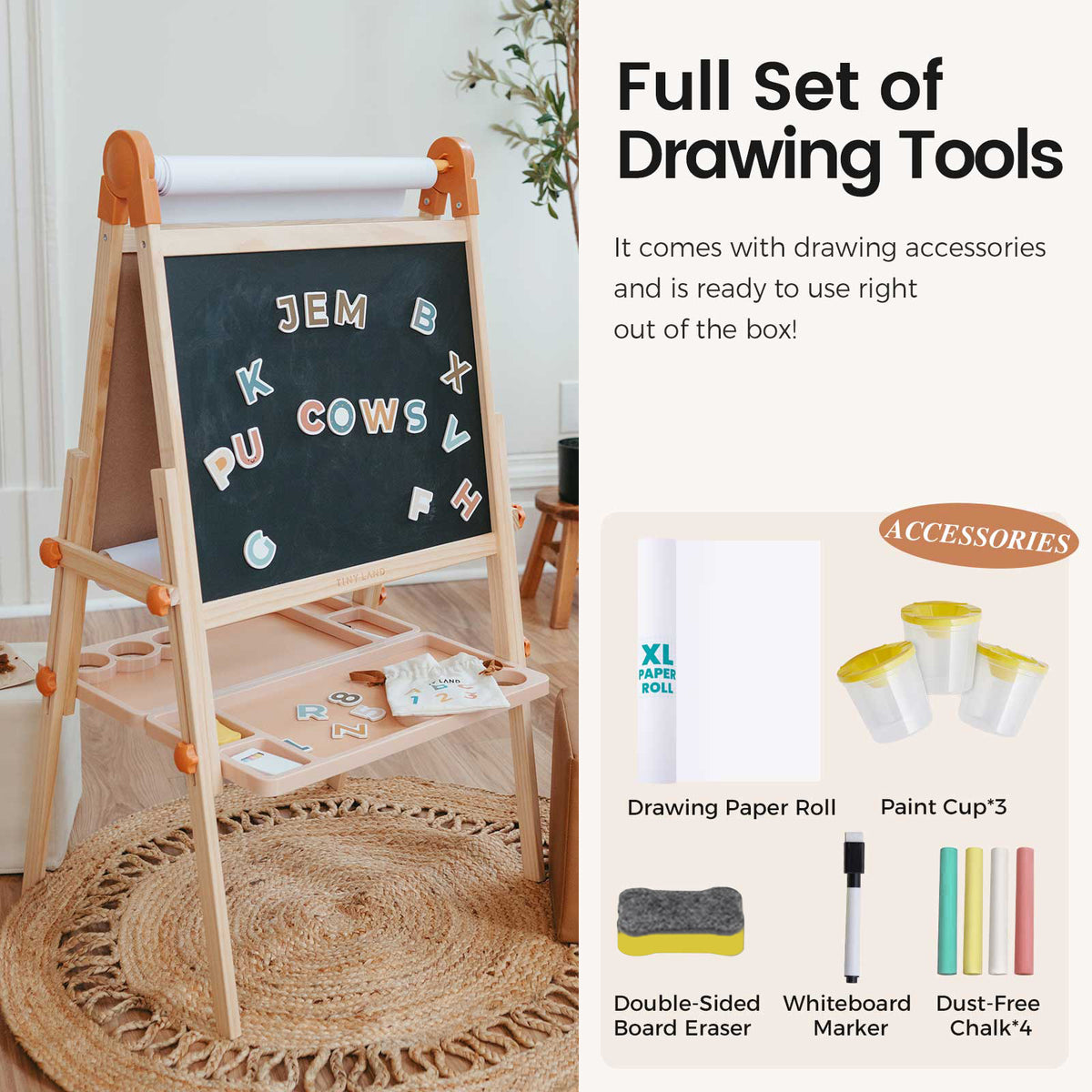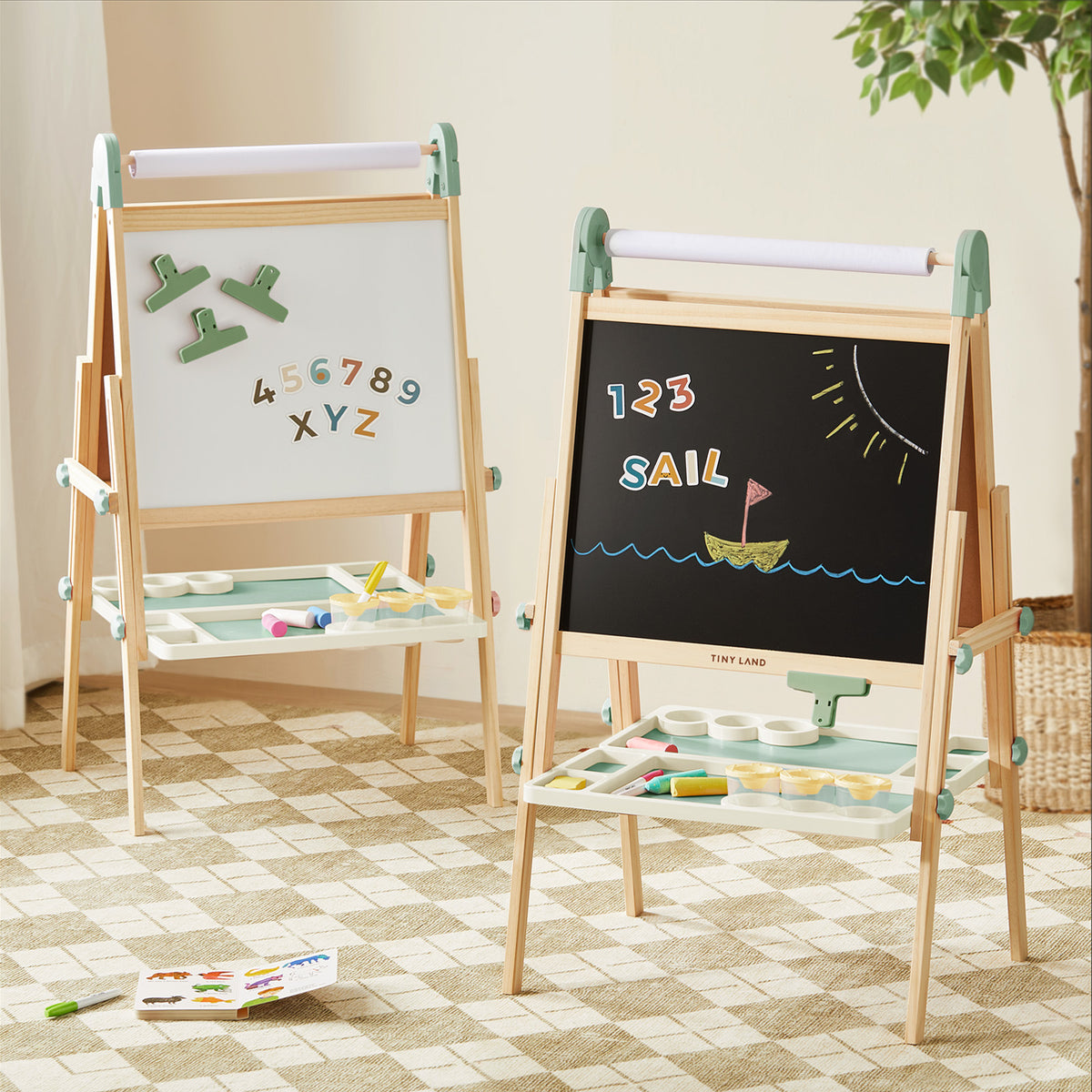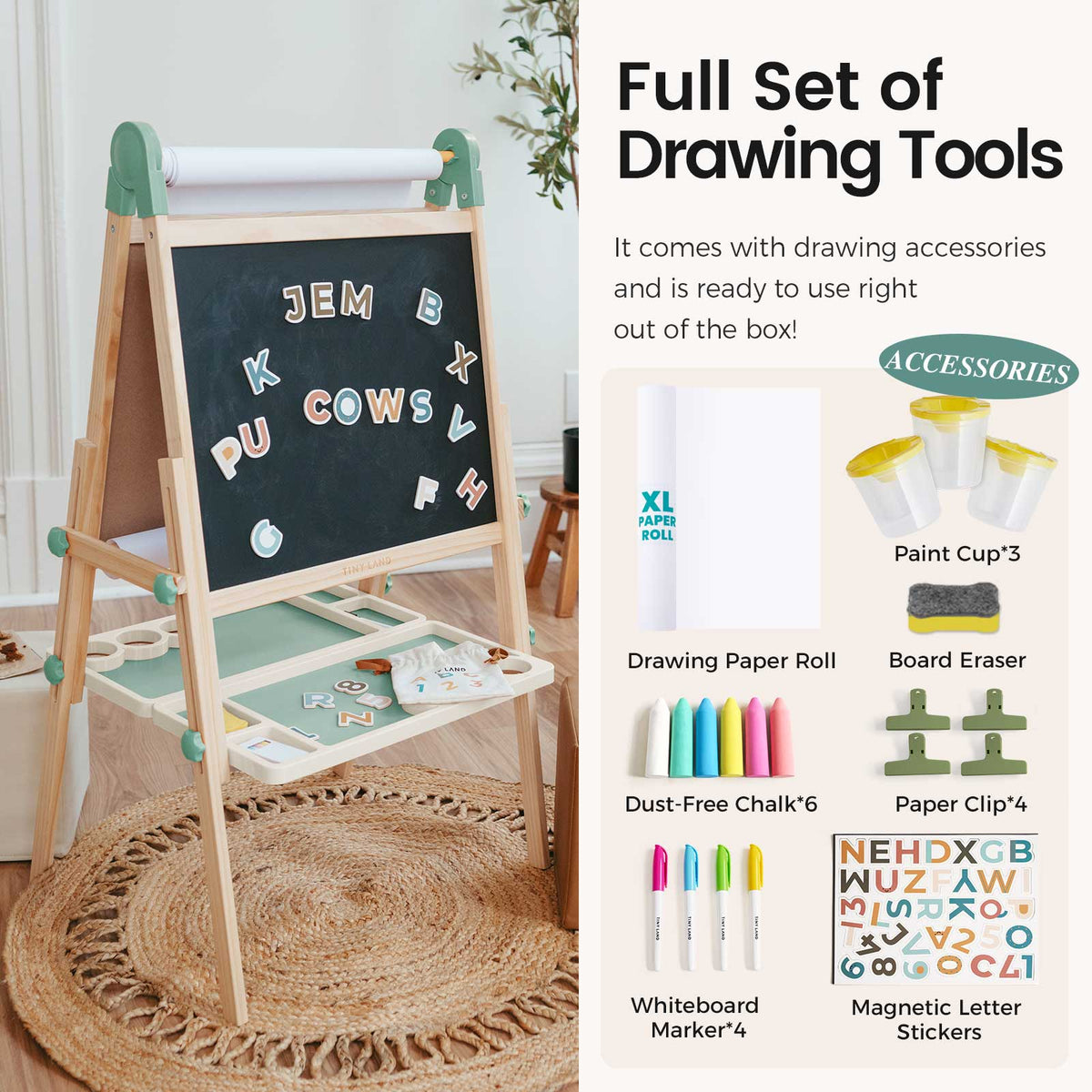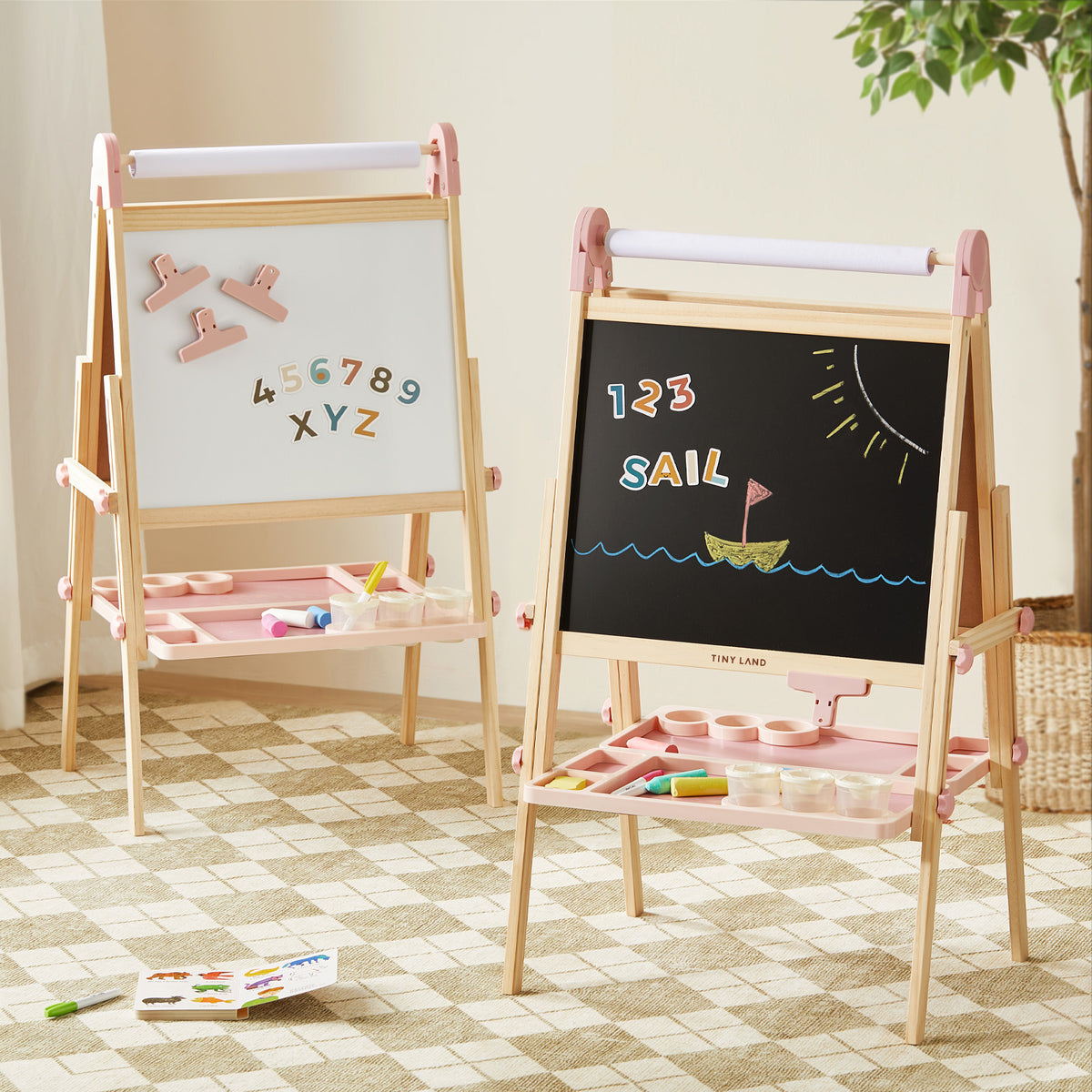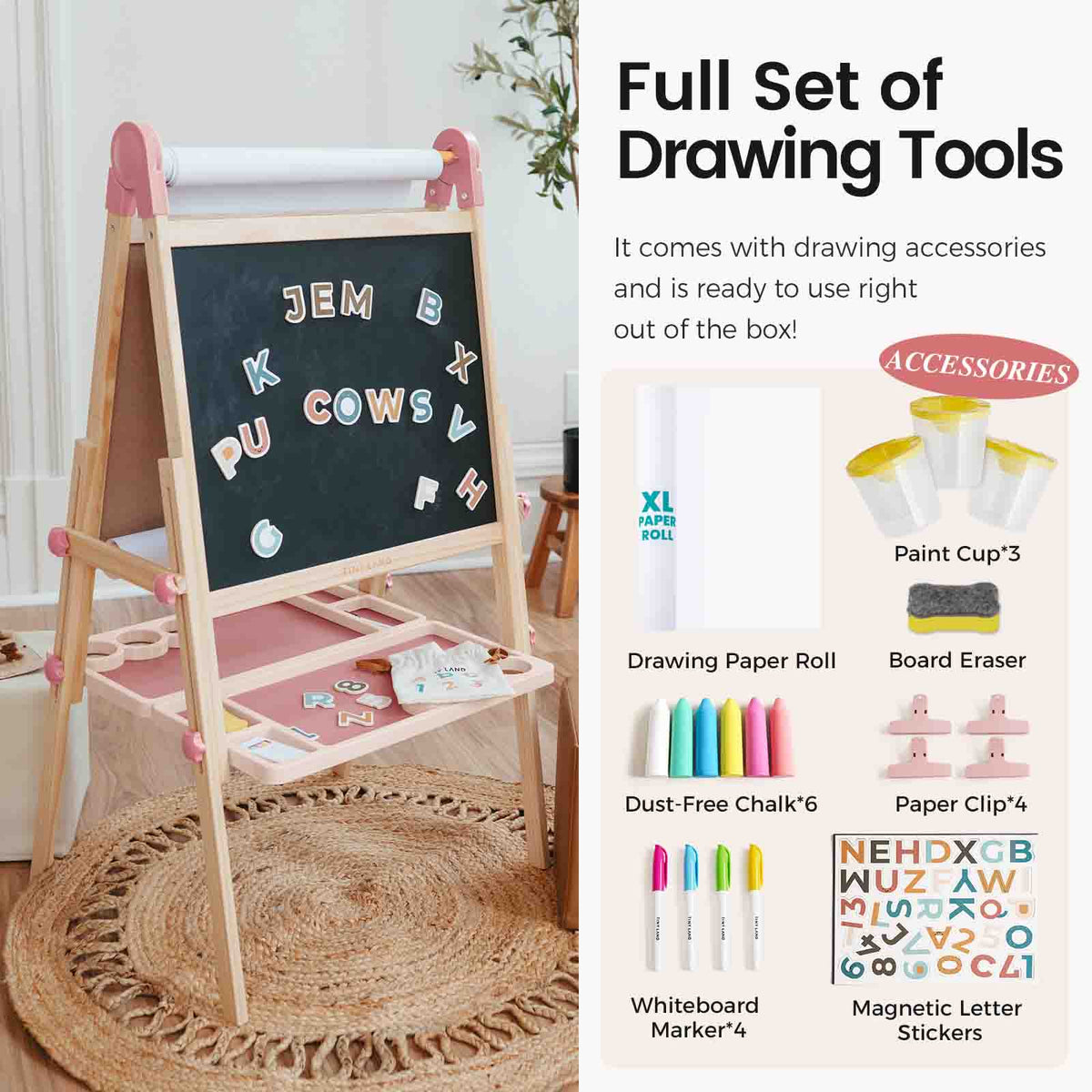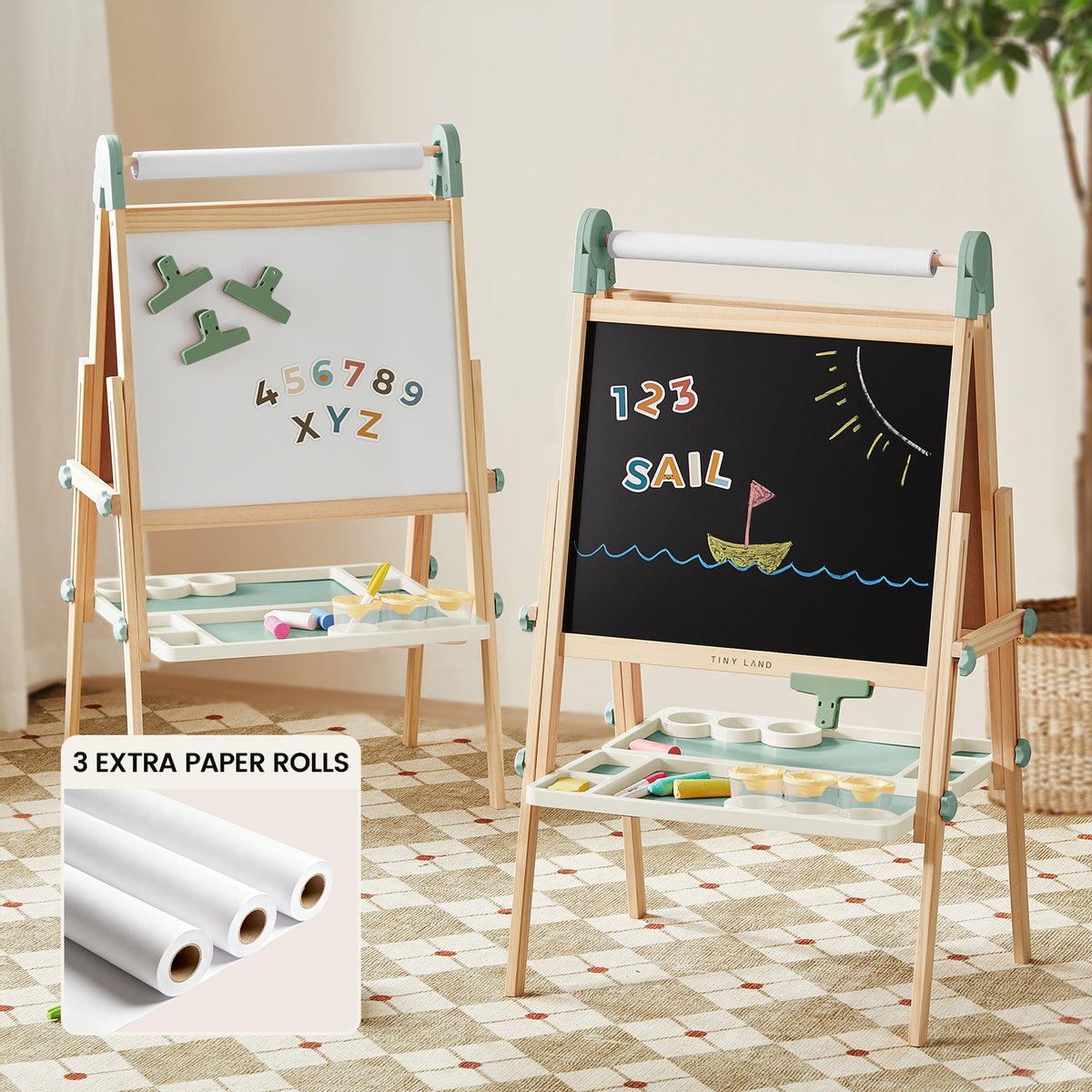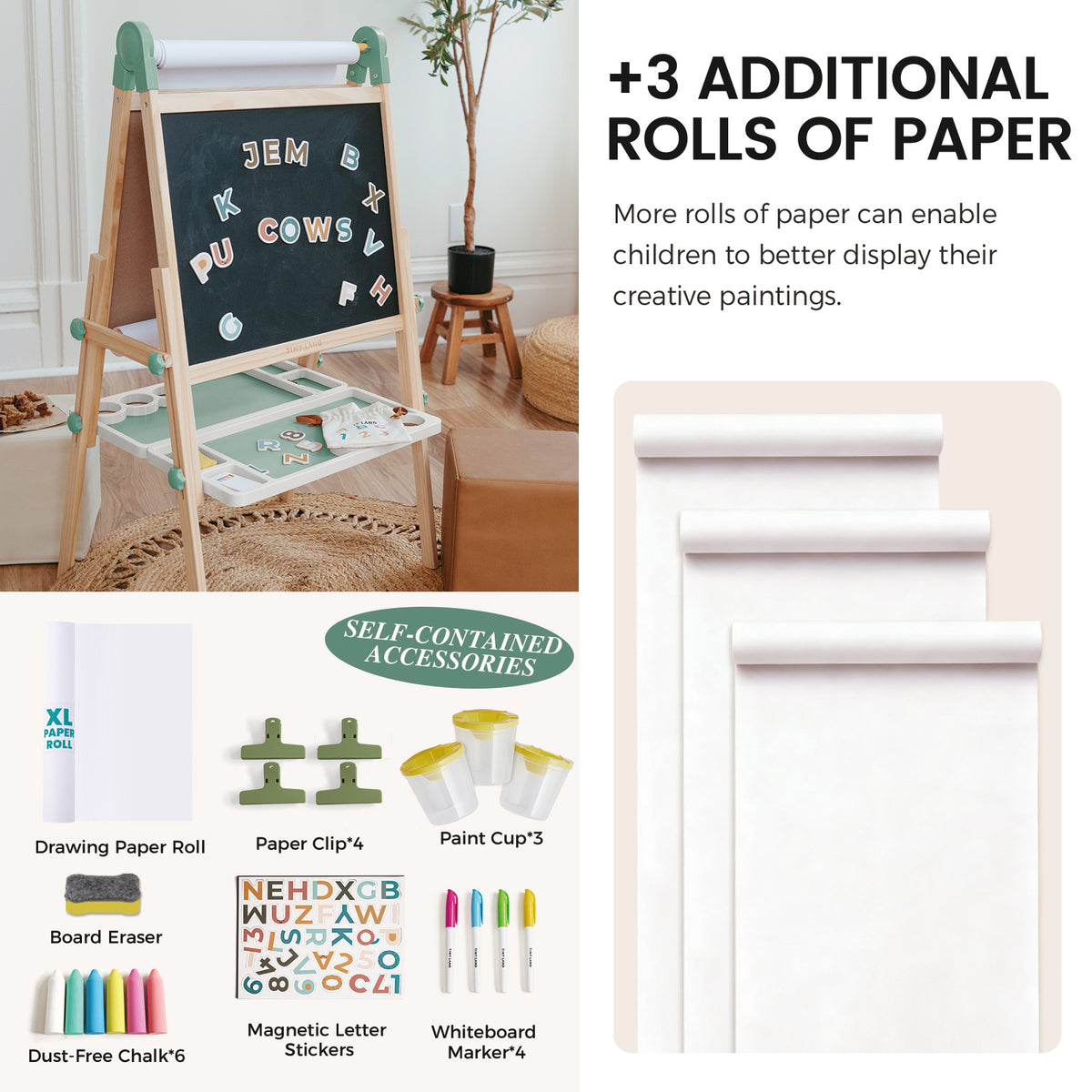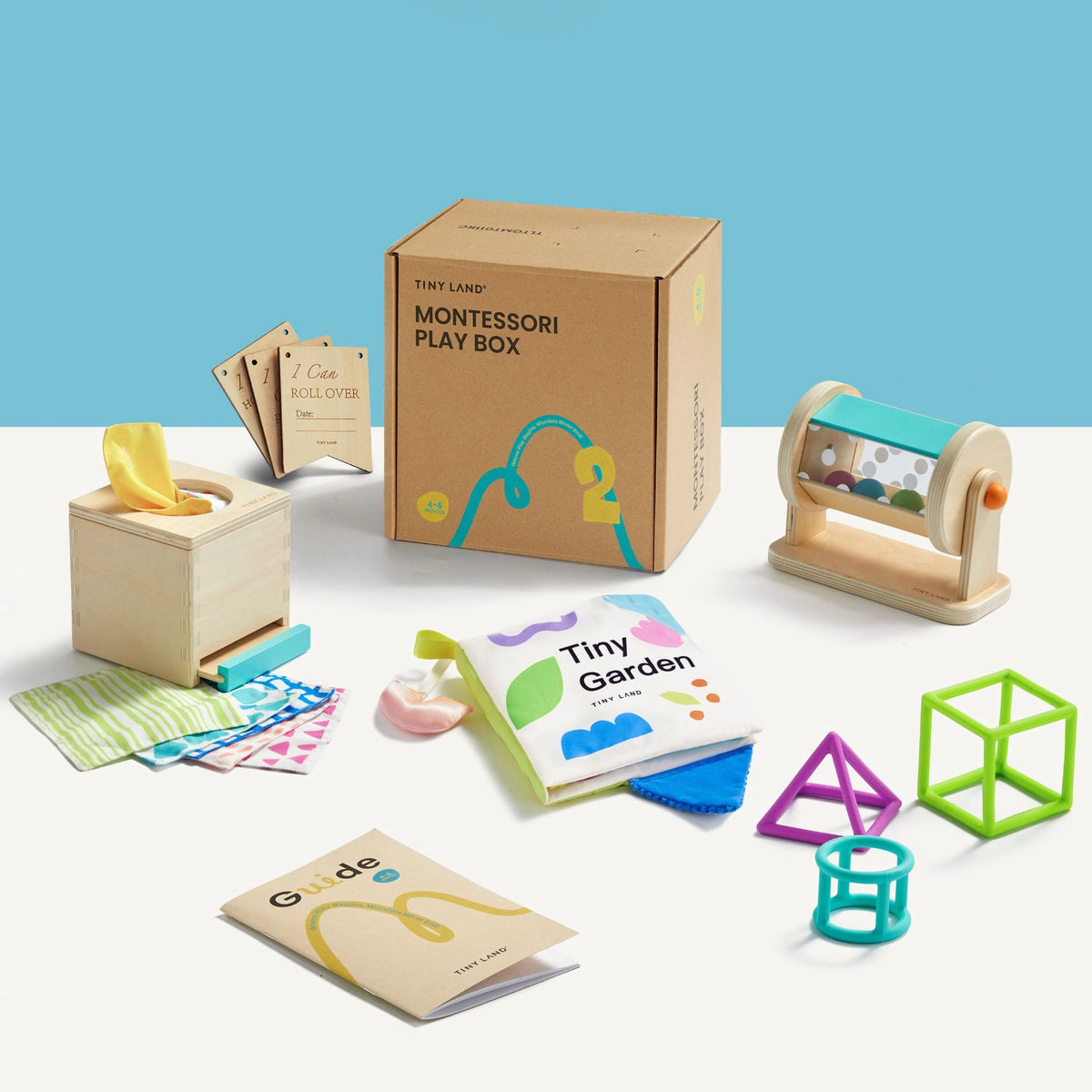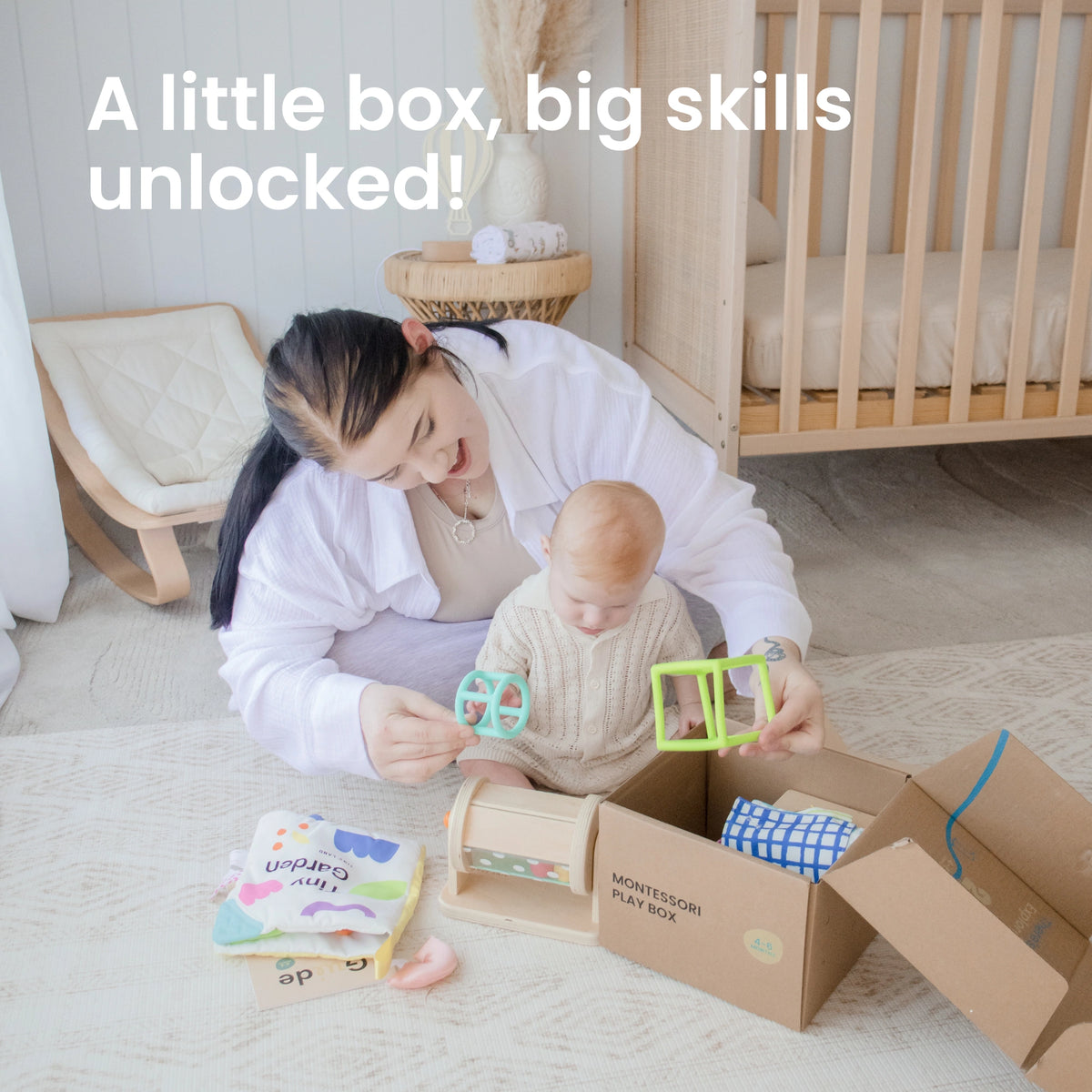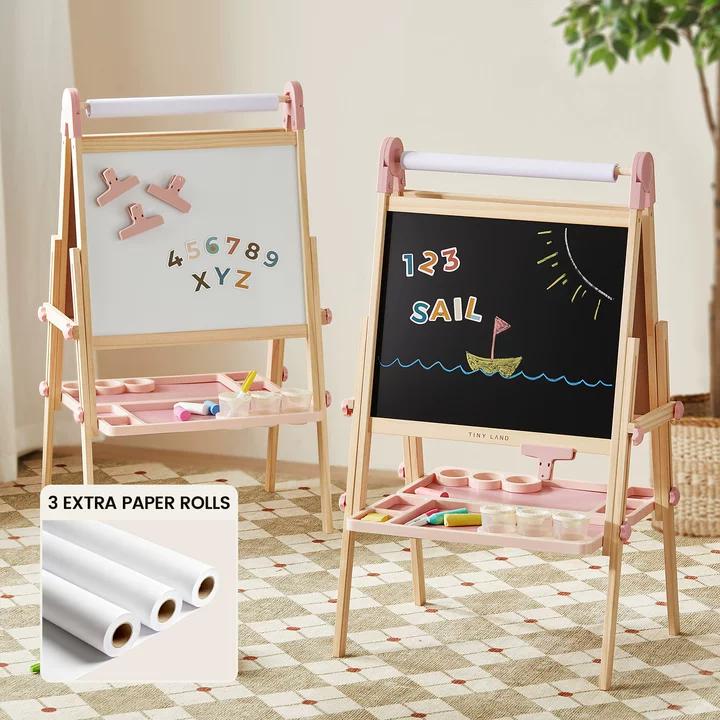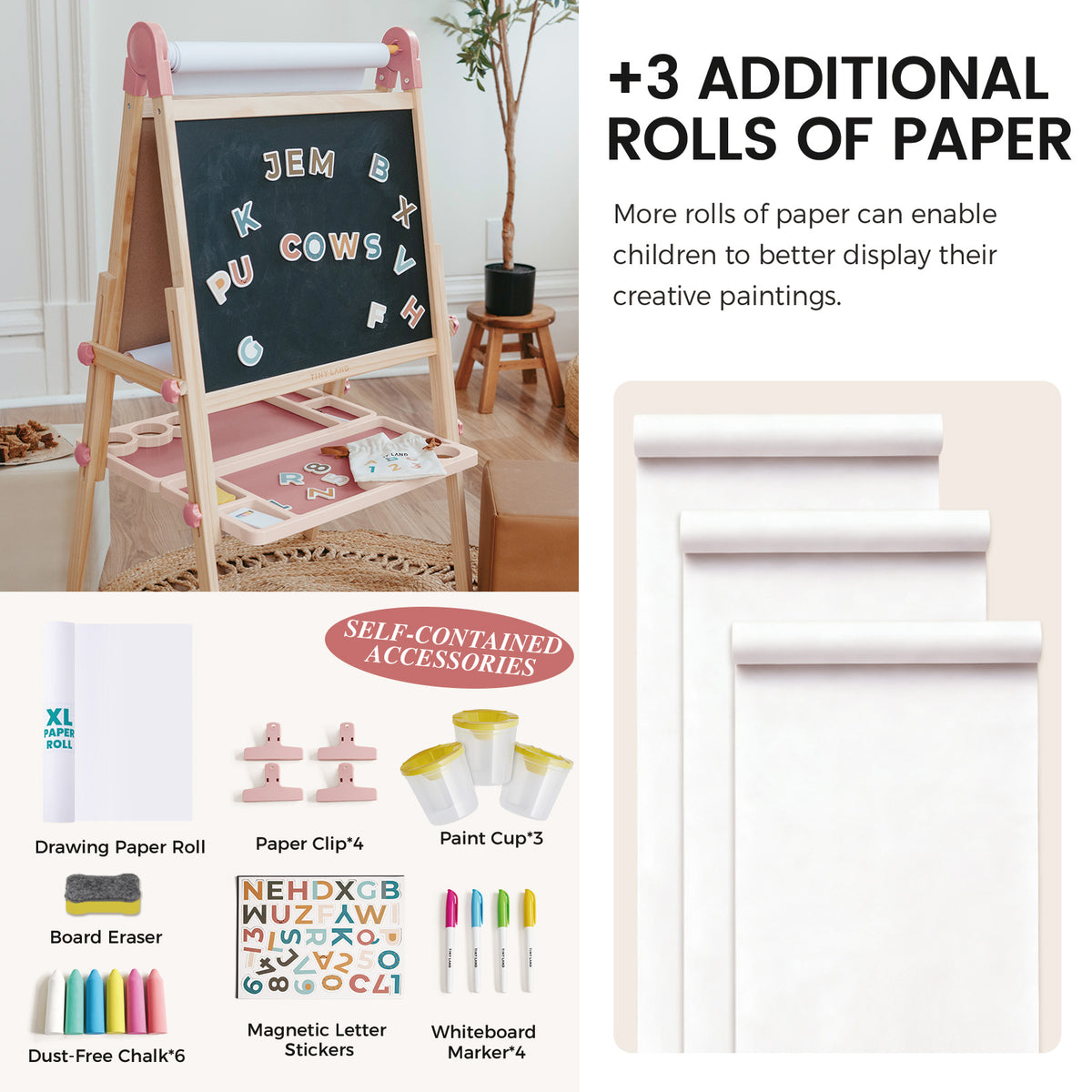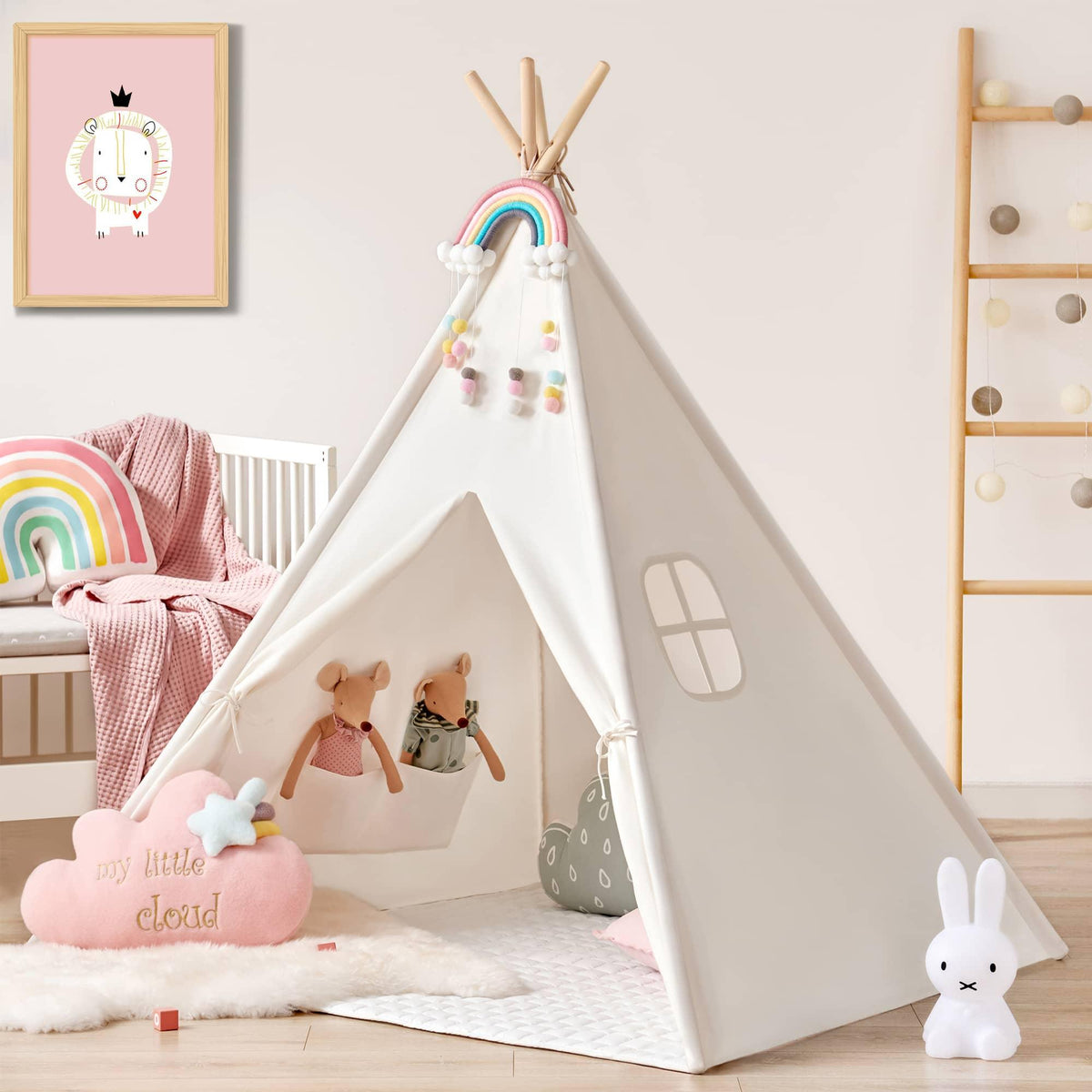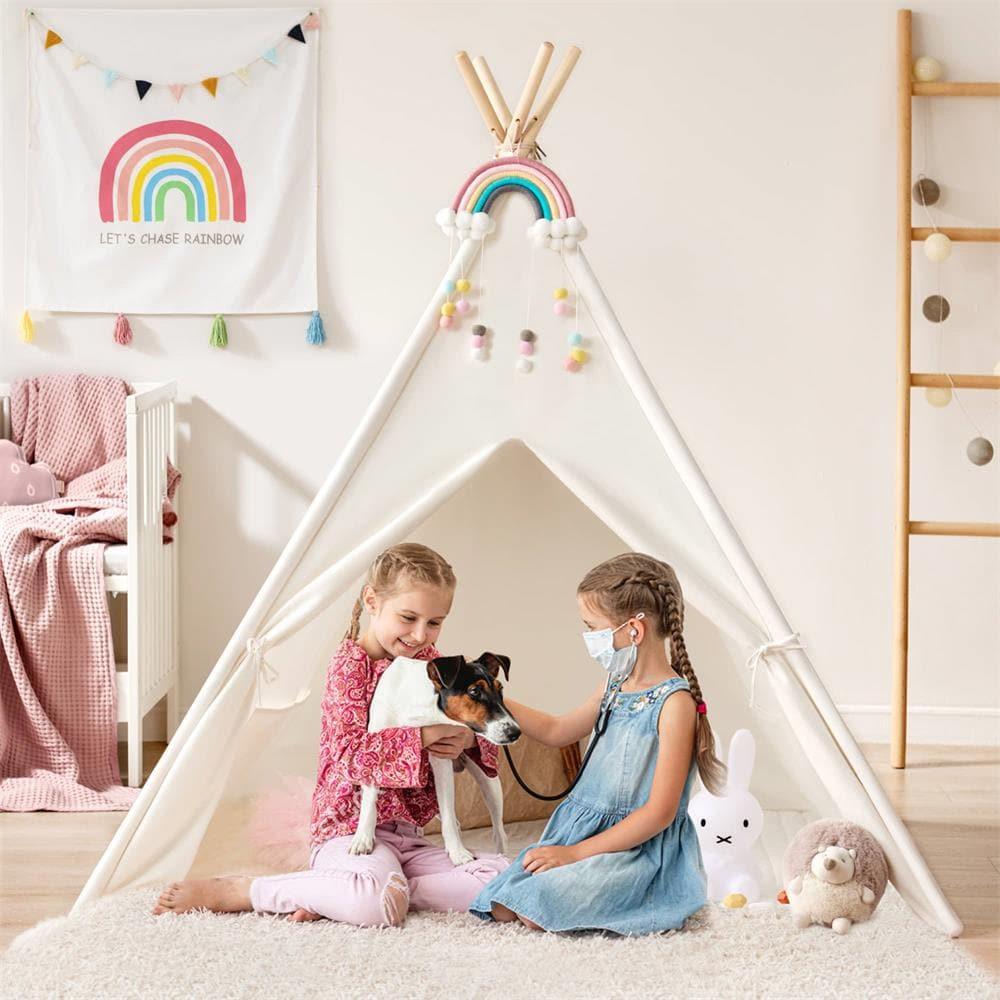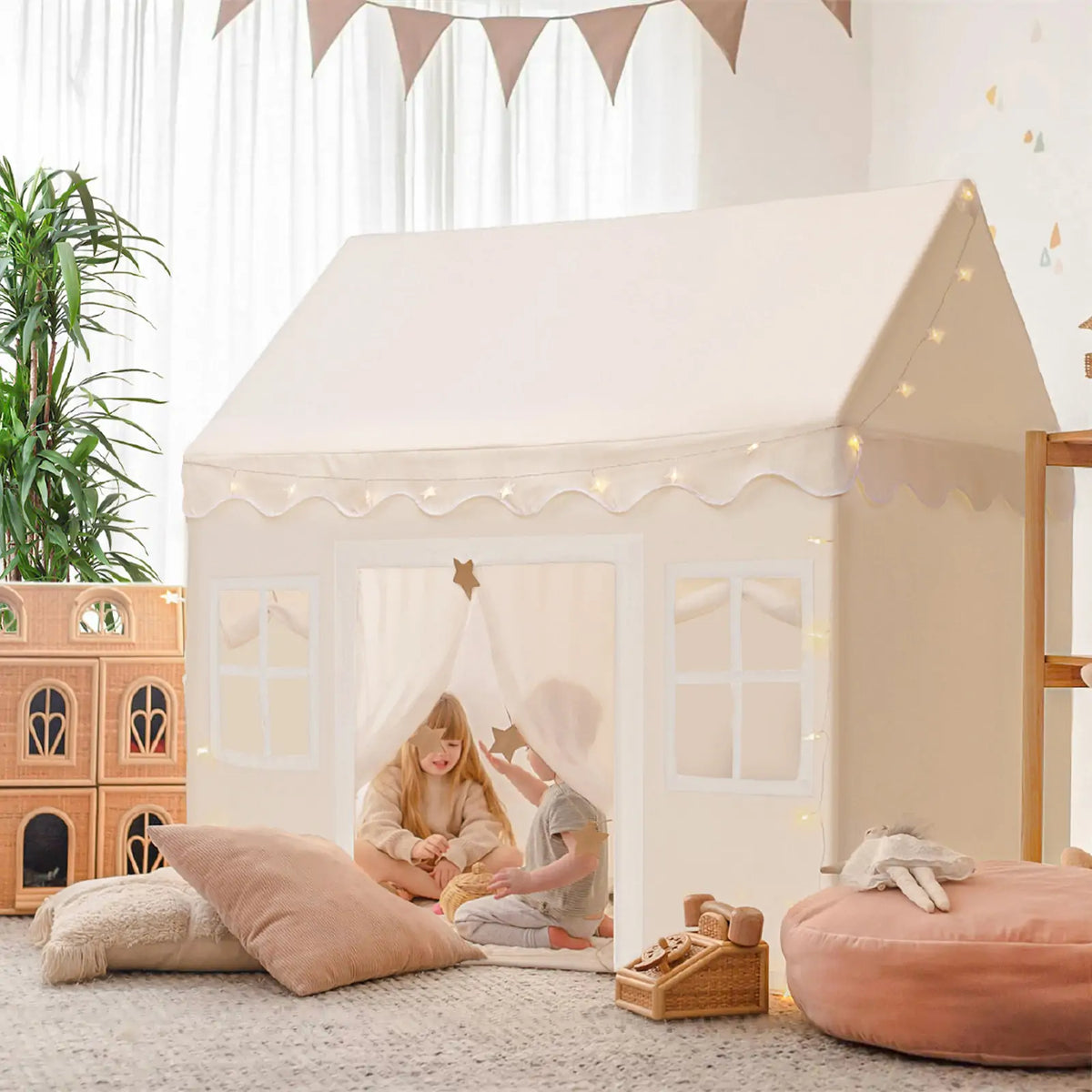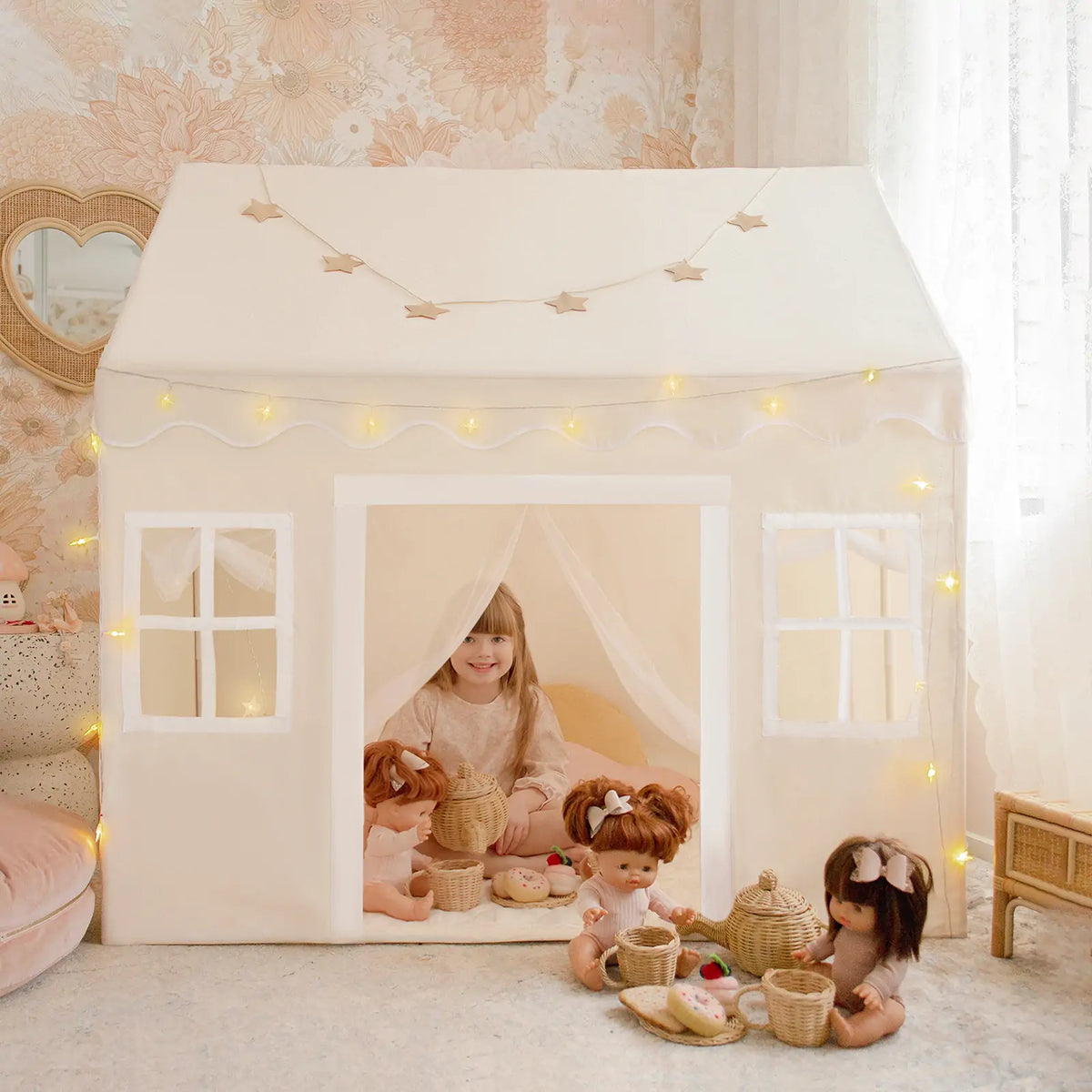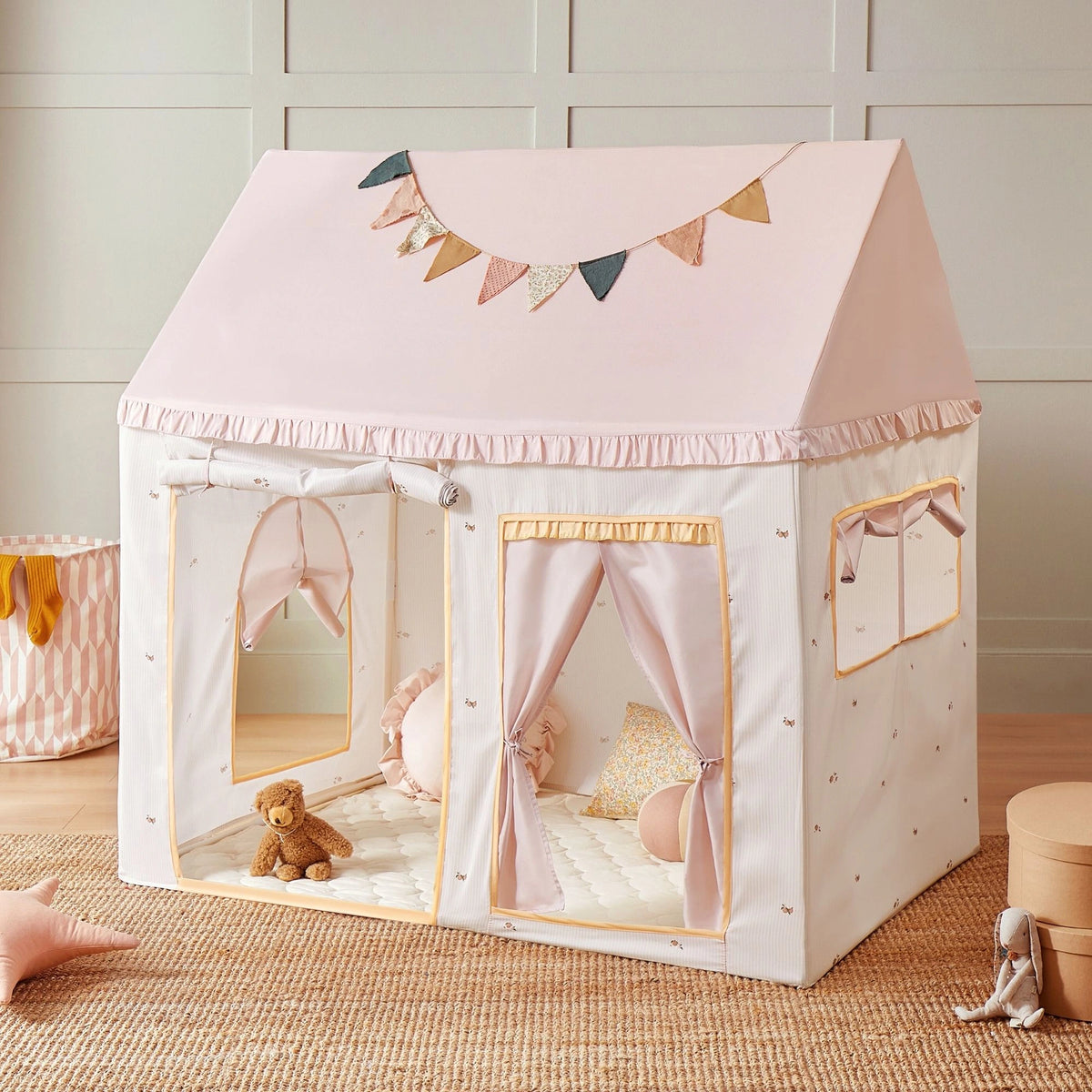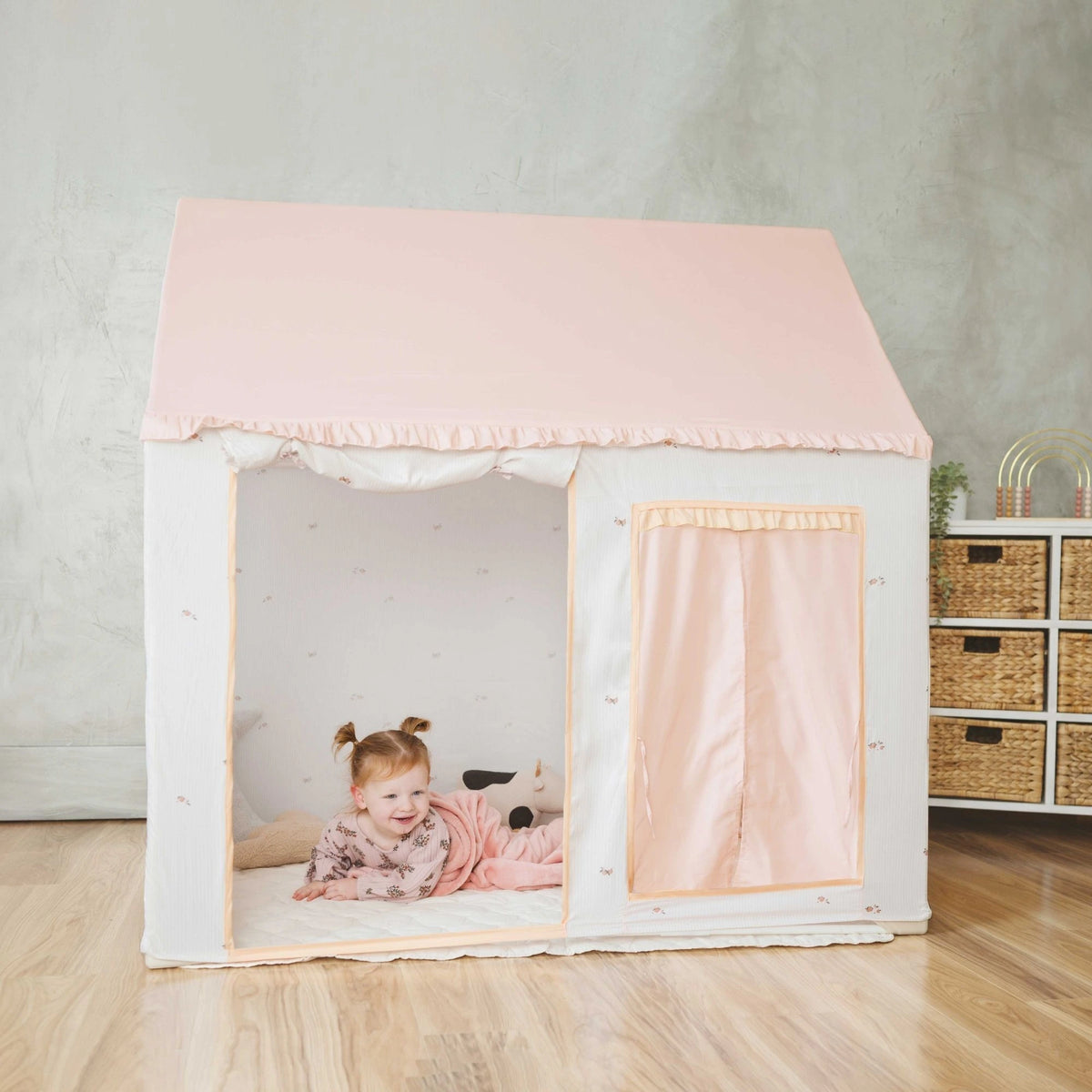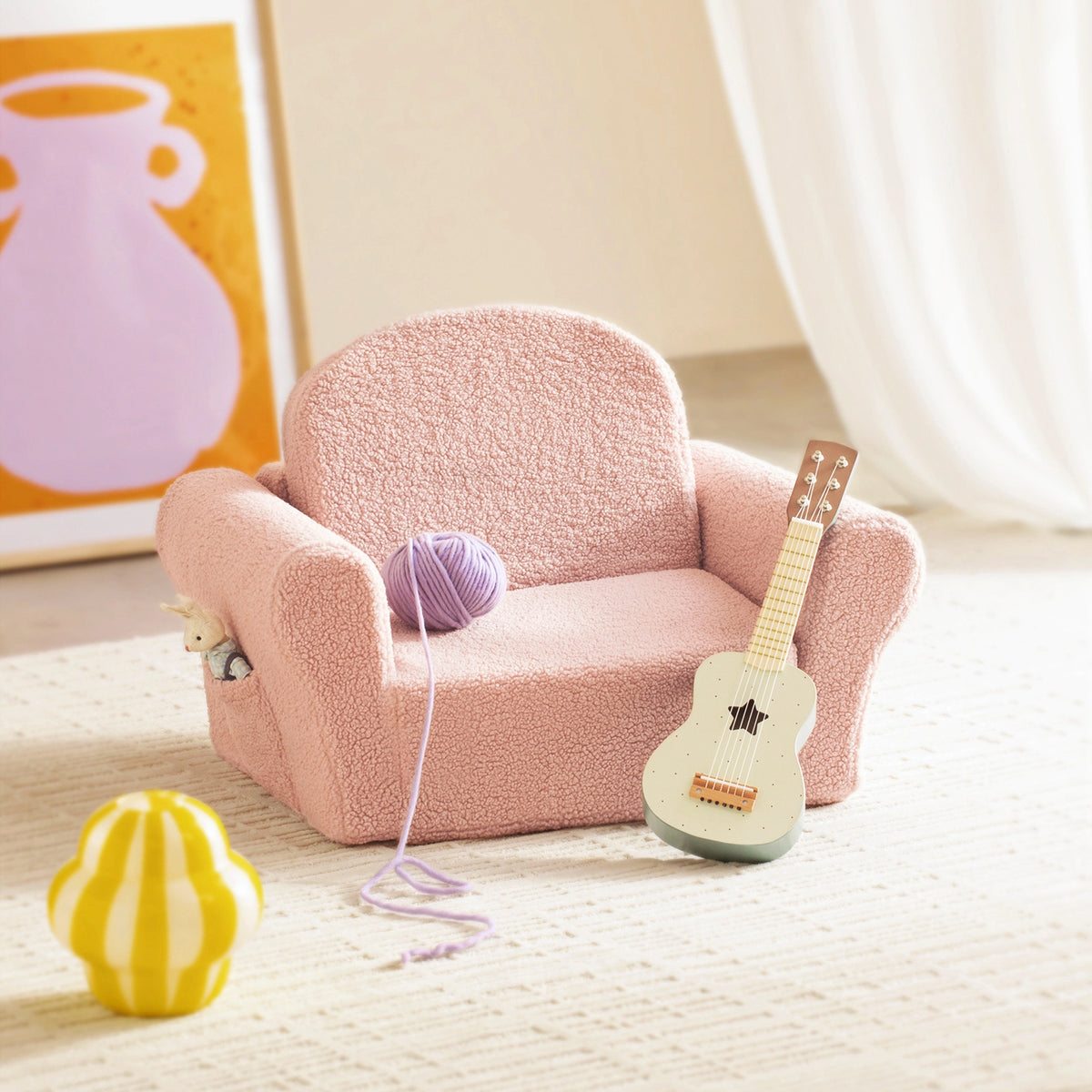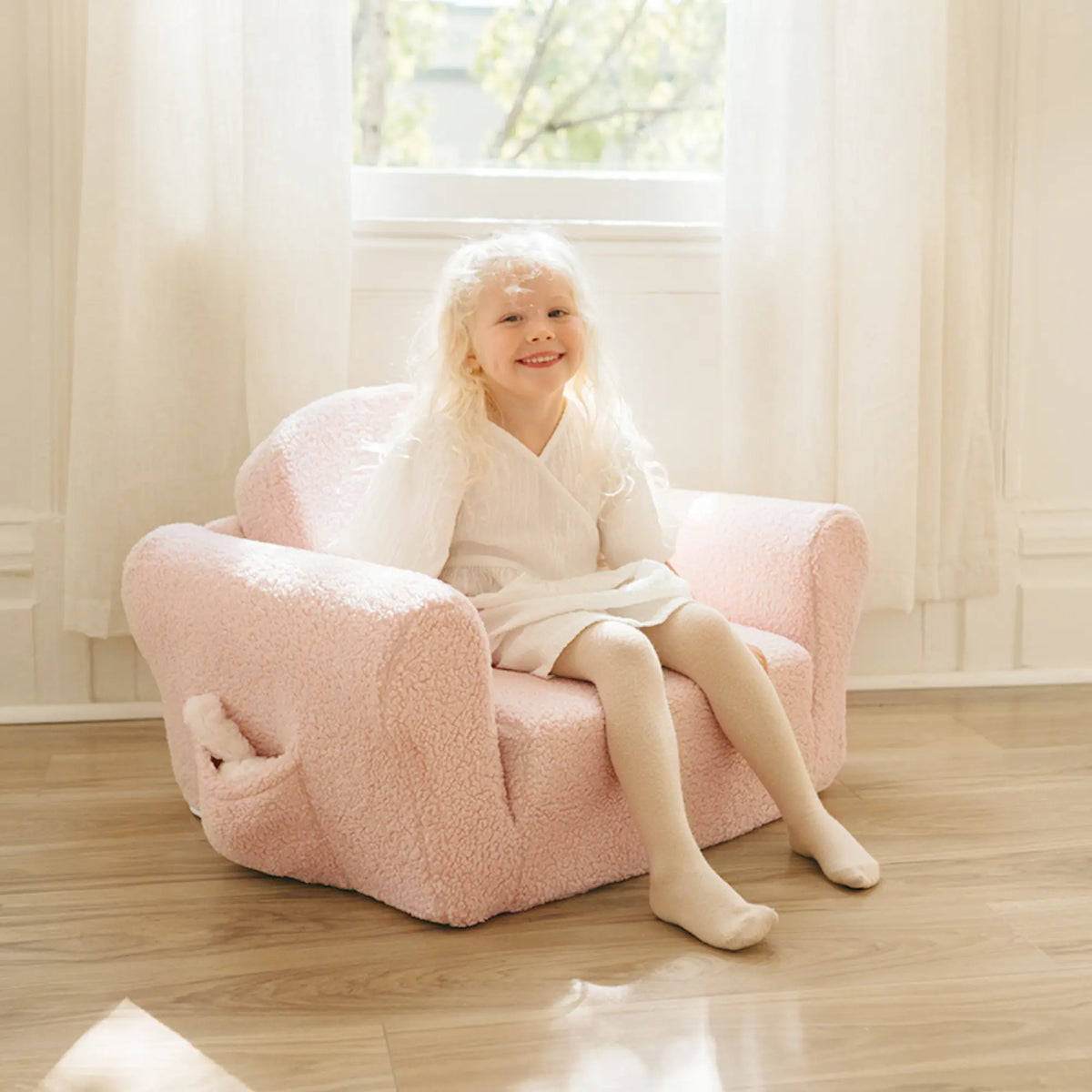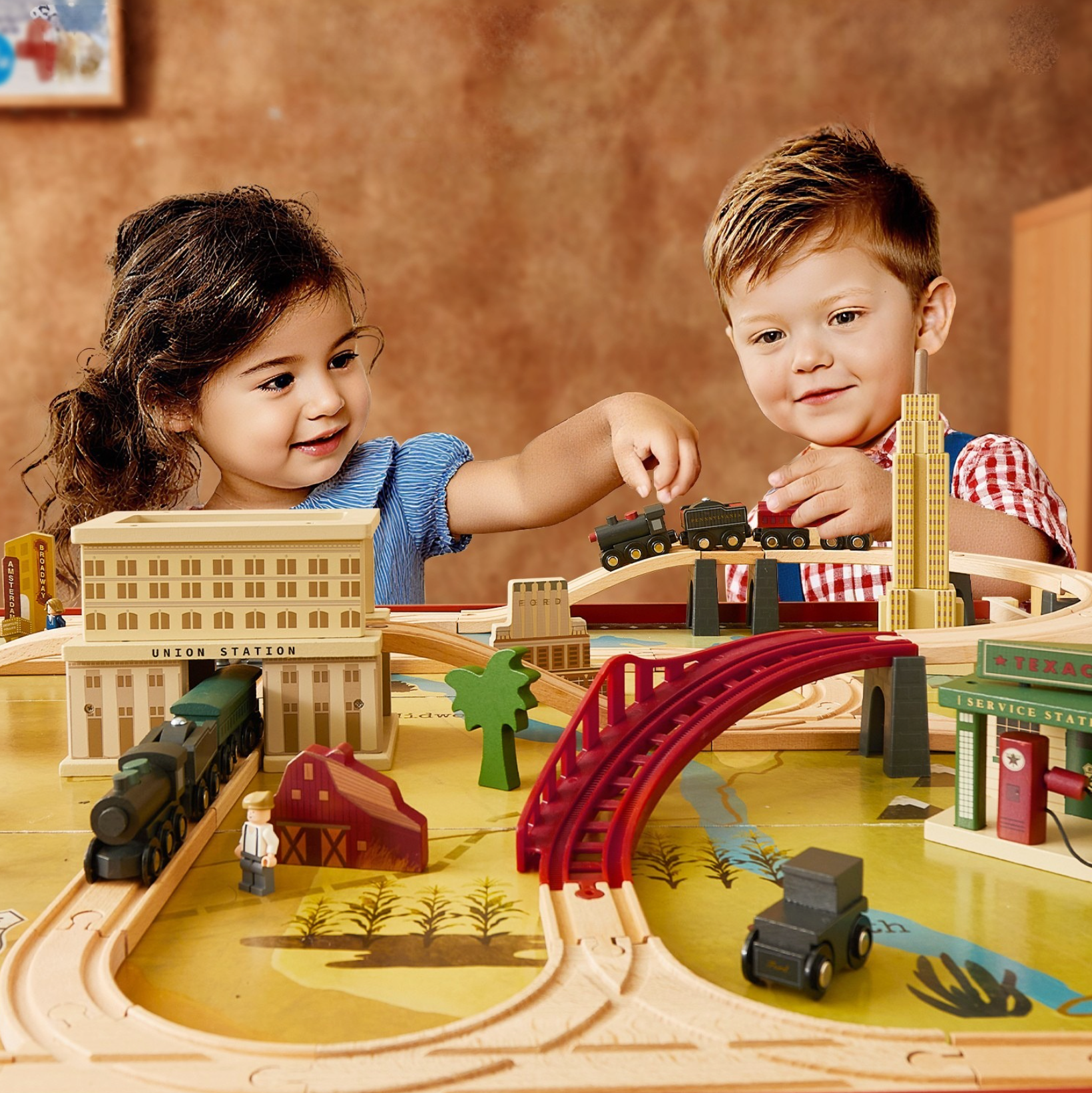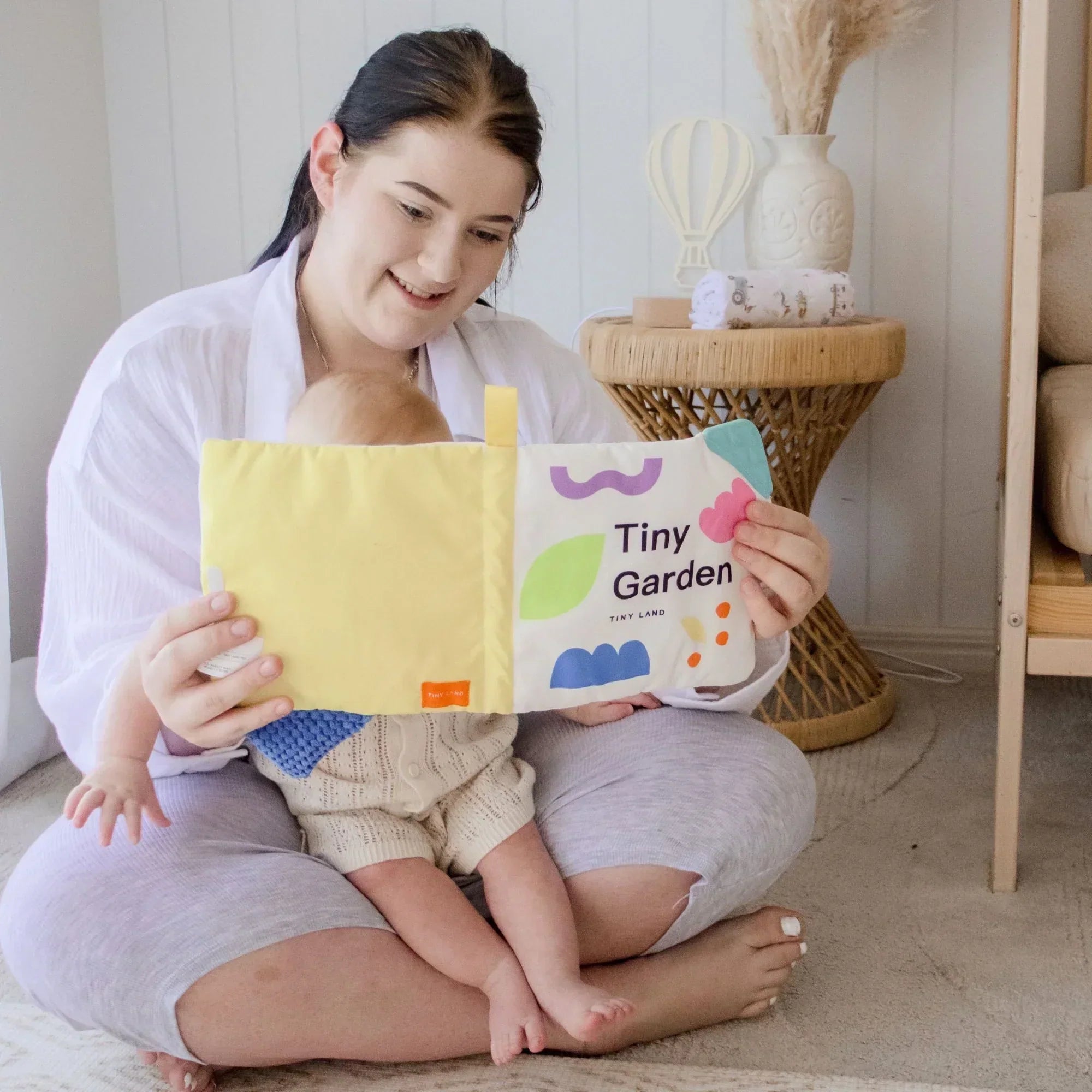Sunlight streams into a little play kitchen, where a child carefully arranges colorful food on tiny plates. Small hands flip utensils, eyes full of focus and curiosity. This isn’t just play—it’s a mini-classroom where children learn attention, emotional regulation, and self-control. At Tiny Land, we believe every moment of toy education is an opportunity for growth. Using the “Play, Pause, Repeat” method, children gradually build a sense of order and confidence while having fun. The play kitchen experience lets kids explore their creativity and engage in imaginative play and role play.

Toy Education: Play Kitchens as a Natural Training Ground for Order
Kitchen activities have clear steps: preparing ingredients, washing at the sink, plating, and “cooking.” Toy kitchens condense these processes into a safe, child-sized environment, allowing kids to practice repeatedly at home.
Children who are easily distracted or need extra guidance—including those with special needs—may skip steps, repeat actions, or get frustrated by small setbacks. These behaviors are normal. In a safe, controlled space, children can freely explore while learning to follow steps, maintain order, and manage emotions. Imaginative play and role play naturally emerge as they pretend to be a little chef or host a whole family dinner. This structured play fosters social skills and builds essential life skills.

Play, Pause, Repeat: The Toy Kitchen Method
-
Play: Children freely explore food ingredients, tools, and movements. Every flip, stir, and arrangement strengthens fine motor skills and essential skills.
-
Pause: Encourage brief pauses to observe the next step or take a breath, helping children practice self-control.
-
Repeat: Repeating tasks—stirring, flipping, plating—builds familiarity and confidence, even if the order isn’t perfect.
Through this cycle, children experience structured freedom, boosting focus, patience, and emotional regulation, all while having fun. The luxury play kitchen experience allows them to discover, create, and practice social skills with friends or family.
Toy Kitchen: Supporting Emotional Regulation and Confidence
Toy kitchens do more than develop motor skills—they help children manage emotions. For children with special needs, toy kitchens provide a safe, predictable environment to practice the Play, Pause, Repeat cycle:
-
Enhance Order: Repetition helps children build a sense of order through familiar steps.
-
Develop Emotional Regulation: Pausing and repeating tasks teaches kids how to handle frustration and regulate emotions.
-
The Kitchen is the Most Orderly Training Ground: Clear steps and a safe space allow children to practice focus and self-control through play.

Practical outcomes include:
-
Handling setbacks: When ingredients spill or tasks fail, parents can guide children to express feelings and try again.
-
Building autonomy: Letting children decide what to cook or in which order enhances control and a sense of safety.
-
Feeling accomplished: Completing a “dish” gives children pride, reinforcing confidence that carries into other areas of life.
This method helps children manage emotions while building self-confidence and security in daily routines. Durable, child-friendly furniture, cabinets, stove, and sink features support repeated practice.

Parent-Friendly Tips for Toy Kitchen Play
-
Give space to explore: Allow children freedom; strict order isn’t necessary.
-
Gentle pause guidance: Encourage breaks when attention drifts or at key steps.
-
Break down tasks: Simplify complex steps to reduce frustration.
-
Visualize progress: Use stickers or small charts to track accomplishments.
-
Set consistent play times: Daily or weekly playtime helps children practice in a familiar environment.
Kitchen Set: Choosing the Right Play Kitchen
Children’s needs vary by age and interests. Combined with Play Food sets, kitchen sets can help children practice organization, sequencing, planning, and self-care. These perfect play kitchens allow little chefs to create, enhancing creativity and imagination while building confidence. The play kitchen experience also fosters early social skills with siblings, friends, or the whole family.
Kitchens with Storage

Kitchens with multiple shelves and drawers teach children how to organize and store items. As kids place ingredients and accessories in their spots, they develop order and a sense of accomplishment. Parents can join in, practicing wiping counters and organizing tools. Using Play Food sets, children can classify, use, and return ingredients, completing a “store-use-return” cycle.
Full-Function Kitchen Sets (with Fridge)

Kitchens that include a fridge, sink, and stove are ideal for 3–6-year-olds. Kids can follow realistic cooking steps: retrieving ingredients from the fridge, washing, prepping, cooking, and plating. This helps them learn sequencing and order, while Play Food accessories encourage free ingredient combinations and independent decision-making. Multi-child play supports turn-taking and cooperation, boosting social skills.
Kitchens Sized for the Child

Young children shouldn’t use kitchens that are too tall or large. Choosing a size that fits their height and reach allows easier independent operation and builds confidence.
Kitchens Matching Interests
Indoor kitchens, outdoor mud kitchens can be selected based on a child’s interest. During sensory play, children can practice sorting, arranging, and cleaning in a space they enjoy, fostering patience and self-care.
Child safe materials are essential: All kitchens should be non-toxic, safe, and easy to operate, allowing children to learn cleaning, organizing, and sorting skills alongside parents.
Q&A: Toy Kitchens and Child Development
Q1: What makes a play kitchen a great tool for toy education?
A1: Play kitchens offer a safe, child-sized environment where kids can explore, practice sequencing, and engage in imaginative play and role play in their world. They help children develop essential skills like focus, emotional regulation, and social skills.
Q2: How does a toy kitchen support a little chef?
A2: A toy kitchen lets a little chef practice cooking, plating, and organizing food. This structured play boosts creativity, imagination, and confidence in kids, while encouraging social interaction with family and friends.
Q3: Are play kitchens safe for toddlers?
A3: Yes. High-quality kitchens use child safe materials and durable furniture and features. They are designed for young children to explore freely without risk, making every play kitchen experience fun and educational.
Q4: What types of kitchen sets are recommended for different age groups?
A4: Full-function kitchens with a stove, sink, and cabinets are ideal for preschool and early elementary-aged kids. Smaller sets or accessories work well for toddlers, providing a space to discover, create, and enjoy imaginative play.

Q5: Can a perfect play kitchen help with social skills?
A5: Absolutely. When kids play together in a kitchen set, they practice turn-taking, cooperation, and sharing, improving their social skills. Role play encourages communication and empathy as they pretend to cook for family and friends.
Q6: How can parents enhance the play kitchen experience?
A6: Parents can guide child to organize storage, use utensils safely, and explore different cooking tasks. Engaging together creates quality family time, fosters creativity, and makes play more fun.
Small Summary
Order, focus, and emotional regulation are crucial for a child’s growth. Toy kitchens offer a safe, engaging, and structured environment where children—including those with special needs—can practice these social skills through the Play, Pause, Repeat cycle. Each small success builds confidence and self-management.
At Tiny Land, we believe every moment in the toy kitchen is a mini-classroom, helping children develop order, self-control, essential skills, and the confidence to thrive. The play kitchen experience is where kids become little chefs, explore their creativity, enjoy fun with family and friends, and experience the world of toy education in action.


